WeWork
description: an American company offering shared workspaces and office services, known for its rapid growth and subsequent controversies.
88 results
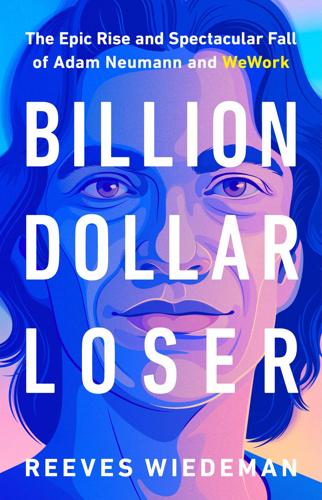
Billion Dollar Loser: The Epic Rise and Spectacular Fall of Adam Neumann and WeWork
by
Reeves Wiedeman
Published 19 Oct 2020
Not long after the IPO announcement, a team from WeWork met with employees at Imagination, a marketing firm that helps companies prepare the front-facing parts of going public. When the WeWork team explained its timeline, the employees from Imagination laughed. Finishing everything that needed to be done, with the requisite approvals from the SEC, would be impossible to pull off that quickly. But it had never been WeWork’s way to accept norms or restrictions. “It says everything about WeWork,” an employee on the WeWork team said, “that the response from the top was, If you can’t do this the WeWork way, we’ll go somewhere else
…
“If you look closely, we’re already in a revolution.” Many of WeWork’s first employees were bewildered by Adam’s bombast. WeWork’s offices were nice—but a revolution? And yet the community-building mission Adam preached was also what attracted many of them to leave decent but boring jobs elsewhere. WeWork wasn’t offering big salaries, nor was it handing out stock options like most tech start-ups, so Adam and Miguel’s promise that WeWork was helping to build a better way of working was their primary recruiting tool. Danny Orenstein, WeWork’s third employee, came from JPDA, Miguel’s old architecture firm, where the same economic forces that had hurt Krawlers—Neumann still owned the brand, but had handed over the day-to-day operations—had forced American Apparel to put its expansion plans on hold.
…
The empires of the 2010s—Facebook, Twitter, Uber, Airbnb—were being built on “platforms” with “network effects” that made them more and more valuable with each user that signed up; WeWork leased office space in half a dozen buildings to people who paid rent. But Miguel and Adam had been talking about the networking aspect of WeWork since the beginning, a decade after Miguel had missed the social revolution with English, baby! When Lisa Skye woke up on her first day at WeWork back in 2010, she found a two-sentence email from Adam in her inbox: “Good morning. Let’s build the largest networking community on the planet.” The idea was to connect WeWork’s buildings and members so that belonging to the WeWork community would become as valuable as the space itself.
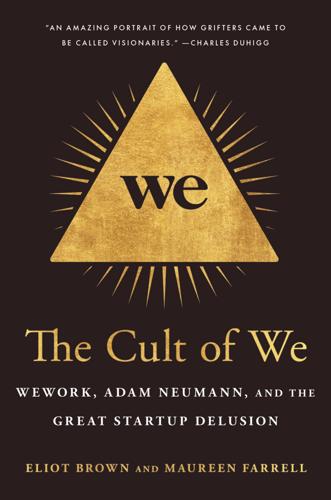
The Cult of We: WeWork, Adam Neumann, and the Great Startup Delusion
by
Eliot Brown
and
Maureen Farrell
Published 19 Jul 2021
to go from $73 million of revenue: Financial Update, 2015–2018 Plan, WeWork. WeWork announced the deal on June 24: “WeWork Announces $400 Million Funding Round,” WeWork newsroom, June 24, 2015. valued WeWork at $10 billion: Eliot Brown, “WeWork’s Valuation Soars to $10 Billion,” Wall Street Journal, June 24, 2015. worth around $3 billion on paper: Eliot Brown, “WeWork: A $20 Billion Startup Fueled by Silicon Valley Pixie Dust,” Wall Street Journal, Oct. 19, 2017. sold $120 million between: “WeWork Companies Inc. Valuation of a Minority Common Stock Interest,” Alvarez & Marsal, prepared for WeWork, March 21, 2017. Mark Zuckerberg had secured his control: Andrew E.
…
Brokers were getting huge commissions leasing WeWork space. Management companies were getting rich cleaning the lobbies and running security at building entrances. What if someone owned the whole system? What if WeWork vertically integrated it all? WeWork would own buildings, it would build buildings, lease buildings. It would rent apartments, expanding WeLive. WeWork would advise companies on their office space—becoming the sole solution. If companies wanted to stay in their own buildings, WeWork would design them; then it would lease them desks, run their coffee machines, sell them software. A WeWork ID could open WeWork-run security gates.
…
“late-stage investors, desperately afraid”: Bill Gurley, “Investors Beware: Today’s $100M+ Late-Stage Private Rounds Are Very Different from an IPO,” Above the Crowd, Feb. 25, 2015. In 2014, WeWork took in: “WeWork Companies Inc. Valuation of a Minority Common Stock Interest,” Alvarez & Marsal, prepared for WeWork, March 21, 2017. it expected an operating profit: “WeWork Five-Year Forecast,” Oct. 2014, accessed via Scribd upload from Nitasha Tiku, www.scribd.com/document/284094978/Wework-Five-Year-Forecast-October-2014. called himself Neumann’s “fluffer”: Cory Weinberg, “Neumann’s Downfall Upends WeWork’s Tight Leadership Circle,” Information, Sept. 25, 2019. “vice chairman—and also head DJ”: Adam Neumann in speech to staff, WeWork Global Summit, Los Angeles, Jan. 8, 2019.
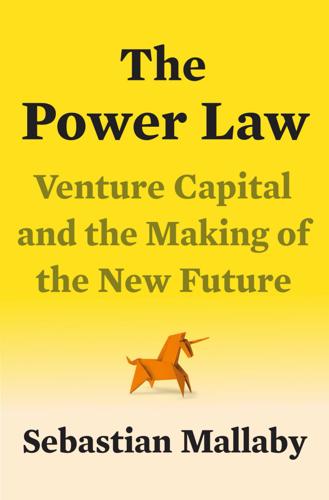
The Power Law: Venture Capital and the Making of the New Future
by
Sebastian Mallaby
Published 1 Feb 2022
BACK TO NOTE REFERENCE 15 Rather than vetoing his self-dealing proposals, the board set up a process to vet them and, ultimately, approve them. BACK TO NOTE REFERENCE 16 Brown, “WeWork’s CEO Makes Millions as Landlord to WeWork.” BACK TO NOTE REFERENCE 17 Brown, “WeWork’s CEO Makes Millions as Landlord to WeWork.” BACK TO NOTE REFERENCE 18 Nitasha Tiku, “WeWork Used These Documents to Convince Investors It’s Worth Billions,” BuzzFeed, Oct. 9, 2015. BACK TO NOTE REFERENCE 19 WeWork hoped to attract additional customers by allowing them to use WeWork sites around the world when they traveled on business. However, this form of network effect was comparable to that of a global hotel chain with a loyalty program; it was not a tech-style network effect.
…
The year before the governance change, in 2013, Neumann had planned to buy a 5 percent stake in a Chicago building that was negotiating a lease with WeWork. This was an obvious case of self-dealing: by purchasing a stake in the building, Neumann would have set himself up to profit personally from his company’s lease payments.[15] Playing its proper role as overseer, WeWork’s board blocked Neumann’s proposed purchase. But after the governance change empowered Neumann to overrule his board, he revived the Chicago scheme elsewhere, and now nobody stopped him.[16] He amassed personal interests in five buildings in which WeWork leased space, sometimes paying for these stakes by selling a sliver of his WeWork ownership.[17] With each of these transactions, Neumann was effectively decoupling his personal fortune from his company’s profits, linking it instead to his company’s lease costs.
…
The result was the opposite of the strong incremental margins that Tiger Global prized: with each additional $1 million in revenues, WeWork’s losses grew by more than $1 million. In 2015, for example, the company more than doubled its sales. Meanwhile, its losses tripled.[18] To maintain investors’ faith in him, Neumann generated a formidable stream of Silicon Valley clichés. WeWork was not a company but a “platform.” WeWork would benefit from “network effects.” WeWork was a “first mover,” a “thriving ecosystem,” “digitally enhanced,” and “scalable.”[19] To observers who were not inclined to think too critically, perhaps this sounded persuasive: after all, Silicon Valley behemoths from Google to Facebook had pumped themselves up to a commanding size before they had worried about profits.
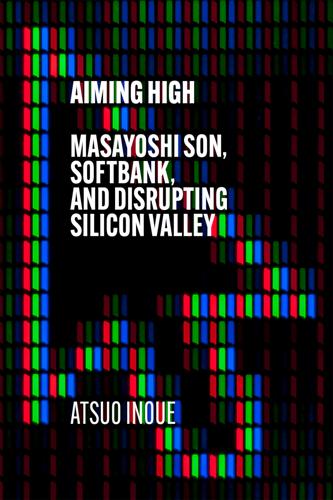
Aiming High: Masayoshi Son, SoftBank, and Disrupting Silicon Valley
by
Atsuo Inoue
Published 18 Nov 2021
Why don’t you become the new CEO of WeWork?”’ Once again, Claure rejected the idea outright, once again Claure told Son he was mad as a hatter for suggesting it – he knew nothing about real estate, after all. Son told him not to worry about it; everyone at the time thought WeWork was going to go under. The picture Claure paints, however, is considerably tempered: ‘Next year [2021] we should break-even, and a year after [2022], WeWork makes money.’ Possibly the most critical point of rehabilitating WeWork is restoring its reputation: within the investment industry the phrases ‘before WeWork and after WeWork’ have even been coined, although this has only served to strengthen Claure’s resolve.
…
Of course, it is vital investors get a return on their investment but Claure also believes that on top of that it is important to prove wrong those people who have written off WeWork. It was the exact same thing as happened with Sprint. Would it help then to view WeWork as a key platform? There are two kinds of networks – the digital type and the physical – but WeWork is an actual physical platform. One of the major parts of working is having a physical space where people can gather together to get that work done. To date there has been no readily available solution for small businesses in terms of high-quality office space that can be accessed any time day or night – except for WeWork. Booking can be easily done online as well. The first step towards WeWork’s rehabilitation was cutting expenses and that in practical terms translated to trimming the workforce, from 16,000 people to 5,000.
…
Having successfully resurrected Sprint, the next lost cause Son parachuted Marcelo Claure in to rescue was WeWork. WeWork was originally founded in 2010 as a co-working space by Adam Neumann, with SoftBank making its first investments in the company in 2017. At the start of 2019 an additional investment was made in the order of $2 billion and plans were afoot for WeWork to go public, but after a number of major issues with Neumann the company was plunged into a crisis. Claure comments on his brief from Son when everything started to kick off with Neumann. ‘Masa gave me the task of basically making sure that a new WeWork was to be formed with the right capital structure, with the right shareholders, and with the right management.’

Gambling Man
by
Lionel Barber
Published 3 Oct 2024
Within minutes, he had written a cheque worth $4bn to an office-space-leasing company which promised to conquer the world. The young messiah was Adam Neumann. The company’s name was WeWork. 25. Crazy Guy On 6 December 2016, Masa was due to visit WeWork’s headquarters in the Chelsea neighbourhood of New York City. As usual, he was running late and his meeting with president-elect Trump loomed large. The planned two-hour HQ tour turned into a 12-minute walk-about. Unabashed, Masa invited WeWork’s founder Adam Neumann to join him in the backseat of his SUV for a ride to Trump Tower, thirty-eight blocks north.1 Neumann brought along a print-out of his pitch deck setting out his vision of a new world of work: cool, high-tech office space with cushions, Pelotons and plenty of free booze, with each location selected using state-of-the-art-technology.
…
The SoftBank investment implied a valuation of $20bn for WeWork, the same as Hilton Hotels. Only Uber and Airbnb, the new hot shots on the US start-up stage, had done better. At 38 years of age, Neumann had landed on cloud nine. SoftBank’s fresh injection of cash would help to create a real-estate giant worth billions. Even better, he’d be worth one billion dollars on paper. As his executive team later exchanged hugs and high-fives, Mark Schwartz, the ex-Goldman Sachs banker soon to join the WeWork board, issued a note of caution. Masa runs hot and cold, he warned. Right now, he’s running very hot on WeWork. Watch out, if he starts running cold.2 Masa first spotted Adam Neumann in January 2016, at an event called Startup India in New Delhi.
…
‘Adam played the observant Jew card,’ said a SoftBank adviser, noting that Fisher strictly observed the Sabbath, which left all parties incommunicado from Friday evening to Saturday evening. In mid 2018, thanks to SoftBank’s $4.4bn investment, WeWork was enjoying explosive growth in revenues, albeit matched by eye-watering losses.fn1 On a lightning visit to Tokyo, Neumann pitched Masa on a plan to dominate the entire real-estate market from apartment space to brokerages. WeWork would become the go-to space provider for office space around the world. Intrigued, Masa asked for more work to be done. And so was born Project Fortitude, the code-name for a plan megalomaniacal in its ambition.14 By Neumann’s calculations, WeWork’s revenue would rise from a projected $2.3bn in 2018 to $101bn in 2023.
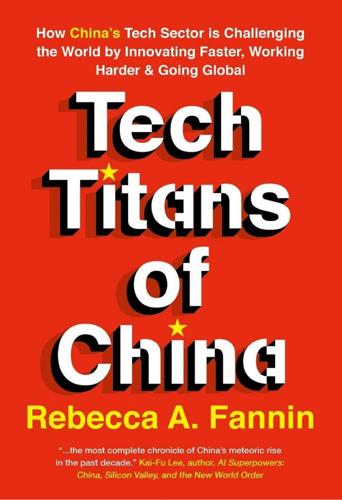
Tech Titans of China: How China's Tech Sector Is Challenging the World by Innovating Faster, Working Harder, and Going Global
by
Rebecca Fannin
Published 2 Sep 2019
•Keep the long-term vision and perspective; don’t expect to go public tomorrow. WeWork and Naked Hub New York–based WeWork arrived in China in 2016 and jumped right into China’s booming office-share market, forming a stand-alone entity, WeWork China. What has worked exceedingly well for WeWork China is well-plotted acquisitions and steady, calculated expansion supported by megafunding. Within two years of plunging into the foreign market, WeWork bought Chinese coworking startup Naked Hub from Shanghai-based luxury resort operator Naked Group for a cool $400 million, a move that gave WeWork an immediate lift. WeWork scooped up 25 Naked Hub locations in Beijing, Shanghai, and Hong Kong to add to its own 13 spots in China.
…
One of the larger operators, Kr Space in Beijing, owned by China tech news site 36Kr, was racing to beat WeWork but has recently cut staff and scaled back ambitious expansion plans. Fresh funding is the difference between survival and closure. Deep-pocketed WeWork and its China subsidiary are loaded with new capital: WeWork China pulled in $500 million in 2018 led by SoftBank, a huge $4.4 billion investor in WeWork itself, on top of $500 million the year before. WeWork has covered China with 60 locations across a dozen megacities, adding to its global presence in 23 countries worldwide. WeWork’s recent rebranding as We Company signifies its new direction into social lifestyles and even residential rentals, an elementary school, and a coding academy, and this concept could be brought to China.
…
WeWork scooped up 25 Naked Hub locations in Beijing, Shanghai, and Hong Kong to add to its own 13 spots in China. It didn’t take long for WeWork CEO Adam Neumann to take a lesson from Naked Hub’s operation in trendy Xintiandi, which was making bundles of money from renting office space on a flexible, come-as-you-like basis, with no monthly contract. WeWork quickly launched the feature as WeWork Go, which lets China-based customers check for open desks by mobile app, go to the location, and register by QR code. From there, the clock starts ticking—15 yuan per hour ($2.50) and double that rate for premium locations. WeWork China reportedly picked up 50,000 registered users in Shanghai after a three-month pilot of the hourly rate that compares with a monthly rental charge of $270.
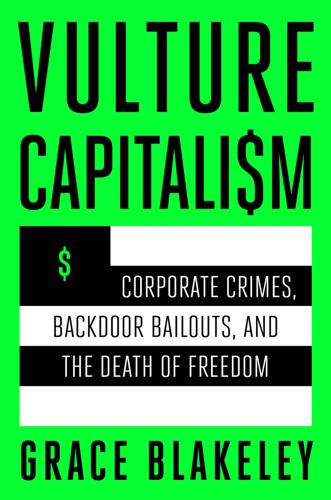
Vulture Capitalism: Corporate Crimes, Backdoor Bailouts, and the Death of Freedom
by
Grace Blakeley
Published 11 Mar 2024
Gabriel Sherman, “ ‘You Don’t Bring Bad News to the Cult Leader’: Inside the Fall of WeWork,” Vanity Fair, November 21, 2019, https://www.vanityfair.com/news/2019/11/inside-the-fall-of-wework. 3. Britney Nguyen, “The Career Rise, Fall, and Return of Adam Neumann, the Controversial WeWork Cofounder Who Is Back with Another Real-Estate Startup,” Insider, August 16, 2022, https://www.businessinsider.com/wework-ceo-adam-neumann-bio-life-career-2019-8?r=US&IR=T. 4. “The Unicorn List: 13: WeWork,” Fortune, accessed July 9, 2023, https://fortune.com/ranking/unicorns/2016/wework/. 5. Sheryl Wudunn, “MEDIA; An Entrepreneurial Exception Rides the Internet in Japan,” New York Times, July 26, 1999, https://www.nytimes.com/1999/07/26/business/media-an-entrepreneurial-exception-rides-the-internet-in-japan.html. 6.
…
Julie Bort and Meghan Morris, “Former Employees from WeWork Share Stories about Adam Neumann Running around Barefoot, Yelling at Employees, and Demanding Cases of Tequila,” Insider, September 30, 2019, https://www.businessinsider.com/wework-employees-share-stories-about-barefoot-adam-neumann-2019-9?r=US&IR=T. 13. Taylor Telford, “Adam Neumann’s Chaotic Energy Built WeWork. Now It Might Cost Him His Job as CEO,” Washington Post, September 23, 2019, https://www.washingtonpost.com/business/2019/09/23/adam-neumanns-chaotic-energy-built-wework-now-it-might-cost-him-his-job-ceo/. 14. Nguyen, “The Career Rise, Fall, and Return of Adam Neumann, the Controversial WeWork Cofounder Who Is Back with Another Real-Estate Startup.” 15. David Trainer, “WeWork Is the Most Ridiculous IPO of 2019,” Forbes, August 27, 2019, https://www.forbes.com/sites/greatspeculations/2019/08/27/wework-is-the-most-ridiculous-ipo-of-2019/?
…
Eliot Brown, Maureen Farrell, and Anupreeta Das, “WeWork Co-Founder Has Cashed Out at Least $700 Million Via Sales, Loans,” Wall Street Journal, July 18, 2019, https://www.wsj.com/articles/wework-co-founder-has-cashed-out-at-least-700-million-from-the-company-11563481395. 20. Peter Eavis and Michael J. de la Merced, “WeWork I.P.O. Is Withdrawn as Investors Grow Wary,” New York Times, October 1, 2019, updated October 21, 2021, https://www.nytimes.com/2019/09/30/business/wework-ipo.html. 21. Eric Platt, “Adam Neumann’s $1.6bn WeWork Exit Package Could Get Sweeter,” Financial Times, December 24, 2019, https://www.ft.com/content/eecf1f22-2332-11ea-b8a1-584213ee7b2b. 22. George Hammond and Andrew Edgecliffe-Johnson, “SoftBank and WeWork Co-Founder Adam Neumann Agree Divorce Deal,” Financial Times, May 27, 2021, https://www.ft.com/content/b0c047d0-6e7e-42c1-89c8-ee5f96d01a12. 23.
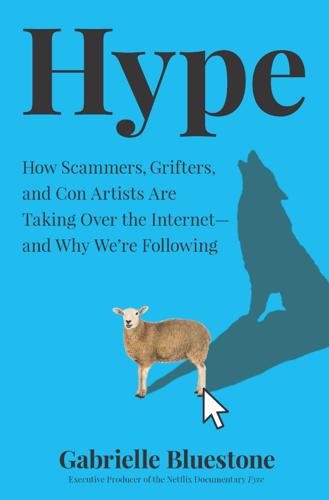
Hype: How Scammers, Grifters, and Con Artists Are Taking Over the Internet―and Why We're Following
by
Gabrielle Bluestone
Published 5 Apr 2021
Two out of the three WeWork employees took sips, the third told the New York Times.76 But perhaps Neumann’s greatest trick of all was his preternatural ability to profit personally from WeWork. Using his own private funds, he’d buy buildings and then lease them to his company. In 2019, he personally trademarked the word We and then sold it to WeWork for almost $6 million, although he later returned the money after a public outcry.77 He didn’t even try to pretend any of the money was linked to WeWork’s proprietary tech or real-estate holdings, which were intentionally slim—most of WeWork’s branded properties were actually just subleases, an untenable business plan. Instead, he explained in 2017, WeWork’s “valuation and size today are much more based on our energy and spirituality than it is on a multiple of revenue.”
…
Levin, "Re: William McFarland; United States District Court, Southern District of New York, 17-CR-00600-NRB and 18-CR-00446-JMF," letter submitted to court, August 20, 2018. 74. Alex Sherman, "WeWork’s $47 Billion Valuation Was Always a Fiction Created by SoftBank," CNBC, October 22, 2019, https://www.cnbc.com/2019/10/22/wework-47-billion-valuation-softbank-fiction.html. 75. Adam Neumann, Baruch College Commencement 2017. Speech, Baruch College, New York, NY, June 12, 2017. 76. Kevin Roose, "Do Not Disturb: How I Ditched My Phone and Unbroke My Brain," New York Times, February 23, 2019, https://www.nytimes.com/2019/02/23/business/cell-phone-addiction.html. 77. Ben Gilbert, "WeWork Paid Its Own CEO $5.9 Million to Use the Name ‘We,’ But Now He’s Giving It Back After the Deal was Criticized," Business Insider, September 4, 2019, https://www.businessinsider.com/wework-ceo-gives-back-millions-from-we-trademark-after-criticism-2019-9. 78.
…
That all sounds amazing. But let me tell you something: I don’t think that’s true.” After waiting for the applause to die out, Adam Neumann, the founder of WeWork, continued his speech. “We will not stand by, and we will not lend our power to presidents, CEOs, ministers, or anybody—any leader—that does not lead us in the right direction, that lies to us, that does not take care of us. No one is above the law,” Neumann said. Less than three years later, WeWork would be so broke that planned cost-saving layoffs actually had to be postponed because the company couldn’t afford to pay out the severance. “It’s very hard, in the early, nascent embryonic stages of a business, to really—and I’m being intellectually honest here—know if somebody is going to be an absolute genius or a total fraud.

The Lonely Century: How Isolation Imperils Our Future
by
Noreena Hertz
Published 13 May 2020
See photo by Jonathan Bachman, Reuters, at https://www.nytimes.com/slideshow/2017/02/13/blogs/the-worlds-best-photo/s/13-lens-WPress-slide-JSQ0.html. 45 Keiko Morris and Elliot Brown, ‘WeWork Surpasses JPMorgan as Biggest Occupier of Manhattan Office Space,’ Wall Street Journal, September 18 2018, https://www.wsj.com/articles/wework-surpasses-jpmorgan-as-biggest-occupier-of-manhattan-office-space-1537268401; ‘WeWork Locations,’ archived November 2017, https://www.wework.com/locations. 46 ‘The We Company’, United States Securities and Exchange Commission, 14 August 2019, https://www.sec.gov/Archives/edgar/data/1533523/000119312519220499/d781982ds1.htm. 47 Rani Molla, ‘“Co-living” is the new “having roommates” – with an app’, Vox, 29 May 2019, https://www.vox.com/recode/2019/5/29/18637898/coliving-shared-housing-welive-roommates-common-quarters. 48 Henny Sender, ‘Investors embrace millennial co-living in Asia’s megacities’, Financial Times, 28 January 2020, https://www.ft.com/content/c57129f8-40d9-11ea-a047-eae9bd51ceba. 49 ‘Coliving is city living made better’, Common, https://www.common.com; Society, http://oursociety.com; ‘Join the global living movement’, The Collective, https://thecollective.com; Winnie Agbonlahor, ‘Co-living in London: Friendship, fines and frustration,’ BBC, April 24, 2018, https://www.bbc.com/news/uk-england-london-43090849. 50 Common, https://www.common.com/why-common/; ‘The 4 Co’s of Coliving’, Ollie, https://www.ollie.co/coliving. 51 Jessica Burdon, ‘Norn: the offline social network reviving the art of conversation’, The Week, 30 April 2018, https://www.theweek.co.uk/93266/norn-the-offline-social-network-reviving-the-art-of-conversation; Annabel Herrick, ‘Norn rethinks co-living for a new generation of nomads’, The Spaces, https://thespaces.com/introducing-norn-the-startup-taking-co-living-to-new-heights/. 52 See comment at: https://news.ycombinator.com/threads?
…
, Conscious Coliving, 30 July 2019, https://www.consciouscoliving.com/2019/07/30/berlin-co-living-meet-up-how-can-coliving-foster-thriving-communities/. 63 Coldwell, ‘“Co-Living”: The end of urban loneliness’. 64 Venn, ‘2019 Semi Annual Impact Report’ (Venn, 2019), https://39q77k1dd7472q159r3hoq5p-wpengine.netdna-ssl.com/wp-content/uploads/2019/10/impactreport2019.pdf. 65 ‘Your Amenities’, Nomadworks, https://nomadworks.com/amenities/. 66 Alessandro Gandini, ‘The rise of coworking spaces: A literature review’, Ephemera 15, no. 1 (February 2015), 193–205, http://www.ephemerajournal.org/contribution/rise-coworking-spaces-literature-review. 67 ‘Doing things together’, Happy City, https://thehappycity.com/resources/happy-homes/doing-things-together-principle/. 68 Oliver Smith, ‘Exclusive: Britain’s Co-living King Has Raised $400m To Take On WeWork In America’, Forbes, 27 March 2018, https://www.forbes.com/sites/oliversmith/2018/03/27/exclusive-britains-co-living-king-has-raised-400m-to-take-on-wework-in-america/. 69 Brad Eisenberg, ‘Why is WeWork so popular?’, Medium, 15 July 2017, https://medium.com/@eisen.brad/why-is-wework-so-popular-934b07736cae. 70 Hannah Foulds, ‘Co-Living Spaces: Modern Utopia Or Over-Organised Hell?’, The Londonist, 12 April 2017, https://londonist.com/london/housing/co-living-spaces-modern-utopia-or-over-organised-hell. 71 Marisa Meltzer, ‘Why Fitness Classes Are Making You Go Broke’, Racked, 10 June 2015, https://www.racked.com/2015/6/10/8748149/fitness-class-costs. 72 Hillary Hoffower, ‘Nearly one-third of millennials who went to a music festival in the past year say they took on debt to afford it, survey finds’, Business Insider, 1 August 2019, https://www.businessinsider.com/millennials-going-into-debt-music-festivals-coachella-lollapalooza-bonnaroo-2019. 73 ‘City Reveals Selected Shared Housing Development Proposals’, NYC Housing Preservation and Development, https://www1.nyc.gov/site/hpd/news/092-19/city-reveals-selected-shared-housing-development-proposals#/0. 74 Jane Margolies, ‘Co-Living Grows Up’, New York Times, 14 January 2020, https://www.nytimes.com/2020/01/14/realestate/co-living-grows-up.html; ‘City Reveals Selected Shared Housing Development Proposals’. 75 The Common Team, ‘Common and L+M Development Partners Win ShareNYC’, Common, 8 October 2019, https://www.common.com/blog/2019/10/common-announced-as-winner-of-sharenyc-hpd/.
…
For some, they do seem to be making life less lonely. ‘I would consider WeWork and co-working spaces the best thing to ever happen to my social life,’ reported a freelance web developer. When he worked from home, he wrote, his mood was lower and he even found himself feeling tired and getting sick more often – exactly what we’d expect, given what we know about physical health and loneliness.52 But at WeWork, he says he ‘went from a rather introverted person to being quite extroverted and growing emotionally’.53 Others have had similar experiences. Daniel, a software engineer and expat who worked at a WeWork in Paris for a year and a half, credits his co-working experience with sparking a number of real-life, non-work friendships.
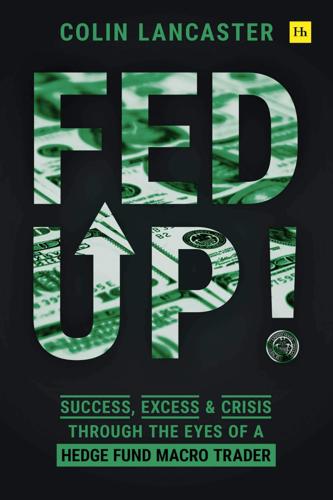
Fed Up!: Success, Excess and Crisis Through the Eyes of a Hedge Fund Macro Trader
by
Colin Lancaster
Published 3 May 2021
We are sitting at our normal table in the restaurant, waiting for the food to arrive. A headline has just hit on WeWork, and all of us are checking our phones. WeWork is run by a guy named Adam Neumann, and its largest shareholder is a company called SoftBank, run by Masayoshi Son.5 SoftBank has been pouring money into fast-growing tech companies. Masa Son famously lost $70 billion, the most money lost in stock market history, during the dotcom bust. He’s back at it again and swinging for the fences. WeWork is his new crown jewel and is considered one of the unicorns. Unicorns are high-flying growth companies with valuations in excess of $1 billion, companies that don’t actually make any money.
…
Things aren’t good.” Neumann, the WeWork CEO whom Jerry liked to stalk, will be keeping busy with his lawsuit against SoftBank. He sued the bank for scrapping the bailout, which had included a plan to buy $3 billion worth of stock from Neumann and other shareholders. But the bank scrapped the deal, claiming WeWork hadn’t met the conditions of the contract and citing legal inquiries by the US Department of Justice (DOJ) and the SEC. According to The Guardian newspaper, reporting on this latest lawsuit, “Mr. Neumann put his trust in [SoftBank and SoftBank’s Vision Fund] to be stewards of WeWork, which he and thousands of others had worked so hard to build,” only to be met with “brazen” abuses.
…
Unicorns are high-flying growth companies with valuations in excess of $1 billion, companies that don’t actually make any money. No shit. They have no earnings. You see stuff like that in a ten-year bull market. But WeWork is a special case. They got greedy. They tried to monetize too quickly and wanted to do an IPO and go public. This forced them to provide transparency in their business records and their problems, all for the world to see, in massive footnotes in tiny font. Unfortunately for WeWork, when a company wants to go public, there are analysts whose sole focus and pay depends on doing a deep dive into these records and reading and re-reading the footnotes to unearth the dead bodies.
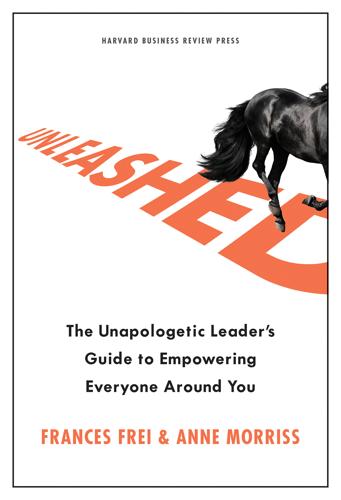
Unleashed
by
Anne Morriss
and
Frances Frei
Published 1 Jun 2020
The lesson she takes from her experience is the power of patience and persistence, of knowing without a shadow of a doubt that marginalized talent is out there.3 We brought the same conviction to our work with WeWork, the coworking company that’s still rebuilding as we write this, after a change in leadership and disrupted IPO.4 Full disclosure: we’re still advising the company and on record for being decidedly bullish on its prospects.5 We believe in the company, in part, because its commitment to inclusion runs deep. WeWork’s passionate, frontline community teams are devoted to inclusive hiring. Whenever they interact with senior leadership, suggestions pour in about how to be more inclusive to working moms, people of color, military veterans, immigrants … round it off to everyone.
…
Pamella de Leon, “Entrepreneur Middle East’s Achieving Women 2019: Cammie Dunaway, Chief Marketing Officer, Duolingo,” Entrepreneur, September 22, 2019, https://www.entrepreneur.com/article/339699. 4. Maureen Farrell et al., “The Fall of WeWork: How a Startup Darling Came Unglued,” Wall Street Journal, October 24, 2019, https://www.wsj.com/articles/the-fall-of-wework-how-a-startup-darling-came-unglued-11571946003. 5. TED, “The TED Interview: Frances Frei’s Three Pillars of Leadership,” A TED Original Podcast, Podcast audio, November 2019, https://www.ted.com/talks/the_ted_interview_frances_frei_s_three_pillars_of_leadership. 6.
…
—JEN WONG, Chief Operating Officer, Reddit “Talking about love at work isn’t normal yet, but it should be. Love is fundamental to happiness and productivity at work. This book is a powerful resource for any leader who aspires to be most effective in our emerging future.” —MIGUEL MCKELVEY, cofounder and Chief Culture Officer, WeWork “Frei and Morriss have a unique gift of understanding how to empower leaders to unlock the potential in themselves, their teams, and their businesses. The guidance they share in Unleashed is invaluable for me and for the leadership teams I work with.” —JACQUI CANNEY, Chief People Officer, WPP “In Unleashed, Frei and Morriss provide an incredibly compelling case for effective leadership by distilling what leadership is all about.
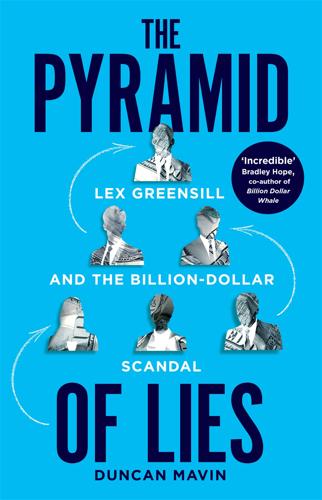
The Pyramid of Lies: Lex Greensill and the Billion-Dollar Scandal
by
Duncan Mavin
Published 20 Jul 2022
One plan, nicknamed Project Olympus, involved lending billions of dollars to WeWork. Wall Street Journal reporters Eliot Brown and Maureen Farrell described what happened next in their book on WeWork, The Cult of We. According to their version of events, Son had asked WeWork CEO Neumann to fly to Tokyo for a meeting in August 2019. Neumann thought Son might ask him to call off the planned WeWork IPO – which was looking tougher every day – or offer to make a large investment. But he was taken by surprise when Son instead introduced Lex Greensill, touting him as the solution to WeWork’s pending cash crunch. The WeWork CEO and his team were immediately sceptical that Greensill could really provide the funds, and they were concerned about potential conflicts of interest, given SoftBank’s recent investment in Greensill.
…
A report by an external consultant in 2018 found that there were few controls at the Vision Fund and staff were encouraged to gamble with the fund’s money to enhance their own personal reputations. That culture has delivered a patchy track record. The fund has made billions from investments in cab service Uber and food delivery company Doordash. Its investment in WeWork, however, was a spectacular dud. SoftBank invested about $18.5 billion in WeWork. Then in 2019 the shared office business imploded when it was forced to drop a planned public offering of its shares after investors balked at its valuation and the antics of its flamboyant CEO Adam Neumann. Meanwhile, Greensill’s profile was rising after the General Atlantic investment.
…
On a Vision Fund web page, Greensill said Masa was a ‘partner and a mentor’: ‘He has worked with us, and particularly with me, to think about our core business and how we can actually take that core business and tackle other inequalities and other challenges that exist in the global market.’ The appreciation went in both directions. At internal SoftBank events, Son put Lex on a pedestal alongside other stars of the Vision Fund, especially WeWork founder Adam Neumann, who was still then in favour, and Ritesh Agarwal, the head of India’s OYO Hotels. The three were featured in a presentation to SoftBank shareholders that referred to them as pioneers of artificial intelligence leading ‘the biggest revolution in human history’. Son also pointed to Greensill as an example of how portfolio companies could benefit from the network effect they could achieve by working together – the so-called ‘Cluster of No. 1’ strategy.
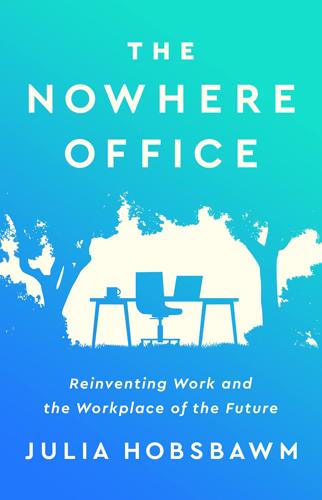
The Nowhere Office: Reinventing Work and the Workplace of the Future
by
Julia Hobsbawm
Published 11 Apr 2022
See Tim Oldman, Why Workplace: A Leader’s Guide to Rebuilding the Post-Pandemic Workplace, Leesman, October 2021, https://www.leesmanindex.com/media/Leesman-Why-Workplace-Guide-DPS-final.pdf?eid=CiL0qOwTVIfQWziIWqM6INZlBg6D8JOL%2BNZOb88wOzoxGQ%2FPSsFldoOrC8FwbwFelpHsyMm48GqbPS8Yy%2B8wam7Y7uMPTQOt18Hgv52B0ygfnYK4 18. Freddie Steele, ‘WeWork partners With Cushman & Wakefield on Flexible Working Offer’, Workplace Insight, 10 August 2021, https://workplaceinsight.net/wework-partners-with-cushman-wakefield-on-flexible-working-offer/ 19. ‘5 Reasons Real Estate Could Roar in the 2020s’, Institutional Investor, 11 August 2021, https://www.institutionalinvestor.com/article/b1sq9nsshqkpw6/5-Reasons-Real-Estate-Could-Roar-in-the-2020s; David M.
…
David Sharman, ‘Publisher Reveals it Now Employs More Journalists than in 2019’, HoldtheFrontPage, 26 July 2021, https://www.holdthefrontpage.co.uk/2021/news/publisher-creates-more-new-roles-in-bid-to-return-staffing-to-pre-pandemic-levels/ 43. Emma Simpson, ‘Almost 50 Shops a Day Disappear from High Streets’, BBC News, 5 September 2021, https://www.bbc.co.uk/news/business-58433461 44. See https://www.sohohouse.com/studio-spaces 45. Konrad Putzier, ‘Saks Fifth Avenue Owner, WeWork to Run Co-Working Spaces in Former Stores’, Wall Street Journal, 10 August 2021, https://www.wsj.com/articles/wework-to-run-co-working-spaces-in-some-saks-fifth-avenue-stores-11628596800 46. In October 2021 London Mayor Sadiq Khan introduced a punitive daily Ultra Low Emission Zone (ULEZ) tax on certain vehicles, https://tfl.gov.uk/modes/driving/ultra-low-emission-zone 47.
…
Phase three runs from 2007 to 2019, the Co-Working Years, in which the great acceleration continued. No one had time to stop to think what it might all mean. The smartphone and laptop heralded the beginning of the end of the office as we know it and co-working became mainstream (the co-working company WeWork started in 2010). Professional workers began to be classified and chased as ‘talent’. This era was defined by vaulting technological ambition and scope. The emergent tech companies from Bloomberg to Google raised the bar, making offices citadels of status. Travel budgets and conferences mushroomed; networking online and in person proliferated.
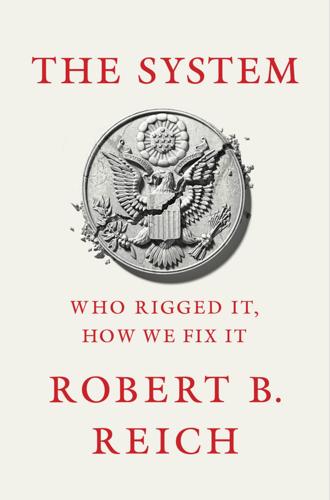
The System: Who Rigged It, How We Fix It
by
Robert B. Reich
Published 24 Mar 2020
* * * — To the conservative mind, socialism means getting something for doing nothing. This pretty much describes Adam Neumann, the young, charismatic billionaire founder of WeWork, an office-sharing start-up. Wanting to get into the action early with the hope of leading WeWork’s initial public offering, JPMorgan poured so much money into the company and into Neumann’s own pockets that Neumann reportedly described Dimon as his “personal banker.” Neumann used the money to fund projects such as buildings that he leased back to WeWork, and a lifestyle that included a $60 million private jet, a sixty-acre estate in Westchester County, a residence in Manhattan’s upscale Gramercy Park neighborhood, a $22 million home in the Bay Area, another in the Hamptons, in-house concerts, a personal spa attached to his office, and a Maybach luxury car.
…
Neumann used the money to fund projects such as buildings that he leased back to WeWork, and a lifestyle that included a $60 million private jet, a sixty-acre estate in Westchester County, a residence in Manhattan’s upscale Gramercy Park neighborhood, a $22 million home in the Bay Area, another in the Hamptons, in-house concerts, a personal spa attached to his office, and a Maybach luxury car. WeWork never showed a profit. In the end, it all fell apart after the bank pressed Neumann to disclose his personal conflicts of interest in WeWork’s filings for the initial public offering and potential investors fled. Neumann was ousted in October 2019 and walked away with over $1 billion. Yet most other WeWork employees were subject to harsh capitalism. They were left holding nearly worthless stock options. Thousands were set to be laid off. Getting something for nothing also describes General Motors’ receipt of $600 million in federal contracts, plus $500 million in tax breaks, in the two years after Donald Trump took office.
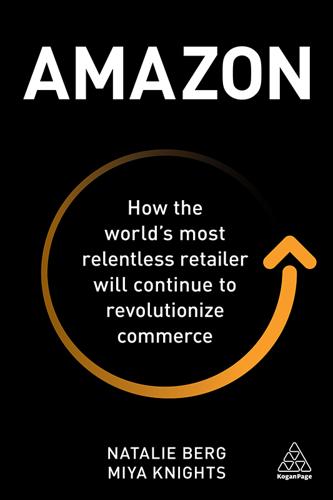
Amazon: How the World’s Most Relentless Retailer Will Continue to Revolutionize Commerce
by
Natalie Berg
and
Miya Knights
Published 28 Jan 2019
As urbanization takes hold, physical spaces must adapt by becoming smaller, more convenient and multi-dimensional. ‘The trend of urbanization is something we must all recognize and understand’, says Adam Neumann, CEO and co-founder of shared office space provider WeWork. ‘People from every walk of life are seeking spaces in big cities that allow for human connections. There is no reason why retail space should not be part of that movement.’15 WeWork: a lifeline for department stores? Collaboration with shared office providers like WeWork will especially help to bring department stores into the 21st century. As discussed earlier in the book, the biggest challenge for these large stores today is making use of surplus space as spending shifts online.
…
Available from: https://www.theguardian.com/world/2018/may/17/two-thirds-of-world-population-will-live-in-cities-by-2050-says-un [Last accessed 30/6/2018]. 15 Sharf, Samantha (2017) WeWork’s acquisition of flagship Lord & Taylor is a sign of the changing real estate times, Forbes, 24 October. Available from: https://www.forbes.com/sites/samanthasharf/2017/10/24/in-a-sign-of-the-time-wework-acquiring-lord--taylors-manhattan-flagship/#16255ee326ad [Last accessed 30/6/2018]. 16 JLL (2017) bracing for the flexible space revolution. Available from: http://www.jll.com/Documents/research/pdf/Flexible-Space-2017.pdf [Last accessed 30/6/2018]. 17 Kestenbaum, Richard (2017) HBC’s Richard Baker on WeWork-Lord & Taylor deal: ‘this is a moment of transition’, Forbes, 24 October.
…
Plus, shared office space is a natural extension of services found in most department stores – cafés and free Wi-Fi. WeWork has already been linked to Debenhams in the UK (John Lewis too is exploring the option of co-working space) and in Paris they have opened in the former headquarters of French department store retailer Galeries Lafayette. But it was their $850 million acquisition of the iconic Lord & Taylor building in Manhattan that will have quashed any doubt that co-working is part of the future of retail. The deal, announced in 2017, will see the 5th Avenue store shrink to about a quarter of its size in the 660,000-square-foot building. The upper floors will be occupied by WeWork – both as its headquarters and office space.
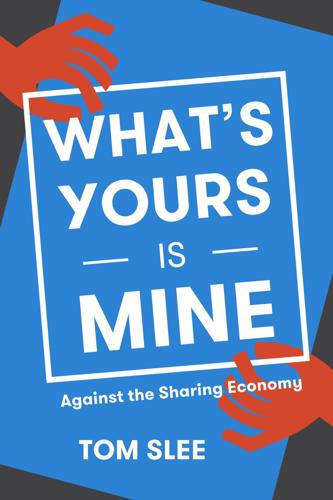
What's Yours Is Mine: Against the Sharing Economy
by
Tom Slee
Published 18 Nov 2015
Lending Club became a publicly owned company in December 2014 and the volume of peer-to-peer loans is growing rapidly: as of May 2015 the five biggest companies have issued nearly a million loans between them and are generating more at the rate of well over $10 billion a year.6 Another booming sector is shared working spaces, promoting “access over ownership” for new businesses and independent creators. WeWork, the leader in this space, has raised over $500 million to help it expand. Wired magazine explicitly compares WeWork to Uber and Airbnb after the company’s latest funding round valued it at $5 billion: It’s a steep price for what is essentially an office leasing company. But WeWork’s business model, which combines real estate with technology, plays into the “sharing economy” trend that has captivated investors in recent years, thanks to hit companies like Uber and Airbnb.
…
siteedition=uk#axzz3kEBZA0Wj. Laband, David N. “An Economics Lesson at the Baggage Carousel.” Wall Street Journal, January 9, 2014, sec. Opinion. http://www.wsj.com/articles/SB10001424052702303848104579308820544892490. Lapowsky, Issie. “Believe It: Co-Working Space Startup WeWork Is Now Worth $5B.” WIRED, December 16, 2014. http://www.wired.com/2014/12/wework-valuation/. Lathrop, Daniel, and Laurel Ruma, eds. Open Government: [collaboration, Transparency, and Participation in Practice]. 1st ed. Theory in Practice. Beijing ; Cambridge [Mass.]: O’Reilly, 2010. Lawler, Ryan. “A Look Inside Lyft’s Financial Forecast For 2015 And Beyond.”
…
But WeWork’s business model, which combines real estate with technology, plays into the “sharing economy” trend that has captivated investors in recent years, thanks to hit companies like Uber and Airbnb. Both companies infused established industries (car services and vacation rentals) with a high tech touch, and as a result, both companies have garnered valuations far beyond their established predecessors (taxi and limo services and hotels). And so it goes with WeWork.7 Botsman and Owyang both extend the definition of the sharing economy to include companies largely outside the scope of this book. Coursera and others are challenging university education by providing massively open online courses (MOOCs), online marketplaces for products—such as eBay and Etsy—predate the rise of the Sharing Economy and its focus on “real-world” exchanges, and crowdfunding platforms such as Kickstarter can be seen as an extension of the peer-to-peer finance platforms.
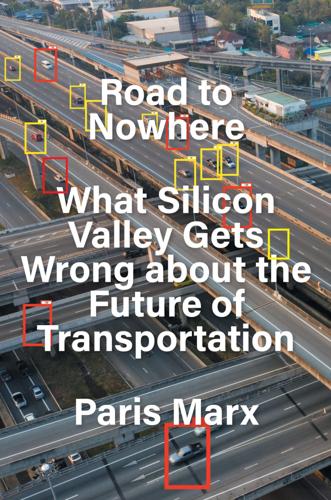
Road to Nowhere: What Silicon Valley Gets Wrong About the Future of Transportation
by
Paris Marx
Published 4 Jul 2022
Rather, they funded “a drive toward disruption without social benefit” that not only distorted market fundamentals by pursuing a predatory growth strategy, but actively attacked regulatory structures designed to protect workers and the public.2 In his article about this phenomenon, Levitz used the example of WeWork because it was a high-profile case where the model failed. WeWork offered co-working spaces around the world, but instead of positioning itself as a company that rented office space, it claimed it was a tech company, which came with a different set of expectations. While a traditional company would seek sustainable growth and expansion to provide a return on investment within the first few years of operation, a tech company—even one operating in a traditional industry—is expected to deliver the kind of exponential growth that one would expect from digital services, while significantly reducing the marginal cost of expansion.
…
That works well for software products, cloud platforms, and logistics companies, but it does not translate to office space, for-hire vehicles, and many of the other conventional businesses that the post-2008 crop of so-called tech companies sought to disrupt. In the case of WeWork, its success was less the product of offering superior co-working spaces than it was in the under-cutting of its competitors and offering of a slew of perks to members while losing millions of dollars a day. Investors went along with it because, at least for a while, they bought into the vision of CEO Adam Neumann even as he used the company to finance a lavish lifestyle for himself and his family—engaging in self-dealing by personally buying real estate then having WeWork rent it from him—and created a work environment with the misogyny and “bro” culture that is a major problem in the industry.
…
The bold claims of founders like Neumann, even if they have no grounding in reality, are central to the inflated valuations of these companies, along with the hope that they will one day monopolize and produce large returns, as Amazon succeeded in doing. Yet, in the case of WeWork, it became increasingly clear that the monopoly would never arrive, so investors tried to keep up the ruse until the company went public. But as the date of its initial public offering (IPO) approached, scandalous stories about Neumann in the press and documents produced by the company that showed his cult-like influence caused potential investors to lose confidence. Instead of cashing out, the IPO was canceled, Neumann was forced out, and there were mass layoffs as employees’ stock options went to zero. WeWork may have failed, but it was hardly the only company pursuing a model that, in reality, is unlikely to ever succeed.
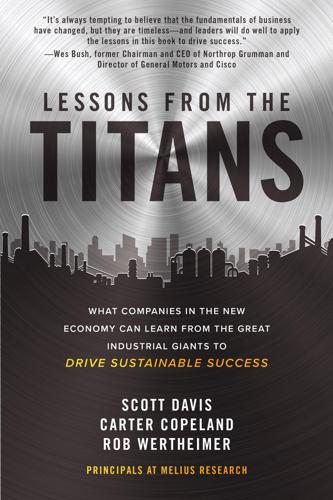
Lessons from the Titans: What Companies in the New Economy Can Learn from the Great Industrial Giants to Drive Sustainable Success
by
Scott Davis
,
Carter Copeland
and
Rob Wertheimer
Published 13 Jul 2020
It’s as if the hard-learned lessons from the 2008–2009 financial crisis have already been long forgotten, even as we encounter a new crisis that could have even deeper impacts. In this new world, companies are increasingly difficult for investors to value. Determining which ones are truly built to last has taken a back seat to dreams of market disruption and domination. WeWork’s near collapse in late 2019 serves as a stark reminder of this challenge, Uber’s extreme volatility is another, and Tesla is a notable addition to this roller coaster ride. And the extreme stock market volatility that has defined 2020 so far has brought many sectors to Depression era–type valuation levels while barely touching others.
…
But we couldn’t make the models work. And we were far from alone. Debt rating experts seemed particularly frustrated. The SEC should have taken notice, but no one seemed willing to take on GE and its powerful lobby. In today’s world, analyst complaints get the attention of auditors and regulators. We saw that in the failed WeWork IPO in late 2019. The system worked to protect investors from misleading financials. But back then, no one was empowered to call out GE’s actions. The power in the system was all in the possession of large companies, which had a hand in setting regulations and then abusing them, and any vocal complainants were usually dealt with harshly.
…
Designing a breakthrough software app at Uber created an industry, but managing an extremely large, asset-intensive chain is something else, and the costs of doing so poorly are creeping up. Uber may not own cars, but that doesn’t make it an asset-light business model overall. Equipment rental is asset sharing, old economy style. It differs in several ways from the recent versions created by Uber, Airbnb, and WeWork. First, it doesn’t shy away from owning assets: it’s a hardware management business, not just software. Second, the leaders employ people in good jobs with good training, instead of using contractors. Third, it is highly profitable. United Rentals and Sunbelt generate billions in cash to grow and expand, all while materially lowering the costs for their customers and making the economy more efficient.
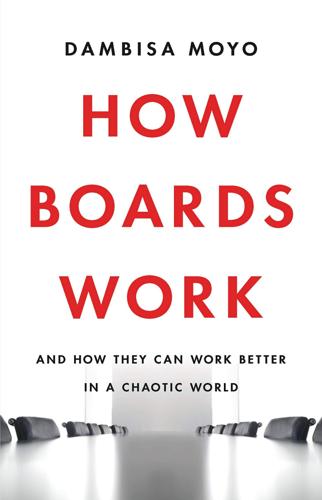
How Boards Work: And How They Can Work Better in a Chaotic World
by
Dambisa Moyo
Published 3 May 2021
“Understanding a Company Director’s Fiduciary Duties and Consequences of Failing These Duties.” Last modified February 25, 2020. www.begbies-traynorgroup.com/articles/director-advice/understanding-a-company-directors-fiduciary-duties-and-consequences-of-failing-these-duties. Bellstrom, Kristen. “WeWork Has an All-Male Board—and It’s Not Alone: The Broadsheet.” Fortune, August 15, 2019. https://fortune.com/2019/08/15/wework-%20ipo-board-of-directors-male/. . “Why One Diverse Candidate Isn’t Enough: Broadsheet for June 24.” Fortune, June 24, 2019. https://fortune.com/2019/06/24/why-one-diverse-candidate-isnt-enough-broadsheet-for-june-24/. Bellstrom, Kirsten, and Emma Hinchliffe.
…
Nzima, Simiso, Daniel Bienvenue, Beth Richtman, and Theodore Eliopoulos. “Corporate Board Diversity Update.” Investment Committee. CalPERS, agenda item 9c, June 18, 2018. www.calpers.ca.gov/docs/board-agendas/201806/invest/item09c-00_a.pdf. O’Brien, Sara Ashley. “WeWork Is Banning Meat.” CNN Business, July 13, 2018. https://money.cnn.com/2018/07/13/technology/wework-meat-ban/index.html. OECD. “Inflation (CPI).” OECD iLibrary. https://doi.org/10.1787/eee82e6e-en. O’Kelley, Jack “Rusty,” and Melissa Martin. “Global and Regional Trends in Corporate Governance for 2018.” Russell Reynolds Associates, December 8, 2018. www.russellreynolds.com/insights/thought-leadership/global-and-regional-trends-in-corporate-governance-for-2018.
…
The anti-corporate spirit has inspired employee revolts and environmental activism, and it has even influenced movements such as Black Lives Matter and #MeToo, the latter of which is estimated to have ousted over four hundred high-profile executives within an eighteen-month period. The last two decades of business history are littered with examples of challenged and even disgraced companies. Boeing, Enron, General Electric, Kmart, PG&E, Theranos, the Weinstein Company, WeWork, and WorldCom are just a handful of the many corporations left in ill repute, their financial value decimated and the reputations of their leaders indelibly stained. In fact, this phenomenon extends beyond individual companies. Whole industries have been severely damaged, including the US auto industry, banking, and technology in the dot-com crash.
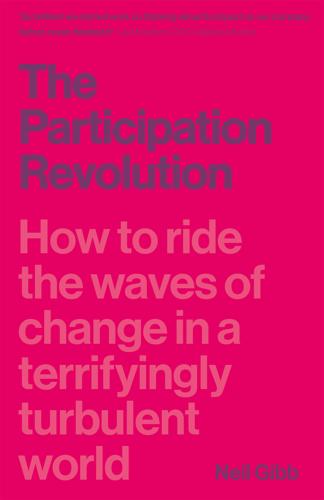
The Participation Revolution: How to Ride the Waves of Change in a Terrifyingly Turbulent World
by
Neil Gibb
Published 15 Feb 2018
In 2010, Neumann and McKelvey sold GreenDesk and decided to take what they had learned and implement it on a larger scale. They called their new business “WeWork”. When businesses rapidly scale, they often lose the essence of what first made them special. They become something to franchise or “roll out”. But Neumann and McKelvey were keenly aware of what it was that had made GreenDesk so special. It wasn’t the shared office space, although that was vital. It was the fellowship, the intimacy, the sense of belonging, camaraderie, and shared experience. They made this special quality WeWork’s primary focus, its social mission: to create a world where people work to create a life, not just a living.
…
This is a “sun is the centre of the universe” insight. Perhaps the “sun is the centre of the universe” insight. Human connection is the currency of the social economy. It is potentially the most abundant and sustainable energy source on the planet, yet for so many it is the scarcest. By the end of 2016, WeWork had 80,000 members in 110 locations all around world. In February 2017, the business was valued at $20 billion. 2 Ours “I know that may sound strange to some people, but most important is my connection with my fans and the connection that they breed with one another” Lady Gaga In May 2012, word began to spread that the British indie band the Stone Roses were going to play a free gig at Warrington Town Hall, a small and decidedly unglamorous venue in the hometown of lead singer Ian Brown.
…
Apple, meanwhile, had a market capitalisation of $625 billion, making it the most valuable company in the world. 2. Bank to the future “When I met my wife I was focused on making money, but failing miserably. She taught me that, ‘Financial success can never be the goal, only a by-product of living with purpose.’ That was a game changer for me” Adam Neumann, CEO, WeWork Ravi runs a fish stall in the maze of tiny back streets that connect up the thoroughfares of Pudu market in Kuala Lumpur. His stall is situated on a sliver of a street alongside other stalls packed densely down both sides, each trader’s produce bleeding into the next. Pudu market is a bustling, restless, rabbit warren of hustle and trade.
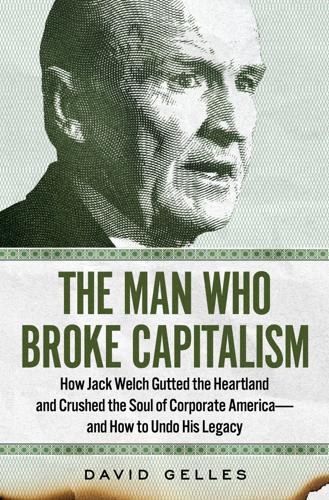
The Man Who Broke Capitalism: How Jack Welch Gutted the Heartland and Crushed the Soul of Corporate America—and How to Undo His Legacy
by
David Gelles
Published 30 May 2022
The forced curve meant that ‘Helping your fellow worker become more productive can actually hurt your chances of getting a higher bonus.’ ” Microsoft phased out the practice after it led to broad disillusionment within the ranks, but newer companies have not learned the lessons of history. At WeWork—the shared office space company—cofounder Adam Neumann set a goal of laying off 20 percent of the company’s workforce every year. “We met those expectations, and I’m not proud of it,” said one member of WeWork’s human resources staff. And at Amazon—one of the world’s largest corporations—worker well-being seems to be but an afterthought. Amazon manages more than a million employees across its vast fulfillment centers, fleets of delivery trucks, and office parks, eclipsed only by Walmart, which employs two million people.
…
The Bill and Melinda Gates Foundation, flush with a $50 billion endowment made possible by Microsoft’s early monopolizing, tried to use technology to overhaul curriculums in Washington State. Amazon founder Jeff Bezos has launched the Bezos Academy, a preschool designed to cultivate entrepreneurial thinking. Facebook founder Mark Zuckerberg donated $100 million to revamp the Newark public school system, an effort later deemed unsuccessful. And Adam Neumann, the WeWork cofounder, started a high-priced school for his children and their friends and let his wife design the curriculum. These expensive efforts were largely unsuccessful, making clear that improving how children learn and teachers teach takes more than money. Although Welch’s attempt to reform the New York City public schools turned out to be beyond his grasp, he was not done with his forays into education.
…
“This caused people to”: Bob Sutton, “Dysfunctional Internal Competition at Microsoft: We’ve seen the enemy, and it is us!,” Work Matters, July 6, 2012, https://bobsutton.typepad.com/my_weblog/2012/07/dysfunctional-internal-competition-at-microsoft-weve-seen-the-enemy-and-it-is-us.html. “We met those expectations”: Reeves Wiedeman, Billion Dollar Loser: The Epic Rise and Spectacular Fall of Adam Neumann and Wework (New York: Little Brown, 2021), 207. “our nature as humans”: Jodi Kantor, Karen Weise and Grace Ashford, “The Amazon That Customers Don’t See,” New York Times, June 15, 2021, https://www.nytimes.com/interactive/2021/06/15/us/amazon-workers.html. “We’re not treated as human beings”: Patrice Taddonio, “ ’You’re Just Disposable’: New Accounts from Former Amazon Employees Raise Questions About Working Conditions,” Frontline, February 14, 2020, https://www.pbs.org/wgbh/frontline/article/youre-just-disposable-new-accounts-from-former-amazon-employees-raise-questions-about-working-conditions/.

The Everything Blueprint: The Microchip Design That Changed the World
by
James Ashton
Published 11 May 2023
But an embarrassing flameout was already in train. A month before Sōzō, one of SoftBank’s highest-profile investments had announced its intention to float on the New York Stock Exchange. Son had backed WeWork, the temporary workspace provider led by the shaggy-haired, messianic Adam Neumann, to the tune of $11bn, although not exclusively from the Vision Fund. The initial $4bn had been conceived in typical Son fashion: based on a brief meeting and some scribbled notes. At WeWork’s last fundraising, SoftBank had pumped money into the business at a valuation of $47bn, but for the initial public offering (IPO), which was already facing postponement, it was being pitched at less than half that price.
…
Neumann had some lofty ideas, including a company mission to ‘elevate the world’s consciousness’.3 Would-be investors were rattled by a vague investment prospectus that revealed unacceptable conflicts, such as Neumann’s leasing back to WeWork – now called the We Company – properties that he part-owned. Less than a week after Sōzō, having been pilloried for the revelations he smoked marijuana on board a private jet, Neumann stepped down as chief executive. The IPO was pulled soon after. The turn of events dealt a blow to SoftBank’s reputation and the thoroughness with which it carried out due diligence on its investments. In truth, its IPO programme had already delivered mixed results. Ride-hailing app Uber had listed in May that year, but on 14 August – the same day WeWork filed its intention to float – its shares slid after it posted a $5bn second-quarter loss.
…
Ride-hailing app Uber had listed in May that year, but on 14 August – the same day WeWork filed its intention to float – its shares slid after it posted a $5bn second-quarter loss. The performance of Slack, which floated in June, had been little better. Not only could SoftBank not raise any money from the heavily loss-making WeWork, but it also had to put more money in so the venture could remain afloat. On 23 October, SoftBank injected up to $5bn into the business and stumped up $3bn for existing shareholders, increasing its stake to roughly 80 per cent from 30 per cent. Two weeks later, SoftBank reported a $6.5bn quarterly loss – its first in 14 years – after writing down the value of several of its investments.
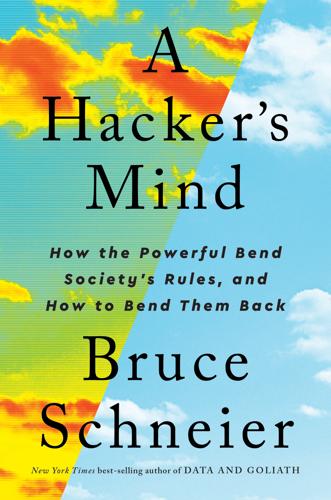
A Hacker's Mind: How the Powerful Bend Society's Rules, and How to Bend Them Back
by
Bruce Schneier
Published 7 Feb 2023
The only reason Uber exists at all is that there are still investors willing to pour capital into this sinkhole, probably waiting for the time when driverless car technology allows the company to fire all of its drivers and operate a fully autonomous fleet. WeWork has also never turned a profit, losing over $10 billion in the past three years. That particular VC-fueled bubble burst when the company tried and failed to go public in 2019. The COVID-19 work-from-home rules further hurt WeWork’s chances of success, and the company’s co-founder was ousted as CEO and chairman of the board. The only reason that WeWork ever grew so big is because it raised $12.8 billion of VC funding between its 2010 founding and the summer of 2019, and billions more since as debt relief.
…
“TOO BIG TO FAIL” 98bail them out again if needed: Michael Greenberger (Jun 2018), “Too big to fail U.S. banks’ regulatory alchemy: Converting an obscure agency footnote into an ‘at will’ nullification of Dodd-Frank’s regulation of the multi-trillion dollar financial swaps market,” Institute for New Economic Thinking, https://www.ineteconomics.org/uploads/papers/WP_74.pdf. 24. VENTURE CAPITAL AND PRIVATE EQUITY 100We don’t want some central planner: Eric Levitz (3 Dec 2020), “America has central planners. We just call them ‘venture capitalists,’ ” New York Magazine, https://nymag.com/intelligencer/2020/12/wework-venture-capital-central-planning.html. 102the case of Greensill Capital: Eshe Nelson, Jack Ewing, and Liz Alderman (28 March 2021), “The swift collapse of a company built on debt,” New York Times, https://www.nytimes.com/2021/03/28/business/greensill-capital-collapse.html. 25. HACKING AND WEALTH 104cum-ex trading: David Segal (23 Jan 2020), “It may be the biggest tax heist ever.
…
Katzenbach, 164 spam, 46–47 spear phishing, 192 Spectre, 48 sponsored content, 194 spoofing, 81, 82 sports hacks, 41–44, 46, 103, 259n Summers, Larry, 97 sumptuary laws, 110 supply chain attacks, 145 Susskind, Jamie, 248 Suzuki, Daichi, 42 systems additional for hacking defense, 54, 60 biological, 19–20 defined, 17–18, 19 hierarchy and, 200 multiple levels of, 32 norms and, 66–67 resilience in, 152 rigidity of, 27 rules and, 18–19 thinking based on, 20 TaskRabbit, 124 Tata, Anthony, 160 tax code bugs in, 14–15 complexity of, 13–14 See also tax hacks Tax Cuts and Jobs Act (2017), 14, 15–16, 129, 146–47, 149 tax hacks architecture and, 109 creative hackers and, 22 cum-ex trading, 104–5 de minimis rule and, 249 defenses against, 15–16, 51, 61 jurisdictional rules and, 128–31 morality and, 263n wealth/power advantages and, 120 tax havens, 128–31 Tay (chatbot), 210 technological change, 251–52 telephone hacks, 26–27, 46 Terminator, 243 terrorism, 196 Tetzel, Johann, 72, 260n Theranos, 101 Thiel, Peter, 3, 4 threat modeling, 62–63, 64–65, 96 title-only bills, 154 “too big to fail” hack, 95–98 travel hacks, 179–80 trespass law, 135–36 tribal courts, 113 tribalism, 196–97 Troubled Asset Relief Program, 96 Trump, Donald banking hacks and, 77 cognitive hacks and, 182 destruction as result of hacking and, 173 legislative process hacks and, 147 norms and, 66–67 payday loans and, 126 social media and, 185 tax hacks and, 105 trust hacking, 27, 191–94, 218 TurboTax, 190 turducken, 110, 263n Turkle, Sherry, 218–19 Twenty-Fourth Amendment, 164 Twitter, 81 typos, 84–85 Uber, 99, 100, 101, 116, 123, 125, 264n unemployment insurance, 132–33 United Nations Convention on the Law of the Sea (1994), 130 user interface design, 189–90 Vacancies Reform Act (1998), 160 variable rewards, 186 venture capital (VC), 99–101, 125 Violence Against Women Act (2013), 114 voice assistants, 217 Volcker Rule, 77 Volkswagen, 234 Voltaire, 172 voter eligibility hacks, 161–63 voter ID laws, 164–65 Voting Rights Act (1965), 164 vulnerabilities acceptance of, 16 AI ability to find, 229–30, 238–39 ATM hacks and, 31, 33, 34 bugs as, 14–15 hacking as parasitical and, 48, 49 hacking hierarchy and, 201 hacking life cycle and, 21 identifying, 56–57, 77–78, 237–38 legislative process hacks and, 147–48, 267n of AI systems, 4, 209–11, 226–27 real estate hacks and, 86 responsible disclosure, 89–90 secure systems design and, 59 zero-day, 90 See also patching Walker, Scott, 166–67 WannaCry, 50 Warner, Mark, 190 Watts, Duncan, 97 wealth/power access and, 22 administrative burdens and, 134 democratic growth and, 250 election hacks and, 168–71 hacking advantages of, 103–4, 119–22 hacking governance systems and, 248 hacking normalization and, 73, 104, 119, 120, 122 impact on vulnerability patches and, 24 market hacks and, 97 trust breakdown and, 251 West, Kanye, 170 Westphal, Paul, 41 WeWork, 100 WikiLeaks, 191 Wilson, Edward O., 251 Winston, Patrick, 206 Women, Infants, and Children (WIC) program, 134 work-to-rule, 115–16, 121 YouTube, 185, 236 Zelenskyy, Volodymyr, 193 zero-day vulnerabilities, 90 Zone of Death jurisdictional loophole, 112–13 Zuckerberg, Mark, 94 Zuckerman, Ethan, 183 ALSO BY BRUCE SCHNEIER We Have Root Click Here to Kill Everybody Data and Goliath Carry On Liars and Outliers Cryptography Engineering Schneier on Security Practical Cryptography Beyond Fear Secrets and Lies The Twofish Encryption Algorithm The Electronic Privacy Papers E-Mail Security Protect Your Macintosh Applied Cryptography Copyright © 2023 by Bruce Schneier All rights reserved First Edition For information about permission to reproduce selections from this book, write to Permissions, W.
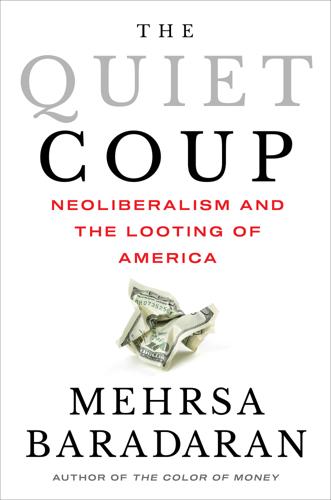
The Quiet Coup: Neoliberalism and the Looting of America
by
Mehrsa Baradaran
Published 7 May 2024
Neumann even tried to trademark the word “we,” meaning that he would have a legally protected property interest in “we” for use across their enterprise. As a synopsis of neoliberal lawmaking, one could hardly ask for better satire. WeWork was adamantly not a real estate company, insisted Neumann, which is why the company earned a valuation of $47 billion while its competitor, the real estate giant Regus, was valued at $3 billion. (Regus’s more modest mission: “Our global network of workspaces enable you to work wherever you need to be, in a productive, professional environment.”) In 2019, within weeks of filing for an IPO, WeWork began to unravel, bursting the $47 billion dream. Neumann was dismissed as the company fell to a $3 billion valuation.
…
Nothing in the business changed, but the market stopped believing in community and saw the company for what it was: nice office rentals. As a real estate company, WeWork was profitably extracting yield from rents, the tried and true means of capital growth historically. The unicorn promises to do more: to financialize what Wall Street had not dreamed of financializing: not more asset classes, but society itself. The market has come full circle. Our modern visionaries at the edge of the market frontier, however, reveal a rather grim and limited vision for humanity’s future. The $154 billion Vision Fund, WeWork’s angel investor, is illustrative. It was started by Masayoshi Son, the founder and CEO of the multinational conglomerate SoftBank.
…
Tech’s manifest destiny is led not just by innovative tech, but by charismatic leaders of unicorn companies with a plan for the future. These firms sell not a product but a community, a cause—even self-transformation. Their success lies in commodifying community membership along lines of identity and belonging. Their product is rarely the technology itself but rather the restoration of something lost. Adam Neumann launched WeWork with the mission to “create community” and “raise consciousness.” The latter was good for some laughs in the media, but the former hardly raised eyebrows: community has yet to be monetized, making it a frontier place beyond the commodified homeland of existing markets. Neumann insisted he was selling community and communal living and not just office space, identifying himself as a community-building expert, having been raised on a kibbutz.

The Future of Money: How the Digital Revolution Is Transforming Currencies and Finance
by
Eswar S. Prasad
Published 27 Sep 2021
Some of the events associated with the history of SoftBank’s investments in WeWork and the company’s attempted turnaround in 2020 are reported in Amy Chozick, “Adam Neumann and the Art of Failing Up,” New York Times, May 18, 2020, https://www.nytimes.com/2019/11/02/business/adam-neumann-wework-exit-package.html; Arash Massoudi, Kana Inagaki, and Eric Platt, “WeWork on Track for Profits and Positive Cash Flow in 2021, Says Chairman,” Financial Times, July 12, 2020, https://www.ft.com/content/6b977ff2-ca5c-449a-bb6b-46039bd26c9b; and Konrad Putzier, “WeWork Sheds Youthful Image as It Lures Big Corporations,” Wall Street Journal, July 28, 2020, https://www.wsj.com/articles/wework-sheds-youthful-image-as-it-lures-big-corporations-11595937615.
…
Son acquired the reputation of a visionary investor in technology start-ups. In 2016, Son met Adam Neumann, the cofounder of WeWork, and soon became enamored of Neumann’s business idea. WeWork is a real estate company that rents out office and meeting spaces for technology start-ups and other enterprises. Through the sheer charisma of its founder, it portrayed itself as an exciting technology company rather than a humdrum real estate business. SoftBank invested $10.7 billion in WeWork from 2017 to 2019 in return for about a 23 percent ownership share, giving the company a valuation of $47 billion. In August 2019, the company issued a detailed description of its financial situation and prospects in advance of a public listing of its shares on the stock market.
…
In August 2019, the company issued a detailed description of its financial situation and prospects in advance of a public listing of its shares on the stock market. This gave investors a clearer picture of the company’s shaky finances—not to mention its cofounder’s various financial shenanigans. Investors balked and the public listing had to be canceled. With the pandemic-induced recession crushing demand for WeWork’s product and jeopardizing the viability of the company’s business model, SoftBank faced the risk that its investment in the company would turn into a pittance. These two examples highlight the nature of the business—any investment could yield astronomical profits or turn to dust. From 2017 through 2019, private equity firms worldwide raised more than $650 billion in capital each year.

The Price of Time: The Real Story of Interest
by
Edward Chancellor
Published 15 Aug 2022
Its multibillion-dollar subsidies completely distorted marketplace price and service signals, leading to a massive misallocation of resources.’37 WeWork was another reality-distorting unicorn. The company’s grandiose mission was to ‘change the world’s consciousness’ – a somewhat ambitious task for a company whose main business involved leasing and renting out office space via an app. Also founded in 2010, WeWork borrowed and lost stupendous sums over the years. Like Uber’s, those losses escalated with time. In August 2019, Reuters Breakingviews commented on WeWork’s business operations: Revenue in the first six months of 2019 almost doubled to $1.5 billion from the same period last year.
…
In August 2019, Reuters Breakingviews commented on WeWork’s business operations: Revenue in the first six months of 2019 almost doubled to $1.5 billion from the same period last year. But operating losses grew even faster, from $678 million to $1.4 billion. Easy money and economic growth since its 2010 founding have allowed WeWork to expand this fast while burning through cash. In that sense, WeWork is a poster child of the longest U.S. economic recovery on record, and an era where money is virtually free.38 Unicorns could be seen as a second class of zombie, wrote a correspondent to the Financial Times, ‘whose owners and investors can keep them alive by constant waves of propaganda about their cutting edge technology which has yet to produce a profit (Uber, for example) but are supposedly part of ‘disruption’ culture.
…
The hope that someday they will be profitable does not justify the destruction of useful and profitable business models.39 The large-scale misallocation of resources into loss-making businesses whose profits exist in Never-Never Land is a sign that the cost of capital is too low. Bring down interest rates low enough and even unicorns can fly and, soaring too high, they inevitably crash. Prior to its planned 2019 initial public offering, WeWork’s valuation was estimated at $47 billion. Wall Street’s suspension of disbelief cracked before the IPO got underway, however, and some $40 billion was wiped off its private market value. A tale not so much of creative destruction, but of capital destruction on a grand scale. THE PRODUCTIVITY PUZZLE Economies on both sides of the Atlantic experienced a collapse in productivity growth in the post-crisis decade.
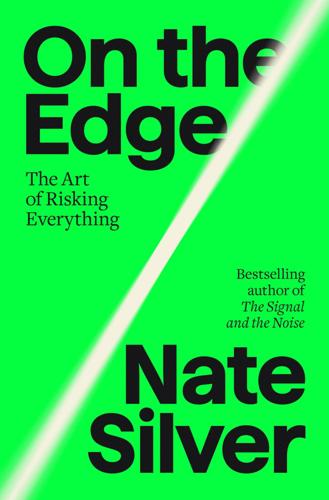
On the Edge: The Art of Risking Everything
by
Nate Silver
Published 12 Aug 2024
GO TO NOTE REFERENCE IN TEXT a pregnant employee: Brendan Pierson, “WeWork, Former CEO Adam Neumann Accused of Pregnancy Discrimination,” Reuters, November 1, 2019, sec. Technology, reuters.com/article/idUSKBN1XA2OA. GO TO NOTE REFERENCE IN TEXT expanded far too quickly: Amy Chozick, “Adam Neumann and the Art of Failing Up,” The New York Times, November 2, 2019, sec. Business, nytimes.com/2019/11/02/business/adam-neumann-wework-exit-package.html. GO TO NOTE REFERENCE IN TEXT enormous annual losses: Rani Molla, “The WeWork Mess, Explained,” Vox, September 23, 2019, vox.com/recode/2019/9/23/20879656/wework-mess-explained-ipo-softbank.
…
GO TO NOTE REFERENCE IN TEXT put $350 million: Andrew Ross Sorkin et al., “Adam Neumann Gets a New Backer,” The New York Times, August 15, 2022, sec. Business, nytimes.com/2022/08/15/business/dealbook/adam-neumann-flow-new-company-wework-real-estate.html. GO TO NOTE REFERENCE IN TEXT “superior living environment”: “Senior Accountant,” Flow, jobs.lever.co/flowlife/687db5e3-c2a4-484b-a818-a9f7b3ae71e4 [inactive]. GO TO NOTE REFERENCE IN TEXT before imploding spectacularly: Gennaro Cuofano, “How WeWork’s Implosion Turned It into a Shell of Its Initial $47 Billion Promise,” HackerNoon, March 11, 2022, hackernoon.com/how-weworks-implosion-turned-it-into-a-shell-of-its-initial-$47-billion-promise. GO TO NOTE REFERENCE IN TEXT a pregnant employee: Brendan Pierson, “WeWork, Former CEO Adam Neumann Accused of Pregnancy Discrimination,” Reuters, November 1, 2019, sec.
…
Other parts of The River are more racially and ethnically diverse—poker, for instance—but nearly all of it is quite male. Alexander, “ACX Survey Results 2022.” GO TO NOTE REFERENCE IN TEXT cofounder of WeWork: Andrew Ross Sorkin et al., “Adam Neumann Gets a New Backer,” The New York Times, August 15, 2022, sec. Business, nytimes.com/2022/08/15/business/dealbook/adam-neumann-flow-new-company-wework-real-estate.html. GO TO NOTE REFERENCE IN TEXT revival of nationalist governments: Sabina Mihelj and César Jiménez-Martínez, “Digital Nationalism: Understanding the Role of Digital Media in the Rise of ‘New’ Nationalism,” Nations and Nationalism 27, no. 2 (April 2021): 331–46, doi.org/10.1111/nana.12685.

Your Face Belongs to Us: A Secretive Startup's Quest to End Privacy as We Know It
by
Kashmir Hill
Published 19 Sep 2023
The building where Clearview was supposedly headquartered did not exist. The company’s listed address was 145 West Forty-first Street. There was a delivery dock at 143 West Forty-first Street and next to it on the corner of Broadway, where 145 should have been, an outpost of the co-working giant WeWork—but its address was 1460 Broadway. Thinking that Clearview must be renting a WeWork office, I popped my head in and asked the receptionist, who said there was no such company there. It was like something out of Harry Potter. Was there a magic door I was missing? I reached out to Clearview’s lawyer, Paul Clement, to see if he’d actually written the legal memo for this company with one fake employee working out of a nonexistent building.
…
It was at that point that Clearview signed a vendor policy and a nondisclosure agreement, which was why Ton-That would later deny having worked with the NYPD. The policy had a section on “unpaid demonstrations/pilot projects” that warned that the city saw it as a gift and there was no guarantee that Clearview would ultimately get a contract. Where Clearview had to provide a mailing address, it listed that WeWork office in midtown Manhattan near the New York Times building; it briefly rented a space there when Ton-That had decided he needed a more regular office space than East Village cafés. A week after getting one of the high-ranking detectives set up, Ton-That sent him an email asking how the “tire-kicking process” was going.
…
But she would help them weather the storm. * * * — IN EARLY JANUARY, after a trip home to Australia for the holidays, Ton-That spent hours with Linden preparing for the questions I was likely to raise. He would be the face of the company while Schwartz stayed in the shadows. On a Friday morning, he and Linden went to a WeWork in Chelsea that they had booked for our meeting. Ton-That wore a blue suit and glasses; Linden brought Tate’s cookies, in chocolate chip and oatmeal raisin. Ton-That told me about himself, and the company, and its extraordinary tool. He declined to name anyone else involved beyond Richard Schwartz, whom he said he had first met at a book event at the Manhattan Institute, a conservative think tank, though he could not remember what the book was when I asked.
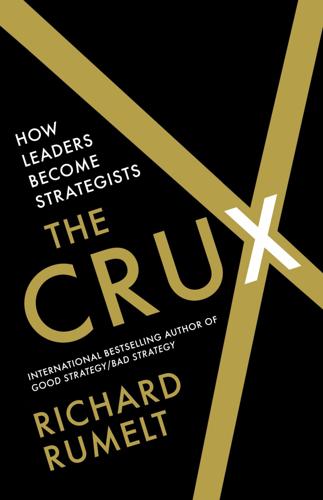
The Crux
by
Richard Rumelt
Published 27 Apr 2022
It would seem that the only way to get to profits is to either raise prices or cut drivers’ pay, and management does not want to do either. More evidence that whole classes of speculators have a “bright, shiny object” reaction to any evidence of growth is WeWork. This company was created to sublease office space to people who wanted a small workplace apart from their home. No one would ordinarily think this would be a very profitable business. After all, there are already plenty of small firms that lease office space, a business that has been around for thirty years. But WeWork wanted to lease a lot of space in a lot of cities and then make that space available on a Web app, sort of like Airbnb. And it was signing new leases fast, showing rapid growth in the space available.
…
Despite the fact that this business plan wouldn’t pass muster in an undergraduate make-up-a-plan competition, it got funded by Japanese investment house SoftBank. The initial investment in WeWork was $4.4 billion, implying a valuation of $18–$20 billion. Despite claims by CEO Adam Neumann that the company was profitable, it was not—it made huge losses. By 2018 the company had burned through its cash and needed more, so an IPO was planned. The deal, arranged by Neumann and SoftBank CEO Masayoshi Son, valued WeWork at $47 billion. As part of the deal, $1 billion would go to buying shares from existing investors, including the board of directors. When the IPO prospectus became public, reactions to the history of losses, the increasingly erratic behavior of Neumann, and the company’s fluffy mission concept were negative.
…
When the IPO prospectus became public, reactions to the history of losses, the increasingly erratic behavior of Neumann, and the company’s fluffy mission concept were negative. SoftBank backed away from the IPO. The board wanted Neumann out, giving him a payoff of $185 million to just step aside. SoftBank reentered the deal with $5 billion, valuing the company at $8 billion, a long way down from $47 billion. The gloss on WeWork was that it was a “tech” company building the sharing economy. It actually seems more like an office-space lessor in a competitive world with excess office space. Yet billions were thrown around. Supposedly sober Goldman Sachs investment bankers claimed that it might have a path to a $1 trillion valuation.
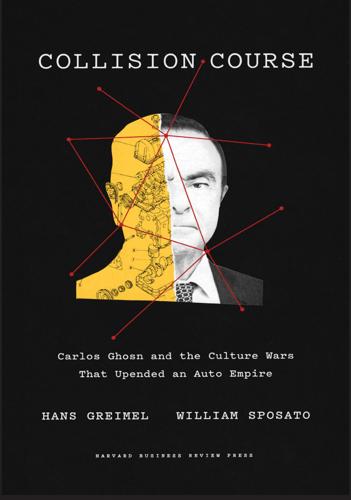
Collision Course: Carlos Ghosn and the Culture Wars That Upended an Auto Empire
by
Hans Gremeil
and
William Sposato
Published 15 Dec 2021
Japan Automobile Manufacturers Association, “JAMA in America, an Enduring Partnership,” May 2019, https://www.jama.org/wp-content/uploads/2019/05/final-report-standard.pdf. 12. Sam Nussey, “SoftBank to Write Down WeWork by $6.6 Billion, Compounding Portfolio Misery,” Reuters, April 20, 2020, https://www.reuters.com/article/us-softbank-group-results/softbank-to-write-down-wework-by-6-6-billion-compounding-portfolio-misery-idUSKBN22C011. 13. Lauren Feiner, “SoftBank Values WeWork at $2.9 Billion, Down from $47 Billion a Year Ago,” CNBC, May 18, 2020. https://www.cnbc.com/2020/05/18/softbank-ceo-calls-wework-investment-foolish-valuation-falls-to-2point9-billion.html. 14. Organisation for Economic Co-operation and Development, International Direct Investment Statistics 2019, https://read.oecd-ilibrary.org/finance-and-investment/oecd-international-direct-investment-statistics-2019_g2g9fb42-en#page18. 15.
…
Born in southern Japan to Korean parents, Son spent $20 million in early 2000 to invest in the then-fledgling Chinese internet shopping site Alibaba. By 2020, even after selling off part of the initial 34 percent stake, his holdings were worth an estimated $150 billion, a return of somewhere around 749,900 percent. This singular success has enabled Son to cover a multitude of other sins, most notably WeWork, the once high-flying shared workspace company. Son had invested $13.5 billion, only to write off $6.6 billion in its value in April 2020.12 “I was foolish,” he said of the investment after the write-down.13 That’s still small beer for Son, however. In the collapse of tech company shares in the dot-com bubble of 2000, he is calculated to have lost $70 billion.
…
See SBA Sumitomo, 35 Suzuki, Osamu, 192, 224 Takai, Yasuyuki, 273 Takano, Takashi, 283 Takata airbag scandal, 239, 308, 317 Takeda pharmaceutical group, 67 Tanaka, Kakuei, 164, 265 Tankan survey of business confidence, 61 Tavares, Carlos, 200, 252 Taylor, Michael, 275, 278, 285–287, 290–291 Taylor, Peter, 278, 286, 290–291 Tesla, 81, 85–86, 313 Thatcher, Margaret, 109 Tokyo Public Prosecutors Office, 143–144, 150, 183–184 Tokyo’s Haneda International Airport, 6, 7, 36, 121 Tomioka Silk Mill, 108 Toshiba, 207 Toyama, Kazuhiko, 239–240 Toyoda, Akio, 50, 51, 54, 224, 238, 250 Toyoda, Masakazu, 41, 144, 219–220, 316 Toyota Motor Corporation, 4, 21, 192, 208, 250, 259, 307 The True Story of Carlos Ghosn (manga comic book), 27 Trump, Donald, 77, 177–178 Uchida, Makoto, 233–234, 251, 309, 310, 312 United Kingdom, government involvement in private companies, 109 UN Human Rights Council, 14, 300 US Justice Department charges against auto parts companies for price-fixing and bid-rigging, 308 UN Working Group on Arbitrary Detention, 14, 176–177, 271, 322 Vanity Fair, 276, 290 Vanity Fair France, naming Ghosn as “World’s Most Influential French Person,” 50 Vodafone, 211–212 Vogel, Ezra F., 33, 39 Vogel, Harold L., 206 Volkswagen AG, 4, 78, 192, 311, 313 Wagoner, Rick, 47, 57 Wall Street Journal, 11, 291, 304, 305 on Alliance, 135 on Yamaichi collapse, 64 Wallace, Henry, 68 Warburton, Max, 187 Wareham, James, 294 Waymo, autonomous ride-hailing, 313 Weber, Christopher, 67 Welch, Jack, 70–71 WeWork, 209 white-collar crime, interpretations of, 13, 317–318 Wicker, Roger, 298, 306, 322 Willis Towers Watson, 53, 56 Woodford, Michael, 240–242 World Economic Forum at Davos, 49–50 Yamaichi Securities collapse, 63, 64 Yamamoto, Hiroshi, 304 Yamamoto, Yohji, 49 Yamanouchi, Takashi, 191 Yanai, Tadashi, 54 Yazaki Corporation, 308 Yokohama, 194, 296 introduction of Leaf at, 73 Kelly’s summons for meeting of board of directors, 127, 293 Ghosn’s meeting style at, 52 Nissan’s global headquarters in, 8, 42, 73 Nissan’s technology center near, 79, 145 Yokoo, Nobumasa, 269 Z-Car (350Z) redesign, 26, 309–310 zaibatzu (government-promoted conglomerates), 35, 35–36, 37, 39, 54 Zayek, George-Antoine, 278, 286–287 Zi-A Capital BV, 131, 147, 149 Zimeray, François, 176–177, 279 ABOUT THE AUTHORS HANS GREIMEL is an award-winning American business journalist who covers Japanese, Korean, and other Asian automakers from Tokyo as the Asia editor at Automotive News.
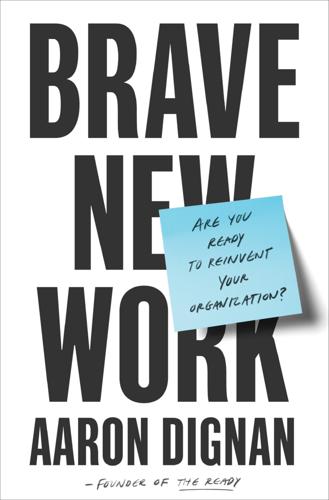
Brave New Work: Are You Ready to Reinvent Your Organization?
by
Aaron Dignan
Published 1 Feb 2019
The same strategy can be applied in an organizational context. Your project portfolio is probably a bell curve, but it could be a barbell. Take the case of WeWork, the global coworking space. It maintains more than four hundred locations that reflect its core business—desks and offices for rent in a vibrant social setting. But the firm has made unusual bets too: coliving spaces called WeLive, a luxury gym called Rise, and a private school called WeGrow. If they fail the sky won’t fall, but if one of them pops, WeWork wins big. Careful with OKRs. The OKR, which stands for objectives and key results, is a concept introduced to Google and several other prominent firms in Silicon Valley by venture capitalist John Doerr.
…
Gore WP Haton Zalando Technology Zappos Zingerman’s Sources of Inspiration Airbnb Amazon Chipotle Chobani Danone North America Etsy Facebook GitHub Google Johnsonville Lyft Quicken Loans Slack Southwest Airlines Stack Overflow Toyota Warby Parker WeWork Wikimedia Zapier USING THE OS CANVAS The canvas can provoke incredible conversations and powerful stories. It can help you and your team identify what to amplify and what to change. It can even help you find unexpected sources of inspiration. But for your first foray into what can be an emotional and challenging conversation, we recommend a lightly structured workshop format that has proven to be both safe and effective.
…
L. and Associates, 16, 69–70, 79, 142 Gorilla Glass, 103 Gould, Stephen Jay, 103 governance meetings, 122 governing constraints, 46 Gower, Bob, 222 Graham, Benjamin, 30 Graham, Paul, 230 Grant, Adam, 142 gratitude, 148 Gray, Dave, 196 G Suite, 135 Haier, 76, 80 Hamel, Gary, 26 Hammond, Robert, 188 Handelsbanken, 13, 94, 227–28 Hansson, David Heinemeier, 68–69 Harrison, Scott, 224–25 Hawk, Tony, 259 healthcare industry, 34–35 Buurtzorg in, 13, 34–36, 38, 79, 105, 144, 218 Heath, Chip and Dan, 212 Heppner, Frank, 46 Herzberg, Frederick, 165 hierarchies, 77–78, 258 High Line, 188 Hillaker, Harry, 88 Hillman, James, 36 hiring, 79, 142–43 Hoffman, Reid, 88 Holacracy, 71, 122, 202 HolacracyOne, 89 Human Side of Enterprise, The (McGregor), 39–41 Husney, Jordan, 89 Huxley, Aldous, 22 hygiene factors, 165, 173 ICBD (Intentions, Concerns, Borders, and Dreams), 222–23 IDEO, 142–43 incentive compensation, 171–72 Indie.vc, 253–54 influence, 78 information, 14, 54, 127–37 information symmetry, 130, 134, 170, 190 initial public offerings (IPOs), 254, 255 Innosight, 29 innovation, 14, 54, 102–9, 188 innovator’s dilemma, 91 integration vs. functions, 79–80 Integrative Decision Making (IDM), 71–73 internet, 84, 131 Intrinsic Motivation (Deci), 42 investment, 251–55 James, LeBron, 143, 172 Jamieson, Alex, 222 Jobs, Steve, 103 job satisfaction, 165 Johnson, Steven, 189 Joint Special Operations Command (JSOC), 128–29, 130 Kahneman, Daniel, 165 Kanigel, Robert, 22 Kegan, Robert, 152–53 knee-jerk reactions, 28 Kotter, John, 186 KPMG, 32 Kroger, 59 Kroghrud, Ivar, 147 labor productivity growth, 33–34 Lahey, Lisa, 152–53 Laloux, Frederic, 105 language, 217 Lasseter, John, 191 lattice organizations, 142 leader, role of, 223–28 leadership gap, 166 Leading Change (Kotter), 186 Lean Change Management (Little), 201 Lean Startup method, 107–8 learning, 152, 153, 156–57, 160, 162, 200 by doing, 230–31 faster, 88 games and activities for, 200 retrospectives and, 123–24 validated, 108 Legacy Organizations, 5, 21, 38, 47, 59, 237, 258 authority in, 66 decision making in, 69 information in, 129, 131 measurement in, 60 membership in, 140 operating systems of, 12 performance targets and, 97 strategy in, 86 liminal space, 196, 197, 201 Little, Jason, 201 Little Book of Beyond Budgeting, The (Morlidge), 96–97 locus of control, 154, 155 Long-Term Stock Exchange (LTSE), 254–55 looping, 193, 201–16, 229, 236 and conducting experiments, 213–16 and proposing practices, 207–12 and sensing tensions, 202–6 Lyft, 169 Machiavelli, Niccolò, 248 Made to Stick (Heath and Heath), 212 management, 26–27, 81 innovations in, 20 open-book, 130 org charts for, 7–9, 24, 77, 78, 81, 114, 189 market pay, 167–68 Marquet, David, 67 Maslow, Abraham, 38 Masters of Scale, 88 mastery, 14, 54, 151–62 maturity, 154, 155–56, 255–56 McChrystal, Stanley, 128–29, 130, 197 McGregor, Douglas, 39–41, 158 McKeown, Greg, 62 McKinsey, James O., 24–25, 95 McKinsey & Company, 24, 32, 143, 187 Medium, 84–85, 86 meetings, 3–4, 6, 119 moratorium on, 123 in OS Canvas, 14, 54, 118–26 structures in, 124–25 membership, 14, 54, 138–50 mergers and acquisitions (M&A), 32, 33 metrics, 60–61 Meyer, Erin, 258 Microsoft, 170 microwave, 103 Mindset (Dweck), 154 mindsets: fixed and growth, 154–55 see also Complexity Conscious mindset; People Positive mindset minimum viable policy, 68–69 Mitchell, Melanie, 129 Mitra, Sugata, 257 Morlidge, Steve, 96–97 Morning Star Company, 13, 55–56, 99, 168 motivation, 41–42, 64, 74, 165, 173 multiplayer software, 135 Münsterberg, Hugo, 25 murmuration, 194 Netflix, 113, 167–68, 219 Netscape, 59 networks, dynamic, 77–78 New York Summit, 147 New York Times, 147, 165 Nietzsche, Friedrich, 179 noncompete clauses, 144 Office of Strategic Services, U.S., 6–7 Ohno, Taiichi, 20, 111 OKR (objectives and key results), 87–88 Oktogonen Foundation, 94 Olympic basketball team, U.S., 172 one-on-ones, 121–22 OODA loop, 88, 90 Operating Manual for Spaceship Earth (Fuller), 247 operating system, organizational (OS), 12–13, 17, 18, 43, 215 agility and, 19 changing, see change economic, 246–47, 248 evolutionary, see Evolutionary Organizations management innovations and, 20 Operating System Canvas (OS Canvas), 14, 53–57 authority, 14, 54, 63, 65–74 compensation, 14, 54, 163–73 how to use, 174, 270–72 information, 14, 54, 127–37 innovation, 14, 54, 102–9, 188 mastery, 14, 54, 151–62 meetings, 14, 54, 118–26 membership, 14, 54, 138–50 purpose, 14, 54, 68–64, 67, 85 resources, 14, 54, 93–101 strategy, 14, 54, 83–92 structure, 14, 54, 75–82, 111 workflow, 14, 54, 110–17 operating systems, 9 for traffic flow, see traffic flow organizational debt, 27–29, 91 organizations, 255 agility in, 19, 20, 28–29 as complex systems, 45, 187–88 cooperatives, 250 decentralized autonomous, 250–51 entry/exit rates of, 33 evolutionary, see Evolutionary Organizations governance of, 122 investment and, 251–55 lattice, 142 legacy, see Legacy Organizations longevity of, 29–30 mergers and acquisitions, 32, 33 new forms of incorporation, 248–51, 252 operating systems of, see operating system, organizational org charts, 7–9, 24, 77, 78, 81, 114, 189 return on assets of, 31, 32 as set of membranes, 139–40 three structures of, 78 OS Canvas, see Operating System Canvas Ostrom, Elinor, 98 over statements, 89 Page, Larry, 136 Patagonia, 85, 130–31, 133, 249, 259 pay, see compensation People Positive mindset, 13, 36–43, 53, 55–57, 190, 195, 199, 244, 258–59, 267 authority and, 74 compensation and, 173 information and, 137 innovation and, 109 mastery and, 162 meetings and, 126 membership and, 150 purpose and, 64 resources and, 101 strategy and, 92 structure and, 82 workflow and, 117 Percolate, 131–32 performance, 46 individual, 158–60, 172 Petrarch, 224 Pflaeging, Niels, 78, 180, 189–90 Pixar, 119–20, 191–92 planning, 91, 95, 96, 100 see also strategy Plato, 3 Play-Doh, 103 polycentric governance, 98 PopSugar, 135 practices, proposing, 207–12 priming, 193, 197–201, 236 Principles (Dalio), 152 Principles of Scientific Management, The (Taylor), 23–24, 29 priorities, 88–89 profit, 59–60 Project Aristotle, 221 projects, 113, 114, 117 management of, 112, 237 sprints and, 115, 237–38 status of, 121, 132 work in progress and, 115–16, 132 proposing practices, 207–12 psychological safety, 219–23, 236 purpose, 14, 54, 68–64, 67, 85 push vs. pull, 131–32 Quaroni, Guido, 192 railroads, 8, 22–23 Raworth, Kate, 246–47 Ready, The, 17–19, 123, 125, 143, 149, 174, 190, 217 recruiting and hiring, 79, 142–43 Reddit, 135 red team, 90–91 REI, 85 Reinventing Organizations (Laloux), 105 relatedness, 42 relief, 236–37 reputation, 78 resistance, 233–34 resources, 14, 54, 93–101 retrospectives, 123–24 return on assets (ROA), 31, 32 Rework (Fried and Hansson), 68–69 Ries, Eric, 107–8, 254, 255 risk, 68, 122, 132, 231 barbell strategy and, 86–87, 105–6 ritual, 143 Robertson, Brian, 202 Rogers, Carl, 38 roles, 72, 77, 80, 81, 111, 141, 157 decision making and, 72, 73 mixing of, 157–58 Rotter, Julian B., 154 roundabouts, 10–12, 13, 47, 55 Ruimin, Zhang, 76 Russell, Bertrand, 247 Ryan, Richard, 42 sabotage, 5–7 safety, psychological, 219–23, 236 Sahlberg, Pasi, 12 Saint-Exupéry, Antoine de, 212 salary, 164, 165, 168 see also compensation Salary.com, 170 Salesforce, 119 S&P 500, 29–30, 60 Santa Fe, USS, 67 Santa Fe Institute, 29 scaling change, 234–39 scenario planning, 90 Schaar, Tom, 259 Scientific Management, 22–24, 26, 48 Scott, Kim, 120 scribes, 122–23 Securities and Exchange Commission (SEC), 104, 255 self-determination theory, 42 self-employment, 33 self-evaluation, 154 self-management, 16–17 self-set pay, 168 Semler, Ricardo, 245, 258 Seneca, 189 Senge, Peter, 153, 202 sensing, 202–6, 231–32 signal-controlled intersections, 9–12, 13, 46, 55 Simple Sabotage Field Manual, 7 Sinek, Simon, 222 Sisodia, Raj, 60 Slack, 119, 134, 135 SLAM teams, 80 Snowden, Dave, 156, 188–89 Sociocracy, 70–71, 122 space: creating, 224–26, 228 holding, 226–28 liminal, 196, 197, 201 Spencer, Percy, 103 Spotify, 112–13, 160, 218 spread, 217–18 sprints, 115, 237–38 standards vs. defaults, 106–7 Starbucks, 85 startups, 27–28, 33, 76–77, 107, 197, 254 Lean Startup method, 107–8 status quo, 48, 90–91, 233 steering metrics, 60–61 stocks, 30–31 strategy, 14, 54, 83–92 strategy+business, 76 strategy review meetings, 3–4 structure, 14, 54, 75–82, 111 Svenska Handelsbanken, 13, 94, 227–28 Taleb, Nassim Nicholas, 86–88, 106 targets, 95, 97, 101 Taylor, Frederick Winslow, 21–24, 26, 29, 111, 153, 186, 257 teams, 79, 82, 113, 117, 141, 142, 172, 225–26 Ballpoint game for, 199–200 charters for, 144–45 dynamic, 81 gratitude and, 148 ICBD technique for, 222–23 red, 90–91 retrospectives and, 123–24 rituals and, 143 SLAM, 80 sprints and, 115, 237–38 status updates and, 121 teams of, 77, 197 work in progress and, 115–16, 132 technology, 256–57 TED, 128, 246, 257 telephone, 103 Teller, Astro, 49 tensions, sensing, 202–6 Tesla, Inc., 62, 86 Theory X and Theory Y, 39–41, 130 Thomison, Tom, 89 tipping point, 216 Torvalds, Linus, 132 Toyota, 20, 111, 235 TPG, 253 traffic flow, 9–12, 45 roundabouts for, 10–12, 13, 47, 55 signal-controlled intersections for, 9–12, 13, 46, 55 tragedy of the commons, 98 training, 6, 156–57 transparency, 129, 130–31, 134, 136, 190, 195, 258 compensation and, 168, 169–71, 173 radical, 152, 154 trust, 236 twenty percent time, 107 Twitter, 84 Urwick, Lyndall, 25 User Manual to Me, 147–48 value creation, 78, 111–14, 160 Valve Software, 66, 107 Vang-Jensen, Frank, 227 Vanguard, 48 venture capital, 253 Vrba, Elisabeth, 103 VUCA, 43 wages, 34, 166 see also compensation Wallander, Jan, 94, 227 Warby Parker, 96 waterline principle, 69–70, 72 Weber, Max, 25 WeWork, 87 Whole Foods, 59, 61, 170, 259 Wikipedia, 140 Williams, Ev, 84–85 workflow, 14, 54, 110–17 working in public, 132 work in progress (WIP), 115–16, 132 World War II, 6–7 Wright, Orville and Wilbur, 103 Y Combinator, 230 Zanini, Michele, 26 Zappos, 144 al-Zarqawi, Abu Musab, 129 Zobrist, Jean-François, 37, 42–43 Zuckerberg, Mark, 88 ABCDEFGHIJKLMNOPQRSTUVWXYZ About the Author Aaron Dignan is the founder of The Ready, an organization design and transformation firm that helps institutions like Johnson & Johnson, Charles Schwab, Kaplan, Microsoft, Lloyds Bank, Citibank, Edelman, Airbnb, Cooper Hewitt Smithsonian Design Museum, and charity: water change the way they work.
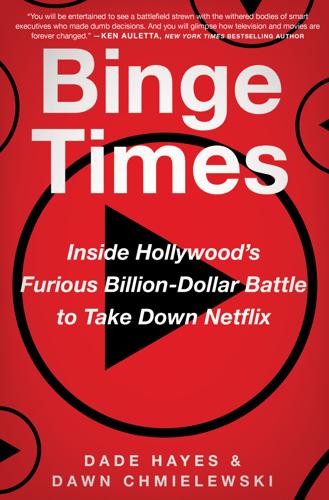
Binge Times: Inside Hollywood's Furious Billion-Dollar Battle to Take Down Netflix
by
Dade Hayes
and
Dawn Chmielewski
Published 18 Apr 2022
See also HBO analyst meeting of 2018, 153–54, 156, 158–59 AOL Time Warner, 25, 69–71 the Match, 133–34 Netflix and, 64–65, 71–72, 74–75, 159–60, 164, 256 proposed merger with Discovery, 289–90, 303–4, 306–8, 313–14 streamatis personae, ix–x WarnerMedia Day, 207–12, 214, 215, 221, 224–26 Washington, Denzel, 288 Washington, Kerry, 152 Washington Post, 107, 283 Wasserman, Lew, 12, 295 Watkins, Grace, 189 Watts, Naomi, 113 Wax, or the Discovery of Television Among the Bees, 19–21, 261 Way, Maclain and Chapman, 76 We Are Netflix, 42 Weaver, Sigourney, 299 Webb, Jack, 169 Wechter, Zach, 117 WeCrashed: The Rise and Fall of WeWork, 186 Wedding Singer, The, 262 Weeds, 56 Weiner, Matthew, 296 Weinstein, Harvey, 9, 296 Weinstein, Paula, 52 Weiss, D. B., 77 Welcome to Collinwood, 266 We Now Disrupt This Broadcast (Lotz), 138–39 West Coast Video, 37 West Side Story, 272 West Wing, The, 208 Westworld, 252 WeWork, 112, 186, 193 Whale Rider, 265 WhatsApp, 71 When They See Us, 15 White, E. B., 125 White Collar, 201 Whitman, Meg, x, xviii, 110–12, 114–17, 171, 187–88, 190, 193–95, 290 Whole Foods, 301 Wild Wild Country, 76 Wilkinson, Alissa, 283 Will.i.am, 98 Williams, Brian, 130–31 Williams, Gregory, 205 Williams, Robin, 68 Willimon, Beau, 53 Wilson, Rita, 257 Winfrey, Oprah, 97, 98, 103, 104, 186 Wire, The, 48, 68 Wired, 20, 81–82, 190 Wireless, 117 Witherspoon, Reese, 6–7, 10, 98, 103, 104, 152, 193, 246 Wizard of Oz, The, 299 Wolf, Dick, 204, 296 Wolf, Michelle, 2 Wolves and Villagers, 113 Wonder Woman 1984, 280, 284–85, 287–88, 305 Wood, Anthony, xi, 47–48, 313 Woodard, Alfre, 179 Woods, Tiger, 133–34 World According to Jeff Goldblum, The, 243 World Wide Web, 20 World Wrestling Entertainment (WWE), 142, 307 Wreck-It Ralph, 244 Wu, Tim, 154 Wynn, Ed, 125 Xandr, 210 X-Files, The, 292 Xfinity, 123–24, 198, 199, 248 Xumo, 140 Yahoo, 23, 51, 71, 90, 215 Yeatman, Andy, 235 YES Network, 134 You, 237 You May Also Like (Vanderbilt), 262 YouTube, 23, 71, 85, 134, 143–52 Y Tu Mamá También, 265 Zalaznick, Lauren, 49 Zaslav, David, 126, 144, 289, 308 Ziering, Amy, 186 Ziffren, Ken, 99 Zigler, Vivi, 150 Zodiac, 53 Zucker, Jeff, 145, 147 Zuckerberg, Mark, 71 About the Authors DADE HAYES is the business editor at Deadline.
…
“I ultimately said, ‘You know what? I think I have another startup in me,’” says Whitman, who’d worked as CEO alongside another visionary founder, eBay’s Pierre Omidyar. She joined as Quibi’s first employee on March 1, 2018, and initially moved to a shared workspace called Serendipity Labs, with a youthful WeWork vibe that may have evoked eBay’s earliest days. Those Silicon Valley offices’ casual atmosphere—with their beach chairs and young employees clad in jeans and T-shirts—represented “a far cry from the stuffy marble and mahogany conference rooms full of pin-striped suits that Harvard prepared us to navigate and command,” Whitman observed in her account of her decade leading eBay, The Power of Many.
…
The collaboration has been fruitful enough that Eisenberg and Apple struck a multiyear deal to create television and digital media projects under a new banner, Piece of Work Entertainment. In February, Apple announced its next project with Eisenberg, a limited series based on the Wondery podcast WeCrashed: The Rise and Fall of WeWork. The new service seemed poised to prove its Hollywood mettle with a civil rights drama starring Samuel L. Jackson and Anthony Mackie. The Banker was scheduled to premiere at the American Film Institute’s annual festival in Los Angeles when Apple abruptly withdrew it, an unusual move on the festival circuit.
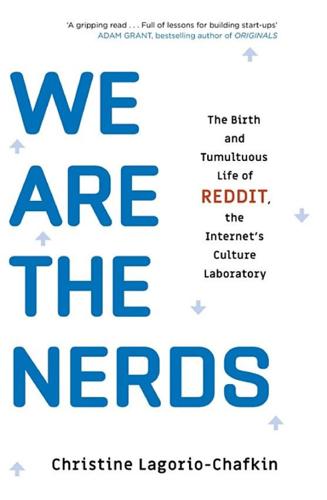
We Are the Nerds: The Birth and Tumultuous Life of Reddit, the Internet's Culture Laboratory
by
Christine Lagorio-Chafkin
Published 1 Oct 2018
She had planned to go from Reddit’s office in the coworking space in WeWork’s SoHo location to New Jersey that evening to visit family for the long Fourth of July weekend. Her packed suitcase was by her side. There were multiple AMAs in planning stages—she couldn’t abandon the individuals working hard on them. “What?” she stuttered. “How?” Taylor looked around the little glass-walled room; she’d amassed quite a collection of knickknacks and gifts from celebrities whom she’d interviewed. God, she wished she still had Jerry Seinfeld’s old coffee cup, which she’d kept for ages but a WeWork cleaning staffer had inadvertently discarded.
…
* * * By the summer of 2014, Reddit was maturing as a company, and Wong had hired up; the company comprised twenty-eight employees, across many cities. In San Francisco, space was getting tight in the Wired conference room. Martin and the small team of community staffers gradually moved back to New York, where a couple of ad-sales reps now worked. Reddit’s Manhattan presence expanded from one glass-walled cubicle in a SoHo WeWork space to two. One of the new hires in New York City would be a community manager to specialize in moderating and nurturing the AMAs. An extensive search process yielded two candidates, both avid Redditors, one of whom worked in Hollywood public relations, and had experience wrangling celebrities through various Internet endeavors.
…
In Salt Lake City, Dan McComas ushered Yishan Wong into a room. He put his head down for a moment, and began addressing the Reddit Gifts team, who were blindsided, some in tears. In New York City, employees got up from their desks and walked down a narrow hallway into a little glass-walled conference room at WeWork. Martin looked around the room at Victoria Taylor, two advertising employees, and Alex Angel. He started his address with a heavy heart. “First, I’m going to be leaving Reddit,” he said. There were audible gasps. But then Martin stiffened up to deliver the real news, the reason everyone was gathered: Second, he said, the company was shifting strategy and was asking everyone to move to San Francisco.
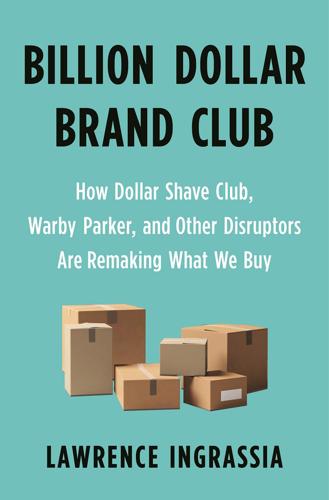
Billion Dollar Brand Club: How Dollar Shave Club, Warby Parker, and Other Disruptors Are Remaking What We Buy
by
Lawrence Ingrassia
Published 28 Jan 2020
At times, they even arrive hand-delivered by a particularly eager young person hoping to stand out by conveying an I’ll-do-anything-to-succeed passion. Their destination: 1161 Mission Street, Suite 300, in San Francisco. It’s in a building that also houses WeWork offices, but it’s not the typical glass-enclosed, chicken-coop-like warren crammed with a few desks and computers occupied by many WeWork tenants who can’t afford anything bigger or fancier. This office, with a separate entrance from the striving or struggling start-ups, has an airy feel, with stylish modern office furniture, subdued wall art, and a spacious, well-appointed conference room.
…
Then, when I came here to work, I was so happy.” But she wouldn’t be working there for much longer. The Fifth Avenue location, which drew more than seventy-five thousand visitors when it opened in February 1914—they were serenaded by music from a pipe organ in the store’s seventh-floor concert hall—had been sold for $850 million to WeWork, the start-up specializing in offering modular office space to tech companies and entrepreneurs. Lord & Taylor was planning to shutter the store in January, leading employees such as Quincy to worry about their futures. “As long as I find a job, that’s my main concern,” she said glumly. She might have considered heading south about two miles, to what might be dubbed the Shopping Republic of Direct-to-Consumer.
…
Verge Versace vertical retailers Victoria’s Secret videos Viking Global Investors Virtual Try-On VisionSpring vitamins Vive Vogue Vremi Wag Wall Street Journal Walmart logistics and Walmart.com Walton, Chris Ware2Go warbybarker.com Warby Parker warehouses automated costs of inventory and renting space in vertical Warner Bros. watches webfront stores websites similar rival Webvan Weiss, Emily Weldon, Mack Welty, Bruce WeWork whales Wharton Business School, University of Pennsylvania white label store brands Wildcat Capital Management Wilkinson Sword Co. Winc Winfrey, Oprah Wired Witherspoon, Reese World Series Wu, David Xtava Yaney, Maximus Yelp YKK zippers Yolles, Ian YouGov YouTube Zak, Heidi Zappos.com Zenni Optical zero-sum markets Zinus Zuckerberg, Mark Acknowledgments After working for several decades as an editor, I rediscovered the joys of writing again while doing this book—and some of the frustrations, too.

Squeezed: Why Our Families Can't Afford America
by
Alissa Quart
Published 25 Jun 2018
Work in previous centuries was something people did mostly out of economic urgency, and they dreamed of a heaven where they wouldn’t have to work or a land of milk and honey. (Aristocrats, of course, tended not to work at all and to live off their property.) To bring this mantra abruptly into the present; I had typed this sentence at a desk at the coworking behemoth WeWork, where the phrase was emblazoned on the company’s T-shirt. I stared at this koan, hoping the young woman wearing the shirt while restocking WeWork’s coffee was living it out somewhere else, and I thought about how many parents I knew, both younger and middle-aged ones, had bought into this maxim, to a mixed end. How are we all supposed to survive doing what we love? What will become of the rest of the world?
…
News & World Report, 55 Valencia College Peace and Justice Institute, 105 Vanity Fair, 211 Very Hungry Caterpillar (Carle), 7 Wages for Housework, 129–30 Wage stagnation, 9, 60–61, 243 Washington Center for Equitable Growth, 177 Wayne, Christina, 219 “Wealthies” vs. selfies, 216 “Wealthy Hand-to-Mouth, The” (study), 96–97 Weather Underground, 89 We Believe the Children: A Moral Panic in the 1980s (Beck), 75 Weber, Max, 60 Weeks, Kathi, 242 Weldon, Fay, 291n Westwood College, 41 WeWork, 38–39 Wharton, Edith, 94 Whitehall Studies, 96 Who Cares Coalition, 254 Wilkinson, Will, 213 William Cullen Bryant High School, 144–45 Williams, Joan, 29 Williams, William Carlos, 40 “Will to education,” 133 Wire, The (TV show), 217 Wolcott, James, 211 Women Have Always Worked (Kessler-Harris), 112–13, 123–24 Worker cooperative movement, 157–60, 259–60 Work-life balance, 13–14, 251 Work schedules, 5, 68–72 extreme day care and, 64–66, 68–74, 78–79 remedies, 84–86 Workweek, 73–74, 84–85 of average American adult, 65, 71 rise of 24/7 day care, 64–65 World Economic Forum (WEF), 227–28 World of Homeowners, A (Kwak), 128 Xanax, 45, 62 Yale University, 48 YouTube, 214, 222 Zelizer, Viviana, 77 Zimmerman, Martín, 218 Zūm, 70 Zunshine, Lisa, 48 Zutano, 257 About the Author ALISSA QUART is the executive editor of the Economic Hardship Reporting Project, a journalism nonprofit with Barbara Ehrenreich.

Private Equity: A Memoir
by
Carrie Sun
Published 13 Feb 2024
I regretted this decision the second we stepped onto the party locomotive. I continued regretting it after we arrived at Girls Camp, where I saw a far too high ratio of bunk beds to toilets and showers. WeWork billed itself as a hot tech company, one that a firm like Carbon would surely invest in. But I found only mess and disorganization. Events did not start on time, the wi-fi barely worked, the Korilla food truck promptly ran out of food. I remember thinking that Boone would never invest in WeWork. He was unmoved by temptation, manias, fads; pinned behind his monitor was a quote from Steve Jobs: “I’m actually as proud of many of the things we haven’t done as the things we have done.”
…
You have the coolest job in the world.” “I know.” I looked up from the menu and past the glass doors, over to the green mountains, wondering if I would not be happier living in a chalet. “I love my job so much.” * * * — TWO WEEKENDS AFTER getting back from Europe, Parmita and I left the city again to go to WeWork Summer Camp. We liked to cram our schedules after work with events requiring prepayment—Glamsquad, Soul Survivor, LIVE from the NYPL—so that any sunk costs would require us to go out when we would much rather cancel, stay in, sleep. We went to these events to keep busy, to avoid realizing things we weren’t ready to realize yet.
…
We decided to forgo all events. But around eight the next morning I pulled Parmita out of bed after I decided I wanted to make it to one event. Eleven of us stood on the banks of a lake: four women, seven men, including a professional wingman known as the real-life Hitch. I looked at the spirited WeWork lady who was telling us, “This is your tribe—you’re the Inspired Tribe!” The rest of the camp attendees were asleep. For the icebreaker we went around in a circle introducing ourselves, saying why we were looking for inspiration. Most people mentioned career ambivalence. I glanced to my left, wondering what Parmita would say.
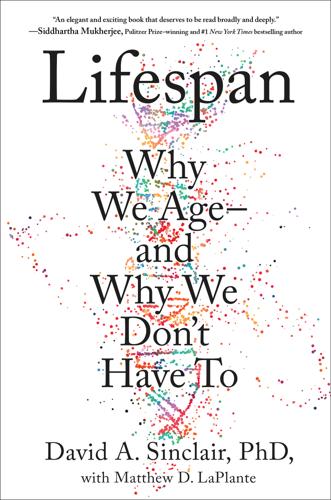
Lifespan: Why We Age—and Why We Don't Have To
by
David A. Sinclair
and
Matthew D. Laplante
Published 9 Sep 2019
Along with a vast coworking space, “there will be a juice bar, a real bar, a gym with a boxing studio, an outdoor basketball court and panoramic vistas of Manhattan. There will be restaurants and maybe even dry cleaning services and a barbershop.” D. Gelles, “The WeWork Manifesto: First, Office Space. Next, the World,” New York Times, February 17, 2018, https://www.nytimes.com/2018/02/17/business/the-wework-manifesto-first-office-space-next-the-world.html. 32. And let us not forget the water we expend on producing crops and meat that we never eat. 2013 estimates put the amount of water being used for food production by 2050 at 10 to 13 trillion cubic meters a year, which is 3.5 times as much as the amount of fresh water currently consumed by the planet’s population.
…
After a century of movement toward McMansions, the latter half of the 2010s saw a significant drop in the square footage of new homes and increasing demand for smaller apartments,30 continuing a centuries-long migration from farm-based rural living to smaller, shared urban spaces. As the global success of WeWork proves, today’s young adults are not only comfortable with much smaller working and living quarters, with shared community spaces such as offices, kitchens, gyms, laundries, and lounges, but increasingly are demanding them.31 The slow death of stuff is not the end of consumption, though. We’re as addicted as ever to wasting food, water, and energy.
…
Olick found that younger Americans “seem to be drawn to smaller, simpler living,” citing the tiny-house trend, one underpinned by technology equipping small spaces with “big amenities.” D. Olick, “Why Houses in America Are Getting Smaller,” CNBC, August 23, 2016, https://www.cnbc.com/2016/08/23/why-houses-in-america-are-getting-smaller.html. 31. A $20 billion New York start-up called WeWork focuses on offering shared working environments rich with immediately accessible amenities. The eight-year-old business, at the time of David Gelles’s New York Times business profile, had “built a network of 212 shared working spaces around the globe” and was in the process of putting up the fifteen-story Dock 72 on the East River.

Abolish Silicon Valley: How to Liberate Technology From Capitalism
by
Wendy Liu
Published 22 Mar 2020
It stems from the very raison d’être of the industry — that ventures need to seek a return, and so the profit motive is a valid driving force. Of course, defenders of the status quo may disagree that there’s something fundamentally broken about the current system. They may acknowledge the myriad failures, the Theranoses and Juiceros and WeWorks, the overvalued and overextended companies that may never be profitable — but they would argue that those are bound to happen in any system, rather than being an indictment of the system’s failings. They would insist that it’s still worth it in the end. But what are the successes that justify the copious amounts of capital dumped into this industry?
…
Take scooters, for instance: instead of five different tech companies littering them indiscriminately with minimal public oversight, imagine a system that’s municipally owned and free at the point of use.7 Similarly, rideshare apps could be part of local transit systems — publicly funded, positioned as an infrequent alternative to public transit, with well-compensated and unionised drivers. When it comes to community, instead of WeWorks everywhere, imagine better-funded public spaces like libraries or community centres, free from the strictures of commodity logic. And we should have more democratic control over the online platforms we spend so much time on, through user ownership, state ownership, stronger regulation, or decentralisation.
…
See, for example, “Lime, A Scooter Startup That Barely Existed Two Years Ago, Now Going To Be Worth $2 billion” by Theodore Schleifer for Vox, published January 15, 2019, at https://www.vox.com/2019/1/15/18184756/lime-scooter-fundraising-valuation-two-billion. 6 I’m mostly referring to the SoftBank Vision Fund, which has poured incredible amounts of money into companies like the gloriously overvalued (and still unprofitable) WeWork, but SoftBank is only the most egregious example of the trend. For an overview of SoftBank’s recent financial difficulties, see “SoftBank’s Blurry Vision” by Alexander Salmon for The American Prospect, published October 11, 2019 at https://prospect.org/power/softbanks-blurry-vision-fund-tech-ipos/. 7 Scott Kapor’s Secrets of Sand Hill Road (Portfolio, 2019) has a good breakdown of this, though an uncritical one. 8 The two American universities with the largest endowments are Harvard and Yale.
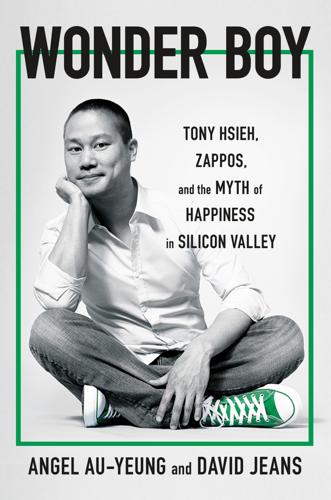
Wonder Boy: Tony Hsieh, Zappos, and the Myth of Happiness in Silicon Valley
by
Angel Au-Yeung
and
David Jeans
Published 25 Apr 2023
The dishes, meanwhile, were named after tech companies, like SoftBank Chicken Satay and Cisco Chinese Chicken Salad. More than a decade before Adam Neumann, the Israeli entrepreneur and marketing spin doctor who blurred the lines between work, play, and other parts of life with the ethos of the co-working venture WeWork and its residential arm WeLive, Tony fused those elements together at 1000 Van Ness, just as he had done at Harvard. Once they moved into the building, Tony and his friends owned 20 percent of its apartments—technically registered to a separate address, 151 Alice B. Toklas Place, because the complex was so large—and had 40 percent of the seats on the board of the building’s homeowners’ association.
…
Over three-day “camps,” executives from other companies would learn how Zappos managed HR, how to give their employees more impetus to focus on customer service, and how to achieve a “wow” factor. On the final day, attendees went to Zappos’s legendary quarterly all-hands meetings, led by musicians and rousing speeches—years before concert-style corporate gatherings were made famous by WeWork and its enigmatic CEO, Adam Neumann. To try to keep up with Tony’s cascade of ideas, Mark devised a system in which he wrote all of Tony’s suggestions on a whiteboard and asked Tony to rank them by urgency. But no matter how hard he tried, he could never remain as calm as Fred, who seemed to have an intuitive system for mentally sifting through Tony’s ideas and deciding whether it was possible to execute them.
…
“I realized that to Amazon, we were just a leading shoe company,” Tony wrote later. “That was why we told Jeff that we weren’t interested in selling at any price. I felt like we were just getting started.” In an era when the drab offices of the 1990s were standard, business attire was limited to crisp shirts and blazers, and co-working companies like WeWork had not yet ushered in the beautification of office spaces with plants, open-plan offices, and free coffee and beer, Zappos was different. As opposed to the top-down management that guided corporate giants of the previous century, Tony turned to egalitarianism to devise Zappos’s core values by sending a company-wide email asking employees to submit what they thought should guide the company and represent its culture.
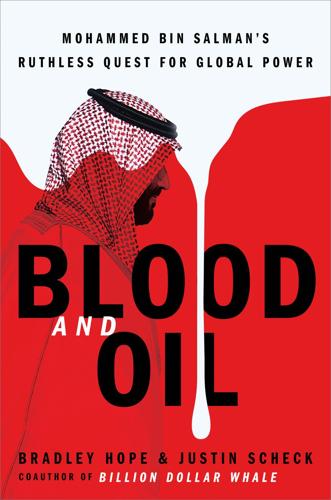
Blood and Oil: Mohammed Bin Salman's Ruthless Quest for Global Power
by
Bradley Hope
and
Justin Scheck
Published 14 Sep 2020
Each of the men Mohammed would meet in the United States had some vision for how he could use a huge Saudi investment and little to say about putting his own money into the kingdom. The studio chiefs hoped Mohammed would back new movie projects. Silicon Valley wanted capital to further inflate bubbles like WeWork and the dog-walking app Wag. Even the curious magazine that showed up across the United States celebrating the prince’s visit seemed to be a sales pitch. The magazine was in the tradition of low-brow royal worship that US newsstands hadn’t seen since the days of Princess Diana. Beneath the title The New Kingdom, Mohammed stared out in a red-checked shemagh and white thobe, smirking yet somehow still looking serious.
…
Undeterred, he ordered the IPO team to begin preparations for an international listing a year later—detractors be damned. Despite disappointing news about the $45 billion SoftBank investment, which inflated a bubble by pouring billions of dollars into nontech companies posing as innovators, including WeWork, dog-walking app Wag, and a construction company called Katerra, PIF chief Rumayyan was discussing putting more money into a new SoftBank fund. He was also working with a previously little-known figure in the kingdom, ex–reality TV producer DiBello, who seemed to appear in Saudi Arabia out of nowhere and was showing up at major events around Mohammed and other senior leaders.
…
SoftBank was trying to raise a second $100 billion fund, and he was hoping his loyalty to Mohammed through his ups and downs would pay off. Would Mohammed like to be the cornerstone investor again? He had the gall to ask even as the first Vision Fund was reeling from big mistakes, like a massive bet on WeWork, an office-rental company masquerading as a tech start-up that would have been in serious difficulties were it not for SoftBank’s doubling down on its initial bad bet, and the poor performance of many of the other investments in the fund. There weren’t many businessmen like Mohammed in the world, people with unbelievable access to money and the ability to decide in a second what to do with it.
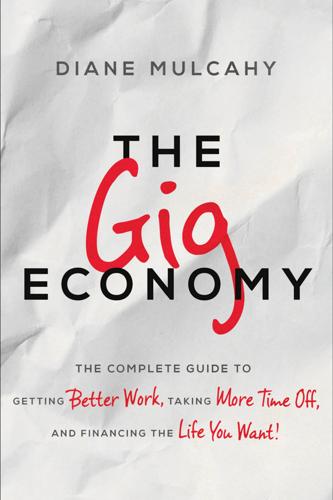
The Gig Economy: The Complete Guide to Getting Better Work, Taking More Time Off, and Financing the Life You Want
by
Diane Mulcahy
Published 8 Nov 2016
Returning ex-pats Elaine Kuok and David Roberts wrote about the year they spent living “home-free” in Airbnb apartments around New York City to explore a variety of neighborhoods.12 Their lifestyle offers them flexibility they couldn’t have if they were committed to a year-long lease or a multidecade mortgage. I contacted David on Twitter for an update, and, as of this writing, he and Elaine are enjoying a second year of their home-free lifestyle. The market for accessing housing is young but is continuing to grow. WeWork, the company that offers coworking space for rent in major cities here and abroad, just launched its first We-Live property in New York City, with month-to-month rentals of fully furnished and decorated apartments. As demand for accessing housing increases, we can expect to see even more options emerge.
…
life insurance Limited Liability Corporation (LLC) loss aversion Maker’s Schedule Manager’s Schedule marketing, for new jobs Marsh, Nigel Mastermind Dinners (Gaignard) material wealth, vs. personal fulfillment MBA students, planning by McDonald’s mental tasks, combining with physical Merchant, Nilofer MetLife, Study of the American Dream Microsoft middle class impact of home ownership middle managers Mihalic, Joe Mint.com Moment money, perspective on mortgage mortgage calculator National Labor Relations Act National Labor Relations Board (NLRB) negative cash flow net worth, in principal residence networks maintaining 99designs Obituary exercise offer in connecting 168 Hours (Vanderkam) opportunity, income security from opportunity mindset outbound connecting Outliers (Gladwell) overconfidence ownership, vs. access paid leave part-time side gigs passion, pursuing in time off passive income Peers.org pension plans personal branding personal burn rate personal fulfillment, vs. material wealth perspective, time off to change Pew Research Center physical tasks, combining with mental pilot tests planning for best-case scenario in financial flexibility for time off playtime portfolio of gigs building for experiments learning by doing opportunity for connections Postmates power, and expanding time predictors of future feelings priorities checkbook diagnostic exercise on extended family as of others, impact of private sector, job creation decline pro-bono legal adviser Proctor & Gamble Profiting from Uncertainty (Schoemaker) public assistance, eliminating public speaking purchases, time cost of Qapital QuickBooks quitting job, exit strategy for Rae, Amber rates of return, for housing Raw Deal (Hill) referrals, asking for regret, risk of Reich, Robert Reinventing You (Clark) rejuvenation, time off for relationships, impact on success renting growth in households vs. ownership reputation RescueTime resources, allocating to short-term activities vs. long-term goals resume, gaps for time off resume virtues retail workers retirement healthcare costs in new vision of plans to work longer before saving to finance traditional savings plans supplemental income in rewards, time for longer-term risk assessment of of boring life debt and of diploma debt facing fear by identifying size of risk reduction by acceptance by eliminating exercise for facing fear by assessing options with insurance by mitigating risk by shifting risk risk taker, learning to be Rohn, Jim Rolf, David Roth IRA Rowing the Atlantic (Savage) S Corporation S&P 500 companies, average life sabbaticals safety net, creating Sagmeister, Stefan Savage, Roz, Rowing the Atlantic saving for retirement traditional plan savings, financial plan and increase ScheduleOnce Schoemaker, Paul, Profiting from Uncertainty Schrager, Allison security creating from diversifying for income for job self-employment income tax form for risk assessment SEP IRA service workers Shared Security Account Shell, Richard Simmons, Gail skill-based economy, vs. credentials-based economy skill-based employment system, vs. tenure-based employment system skilled workers skills, income security from building Slaughter, Anne-Marie Snapchat social capital, of introducer social contagion social media Social Security Social Security Administration Society for Human Resources Management sole proprietor, independent worker as South by Southwest (SXSW) speaking inbound connecting through skills for specialization spending, auditing Stand Out (Clark) Star Plates start dates, negotiating startup exit strategy for Strayed, Cheryl Stride Health strong ties in network student loans success as contagious defining vision of external versions new American dream as definition refining vision of surrogation sweat equity bucket Target TaskRabbit tax data analysis Tax Policy Center taxes deductions for mortgage interest Schedule C withholding teaching technology for delegating outbound connecting by leveraging technology companies tenure-based employment system, vs. skill-based employment system time age-related difference in perception calculating use employees’ learned helplessness about expanding horizon for savings plan for longer-term rewards management mindfulness about and purchase cost reaction to wasting reclaiming tracking investments time frame, for goals time off benefits developing ideas for exercise financing friends and family reaction gaps in resume from between gigs, vs. paid time off planning for Toastmaster tolerance of risk Ton, Zeynep The Good Jobs Strategy Top Chef Topcoder total cost of home travel Twitter Uber drivers uncertainty, cognitive biases about unearned income unemployment insurance unemployment protection, for self-employed universal basic income (UBI) universality of benefits universities, faculty members Upwork Urban-Brookings Tax Policy Center vacation. see also time off Vanderkam, Laura, 168 Hours Vanguard, online calculator Virtues exercise volunteer positions during time off wage insurance Walmart Ware, Bronnie weak ties in network wealth gap WeWork withholding taxes Wolff, Edward work flexibility full-time job disappearance future of workers eliminating categorization of last resort workers’ compensation working lives, end of worst case, facing fear by starting with writing skills inbound connecting through Xero YouCanBook.me ABOUT THE AUTHOR Diane created and teaches The Gig Economy, which was named by Forbes as one of the Top 10 Most Innovative Business School Classes in the country.
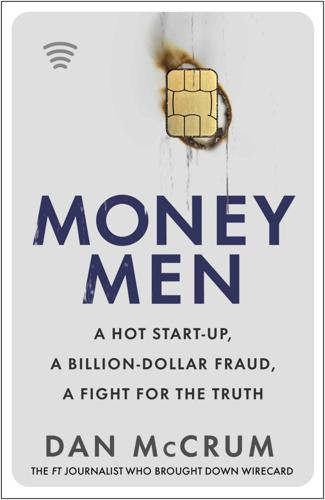
Money Men: A Hot Startup, a Billion Dollar Fraud, a Fight for the Truth
by
Dan McCrum
Published 15 Jun 2022
The sums available to start-ups had been transformed, along with the language. Private companies valued at a billion dollars or more were now ‘Unicorns’, and chasing these magical creatures was an industry. SoftBank, a Japanese conglomerate, announced the launch of a $100bn Vision Fund to throw at private companies like the taxi group Uber and the office space provider WeWork based on fantasies of world domination. In the stock market, Wirecard caught the eye. Its numbers were great, but more than that it was global, it was at the forefront of payments processing. In March it had announced a second deal with Citigroup designed to make Wirecard a household name across Asia.
…
That April, however, he had a much more important task: convincing some of the world’s most powerful investors that he didn’t want or need their money. He had been approached by SoftBank, the Japanese conglomerate whose €100bn Vision Fund had transformed technology investing mainly by raising the table stakes for everyone involved. It doled out billions to chosen companies like WeWork, encouraging them to use the money to smash the competition. A former Deutsche Bank trader called Akshay Naheta, now an investor at SoftBank, smelled an opportunity at Wirecard. His bet was that whatever the accounting issues, the stock was cheap. Backing from SoftBank would rehabilitate Wirecard’s reputation overnight.
…
‘Shan’ 134–5, 271–2 Singapore arrest 304 short sellers xi and Wirecard 31–4 Carson Block 36–7 surveillance 255–7 see also specific persons/stories Shubber, Kadhim 254–5 Sigma Trading 181 Silks, Murphy on 4–5 Silverman, Gary 20, 21, 36 Silverstein, Martin 178 Sino Forest 93 Sino Forest scam 36–7 Skripal, Sergei, GRU and 268 SmartE, O’Sullivan and 250 Smaul, Simon, and G2Pay xi, 39, 42–4 client loss 45–6 and Marsalek 49–50, 65–6 and miscoded 7995 transactions 42–4 and Sunsont nutraceutical processing 60–63, 65–6 and Third-Party Acquiring 200 leaves G2Pay 60 whistleblower 258–9 Smith, Herbert 246 SoftBank 249, 288 Vision Fund 145, 197–8 loan to Wirecard 197–200, 203, 205, 210, 236–9 Mubadala actual lender 238 Southern Investigative Reporting Foundation 146, 147n Steinhoff, Daniel, Project Tiger 155–8, 226 Stephens, Philip 257 Stoeckl, Iris 144 at London presentation 111 on shorters and Ashazi 72–3, 74, 77 Stolkin, Hugo 88 Stone, Brian, Al Alam meeting 277 Storbeck, Olaf 249, 297 Braun offers interview 259–60 Straub, Markus (SdK), on Wirecard accounts 32–4 Süddeutsche Zeitung 263 on Marsalek’s escape 300 Sun Tzu, The Art of War 65 Sundaram, Kritin 203 Sunday Business 53–4 Sunsont 60–63, 65–6 Sururi, Nasreen, on Wirecard/Ashazi 70, 73 surveillance dossier 257 Sweeting’s 53 Symtric (Al Alam) 277 Systems@Work 66 Taleb, Sina 118 and Marsalek 147, 148 TecDAX 25, 28 Telegram 81–2 Wirecard and 163 Tett, Gillian (FT), on hedge funds 36 ‘The Count’ 266 theatres, high-risk processing 43 Third-Party Acquiring 200–203 Timo (German lawyer) 142–3, 208 Tolentino, Mark 293, 304 Manila trustee meeting 272–5 protests innocence 300 Toronto University Citizen Lab 208 on Indian hacker gang BellTroX 298–9 Trautmann, Rüdiger xi, 45, 61, 63, 97, 98, 116 and Inatec 46 police take inbox archives 101–3, 104 Wirecard accounts concerns 27–8, 31, 44 Trump, Donald 163, 169, 199, 253, 268 GRU and 268 Turkish boxers 33–4 Uber 145 UBS, and Wirecard/Deutsche Bank proposal 231 UK, gambling-friendly jurisdiction 43 UK Insolvency Service, and Dowson shell companies 122 UK police refuse raid on Earl and Perring 141 Ukraine, GRU and 268 Unlawful Internet Gambling Enforcement Act 2006 (USA) 29 US college football betting 43 US FBI, on Wirecard critics hacking 208 US police, Wirecard money laundering probe 2015 101–3, 104 Valiant Capital 210 Vanranen, David 78 Viceroy Research 226, 305 Visa/Mastercard membership, XCOM bank 27 Visa and miscoded 7995 transactions 42 Project Tiger summary papers sent to 167–8 Wirecard crackdown 2009/10 48–9, 58 von Erffa, Stephan 251 arrested 303 KPMG report meeting 290 Wirecard deputy CFO 138 von Knoop, Alexander x, 174, 175, 230, 290, 291, 292, 295 Wagner, Denis 47 and Click2Pay 13–17 joins Wirecard sales team 9–11, 13 prepaid credit cards misgivings 18, 19 sacked 19 Wagner Group soldiers 268–9 Wall Street Journal 20, 238 WalPay, Isle of Man 102 Warburg 109 Weiss, Martin 279, 300 arrested 303 former Austria BVT head 280 on Russian Diplomat as former spy 280 Westcott, Mark 185 WeWork 145, 198 White, Alan, refuses to talk 245–6 Wickford Network 283–4 Willms, Jesse 47–9 Wirecard accounts, early years 25–34, 44–5, 65, 90–92, 110 and Allied Wallet 210–11 and Allscore Beijing 250 and Ashazi Services Bahrain 67–71, 72–7 Asian takeovers 67–71, 72–7 non-offices, investor confidence in 93–4 AsiaPacific deal with Citigroup 145–6, 152–3 BaFin ban on short selling 180 and Banc de Binary 211 Bauer-Schlichtegroll buys for porn billing 12–13 leaves/divests 30–31, 46 Bavarian police 2015 raid 101–3 and Bijlipay card reader 80–81 and Bitcoin 249–50 Boyd on 146–7 and CenturionBet 102n Chinese purported bid for 112 Christmas party 2009 49–50 and DAX 30 28, 236, 287, 288 DAX Index membership 156, 159–60 and Deutsche Bank 27 and Dowson 122 Einsteinring Park, move to 63–4 Enterprise Portal 41–2 Ernst & Young see Ernst & Young FT investigations/stories see Financial Times G2Pay payment processor see G2Pay German press support 110 Gibraltar office 31, 40, 77 Hempton on 56 Hermes i-Tickets smartshops 78–89 1A/Hermes deal 84–9 Hermes HQ shown to analysts 94 Ramasamy brothers falling-out 155 and high-risk processing 43–4, 47 ICC-Cal cash stolen 50–51 Ingenico, purported bid for 108, 117–18 and Irish dissolved companies 211 Jakarta offices, shown to analysts 94 KPMG investigation/aftermath draft report to supervisory board 286–90 no profit from European payment processing 286 Ebitda from purported partner commissions 286–7 investor base hopeful 289, 295 management spins on 283, 285 parliamentary inquiry 302–3 stock drops 291, 292, 295 Wirecard announces 1.9bn missing 295 see also Braun, Markus; KPMG; Marsalek, Jan Macquarie meeting on 139–40 management/finances cash in carrier bags 182 customers, high processing fees 284 delayed financial results 285 executive board meetings, no minutes 287 files for insolvency 296, 304 imaginary clients story 248–52 money always tight 258–9 see also Braun, Markus; Marsalek, Jan Merchant Cash Advances (MCAs) 236–7 and online gambling 14–17, 97 Pennsylvania office 226 people ix–xi Philippines office 57–8 rolling reserve deposits 45 SdK concerns and stock drop 31–4 Singapore office 49, 94, 133–5, 153–60, 174–5, 188–9, 301 finance team investigation 155–8 Gill on 161–3 police raid 176 Systems@Work 66 trustee accounts 271–2 whistleblowers 154–5, 156, 158, 161–3 and SoftBank 197–200, 203, 205, 210 SoftBank loan 236–9 Mubadala actual lender 238 on stock market 17 supervisory board and KPMG findings 287–90 and suspicious loans 288 gives KPMG one more week 289 meeting 232 supports Braun/Marsalek 289, 294–5 systems self-destruct 2016 103–4 in TecDAX 25, 28 and Telegram 163 Third-Party Acquiring, as cover story 258–9 McKinsey on 234, 235 internal audit and Third-Party Acquiring 201 nonexistent (KPMG) 291 trustee accounts 259, 271–2, 272–5 and UK shell companies 43–4 UK & Ireland office 245–6 US money laundering probe 2015 101–3, 104 Visa fines, freeze 58, 64 WireBank proposal 239 Wirecard Bank (formerly XCOM bank) 26–31 Schütt investigated 59 statement for ConePay 189–90 XCOM bank 26–8 Zatarra and, see Zatarra Wirtschaftswoche, on Al Alam 261 Wise Men (Perring’s) 98, 111 Withers Hong Kong lawyers, Al Alam meeting 276–7 Wright, Craig 223 XCOM bank, Wirecard buys 26–8 Yasmineh, David, Al Alam meeting 276–7 Zatarra Report 2016 104, 105–13, 144, 177, 183, 184, 185–6, 214, 236, 257, 303 accusatory faked email from 117 BaFin on market manipulation 109 demand to name people in 124–6 Earl and Perring face prosecution 141–3 fourth man 110–11 harassment by Wirecard agents 124–32 Kroll to investigate 117–19 Marsalek’s security to investigate 116–19 outed on Twitter 127 weaknesses 109–12 website attacked 109 Zatarra Research and Investigations 100 THIS IS JUST THE BEGINNING Find us online and join the conversation Follow us on Twitter twitter.com/penguinukbooks Like us on Facebook facebook.com/penguinbooks Share the love on Instagram instagram.com/penguinukbooks Watch our authors on YouTube youtube.com/penguinbooks Pin Penguin books to your Pinterest pinterest.com/penguinukbooks Listen to audiobook clips at soundcloud.com/penguin-books Find out more about the author and discover your next read at penguin.co.uk TRANSWORLD UK | USA | Canada | Ireland | Australia India | New Zealand | South Africa Transworld is part of the Penguin Random House group of companies whose addresses can be found at global.penguinrandomhouse.com.
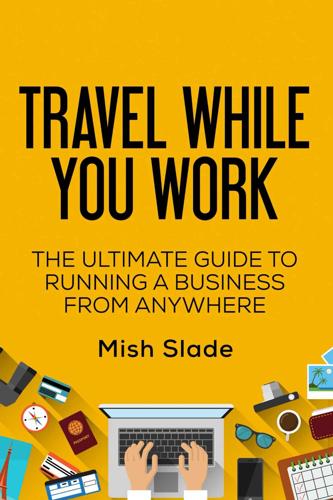
Travel While You Work: The Ultimate Guide to Running a Business From Anywhere
by
Mish Slade
Published 13 Aug 2015
There are many remote job boards out there where you can post, such as: Remotive (www.worktravel.co/remotive): full-time remote jobs. Remote OK (www.worktravel.co/remoteok): full-time, one-off, part-time, etc. jobs. WFH.io (www.worktravel.co/wfh) remote jobs solely in the technology space. We Work Remotely (www.worktravel.co/wework): has a few more non-technie jobs compared to the others. Most of the jobs are full-time, permanent roles. Authentic Jobs (www.worktravel.co/authentic): doesn't just list remote jobs, but there's a handy filter for people looking for them. Has a wide range of freelance, contract, full-time and part-time jobs available.
…
: www.worktravel.co/quora2 Stay focused and filter out distractions Unroll Me (unsubscribe from emails): www.worktravel.co/unroll Gmail "plus sign" trick: www.worktravel.co/plustrick Trello: www.worktravel.co/trello Pomodoro Technique: www.worktravel.co/pomodoro Pomodoto (Pomodoro timer): www.worktravel.co/pomodoto You Can Book Me (appointment-booking software): www.worktravel.co/bookme iDoneThis (track what you've achieved): www.worktravel.co/donethis AskMeEvery (track what you've achieved): www.worktravel.co/askme Kransen headphones: www.worktravel.co/kransen ShareDesk (coworking spaces): www.worktravel.co/sharedesk Coffitivity (concentration app): www.worktravel.co/coffitivity Focus@Will (concentration app): www.worktravel.co/focus Optimise your workspace Roost laptop stand: www.worktravel.co/roost Portable keyboards: www.worktravel.co/keyboard Mini-mouse: www.worktravel.co/mouse ZestDesk (standing desk): www.worktravel.co/zestdesk StandStand (standing desk): www.worktravel.co/standstand Kinivo ZX100 laptop speakers: www.worktravel.co/zx100 Deal with wifi issues Wifi speed test: www.worktravel.co/speedtest Huawei E5330 mobile hotspot: www.worktravel.co/hotspot Didlogic (cheap international calls without internet): www.worktravel.co/didlogic Skype To Go: www.worktravel.co/skypetogo Google Docs Offline: www.worktravel.co/docsoffline CHAPTER 5: FREELANCE FROM ANYWHERE Emailing Boomerang (to delay when an email gets sent): www.worktravel.co/boomerang Scheduling World Time Buddy: www.worktravel.co/worldtimebuddy Doodle: www.worktravel.co/doodle Mixmax: www.worktravel.co/mixmax You Can Book Me: www.worktravel.co/bookme Phone/video calls Buy a Skype Number: www.worktravel.co/skypenumber Zoom (alternative to Skype): www.worktravel.co/zoom GoToMeeting (alternative to Skype): www.worktravel.co/gotomeeting Join Me (alternative to Skype): www.worktravel.co/joinme Didlogic (cheap international calls without internet): www.worktravel.co/didlogic Skype To Go: www.worktravel.co/skypetogo Screen sharing Screenleap: www.worktravel.co/screenleap Document signing HelloSign: www.worktravel.co/hellosign EchoSign: www.worktravel.co/echosign Getting paid PayPal: www.worktravel.co/paypal Stripe: www.worktravel.co/stripe Freshbooks (for information about PayPal Business Payments): www.worktravel.co/freshbooks Harvest (for information about PayPal Business Payments): www.worktravel.co/harvest TransferWise (cross-currency payments): www.worktravel.co/transferwise CHAPTER 6: HIRE LIKE A CHAMP Hire remote contractors Upwork (formerly Elance/oDesk): www.worktravel.co/upwork Guru: www.worktravel.co/guru Freelancer: www.worktravel.co/freelancer Gigster: www.worktravel.co/gigster 99 Designs: www.worktravel.co/99designs Crowdspring: www.worktravel.co/crowdspring Fancy Hands: www.worktravel.co/fancyhands Information about "milestones": www.worktravel.co/milestones Screencast-o-matic (record screencasts): www.worktravel.co/screencast Hire permanent employees Working Mums (UK): www.worktravel.co/workingmums Hire My Mom (US): www.worktravel.co/hiremymom Remotive: www.worktravel.co/remotive Remote OK: www.worktravel.co/remoteok WFH.io: www.worktravel.co/wfh We Work Remotely: www.worktravel.co/wework Authentic Jobs: www.worktravel.co/authentic Upwork: www.worktravel.co/upwork Information about KPIs: www.worktravel.co/kpi Topgrading (hiring tips and resources): www.worktravel.co/topgrading Buffer's 45-day contract period: www.worktravel.co/bootcamp CHAPTER 7: RUN THE BEST BIZ Team chat software Slack: www.worktravel.co/slack HipChat: www.worktravel.co/hipchat Structured meetings and ad-hoc calls Mastering The Rockefeller Habits (book): www.worktravel.co/rockefeller World Time Buddy: www.worktravel.co/worldtimebuddy Google Calendar: www.worktravel.co/calendar Zoom (alternative to Skype): www.worktravel.co/zoom Appear.in (alternative to Skype): www.worktravel.co/appear Screen sharing Screenleap: www.worktravel.co/screenleap Giving tutorials and training Screencast-o-matic: www.worktravel.co/screencast ScreenFlow (Mac): www.worktravel.co/screenflow Camtasia (Windows): www.worktravel.co/camtasia Procedures Google Drive: www.worktravel.co/drive Process Street: www.worktravel.co/process Project management Trello: www.worktravel.co/trello Basecamp: www.worktravel.co/basecamp Asana: www.worktravel.co/asana Teamwork: www.worktravel.co/teamwork Wikipedia's "Comparison of project management software" page: www.worktravel.co/pmtools Cloud storage Dropbox: www.worktravel.co/dropbox OneDrive: www.worktravel.co/onedrive Google Drive: www.worktravel.co/drive Information on Google Drive "offline mode": www.worktravel.co/docsoffline Box: www.worktravel.co/box Amazon Cloud Drive: www.worktravel.co/acd Other useful tools and resources LastPass (password management): www.worktravel.co/lastpass HelloSign (document signing): www.worktravel.co/hellosign EchoSign (document signing): www.worktravel.co/echosign Sqwiggle (video team chat): www.worktravel.co/sqwiggle Zapier (task automation): www.worktravel.co/zapier IFTTT (task automation): www.worktravel.co/ifttt Also by the author… Protect Your Tech: Your geek-free guide to a secure and private digital life If your password for every website is "monkey" or "iloveyou"… you need to read this book.
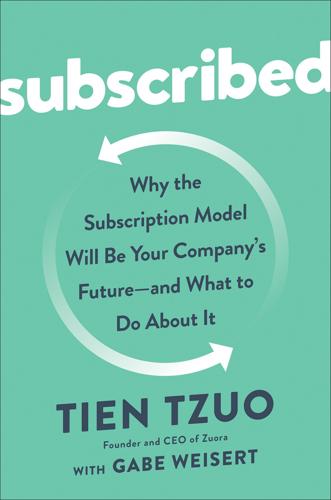
Subscribed: Why the Subscription Model Will Be Your Company's Future - and What to Do About It
by
Tien Tzuo
and
Gabe Weisert
Published 4 Jun 2018
They want to have more flexibility, more choices, and the ability to mix up their environments when they feel like it. In our office at Zuora, we give everyone a desk, but lots of people can’t stand them. They’re much more comfortable taking their laptops to a sofa in a lounge space, putting on their earphones, and cranking away. Companies like WeWork and Servcorp have figured out that they can make more money per square foot catering to these new preferences. Companies aren’t as interested in onerous long-term property leases anymore—they want the flexibility to expand or decrease their footprint as they see fit. More and more of the physical world is becoming unlocked.
…
See subscription video on demand (SVOD) Symantec, 90 Symmons Industries, 112 Target, 34 Tarkett, 112 Technology-as-a-Service Playbook: How to Grow a Profitable Subscription Business (Lah and Wood), 85–86 technology industry, 80–96 fish model and, 85–86 growth in, since Great Recession, 96 hardware companies, 93–96 software as a service (SaaS) model, 5–6, 80–93 2001 crash and, 82–83 2008 crash and, 83–84 TechValidate, 171 Ten Commandments, The (film), 38 Terry-Lloyd, Richard, 158 Tesla, 34 Thompson, Ben, 66, 94, 184 Thompson, Mark, 78 Three Rooms mental model of storytelling and, 149–51 Thync, 107 Times Warner, 46 total quality initiative, 16 Tower Records, 17 Trunk Club, 23, 28, 33 Trupanion, 118 Tunguz, Tomasz, 82 Twitch, 42 Uber, 3, 13–14, 53, 54–55 Udemy, 117 Ulrich, Lars, 39 UNTUCKit, 23 upselling, 164–67 usage-based billing, 221–27 user data, 139–40 utilities, 119 value metric, 221 value of customers, increasing, 164–67 VandeHei, Jim, 68 Vanity Fair, 65 Veghte, Bill, 171 Venmo, 121 Vice, 67 Virgin Megastore, 17 virtuous feedback loop, 48–49, 136–37 Volvo, 52 Vox, 71 VRBO, 120 Wadhwani, David, 81, 88 Walgreens, 34 Wall Street Journal, The, 65 Walmart, 25–26 Warby Parker, 23, 33, 145 Wealthfront, 121 West, Kanye, 48, 136–37 Westfield World Trade Center mall, 35 WeWork, 120 Whim app, 63 Whirlpool, 107 Whole Foods, 23 Wizard of Oz, The (film), 37 Wolf, Michael J., 24, 76, 78 Wood, J. B., 85–86, 96 Wufoo, 171 Xero, 3 Xerox, 12 Yellin, Todd, 140 Yoshida, Naoki, 127 Zendesk, 3 Zillow, 120 Zimmer, John, 55 Zipcar, 3, 53–54 Zou, Cheng, 5–6 Zuora, 3, 6, 42, 63, 120, 149, 150, 160, 161, 201 ABCDEFGHIJKLMNOPQRSTUVWXYZ About the Author Tien Tzuo is the CEO and cofounder of Zuora, the leading subscription SaaS provider, with more than 1,000 customers worldwide.
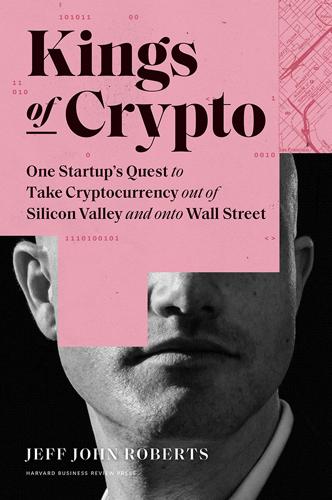
Kings of Crypto: One Startup's Quest to Take Cryptocurrency Out of Silicon Valley and Onto Wall Street
by
Jeff John Roberts
Published 15 Dec 2020
The company’s finances were in good shape thanks to a series E funding round worth $300 million and backed by the hedge fund Tiger Global. This cash infusion topped off a war chest the company had built up during the boom. Unlike other high-profile startups like Uber and WeWork, which were bleeding billions every quarter, Coinbase could actually turn a profit. Meanwhile, Coinbase lacked the hyper-bro culture that contributed to the implosion of other startups, including WeWork, whose plans for an IPO blew up spectacularly amid reports of its CEO’s penchant for tequila shots and smoking weed. What’s more, crypto winter offered Coinbase a desperately needed respite. If 2017 had been a wildly successful party, then 2018 would be a year to clean up all the broken glass and replace the smashed furniture.
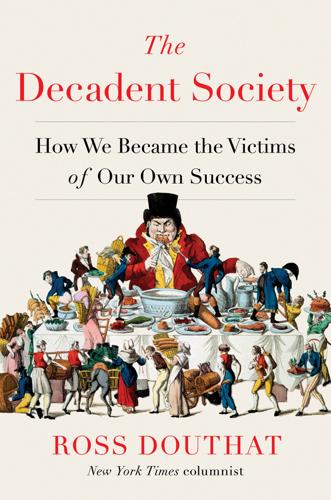
The Decadent Society: How We Became the Victims of Our Own Success
by
Ross Douthat
Published 25 Feb 2020
So it sits there, widely regarded as one of the defining success stories of the Internet era, a unicorn unlike any other, with billions in losses and a plan to become profitable that involves vague promises to somehow monetize all its user data and a specific promise that its investment in a different new technology—the self-driving car, much ballyhooed but as yet not exactly real—will square the circle and make the math add up. That’s the story of Uber—so far. It isn’t a pure Instagram fantasy like the Fyre Festival or a naked fraud like Theranos; it managed to go public and maintain its outsize valuation, unlike its fellow money-losing unicorn WeWork, whose recent attempt at an IPO hurled it into crisis. But like them, it is, for now, an example of a major twenty-first-century company invented entirely out of surplus, less economically efficient so far than the rivals it is supposed to leapfrog, sustained by investors who believe its promises in defiance of the existing evidence, floated by the hope that with enough money and market share, you can will a profitable company into existence, and goldwashed by an “Internet company” identity that obscures the weakness of its real-world fundamentals.
…
News & World Report, 98 utopianism, 210–13 Vanity Fair, 91–93 Varoufakis, Yanis, 219 Vendée, the, martyrs of, 206–7 Venezuela, 33 venture capital, 19 video games, 88 see also virtual entertainments Vietnam War, 70, 90 Villeneuve, Denis, 94 “Violent Passion Surrogate,” 128, 130, 132, 135 virtual entertainments, 122–26, 128–29, 149 and decline in risky social behaviors, 122–23, 148 in Japan, 88, 125 pornography and, 125 sex and, 128 violence in, 122 worktime participation and, 124 virtual realities, 236 Virtue of Nationalism, The (Hazony), 218 virtuous communities, 215–17 Vollrath, Dietrich, 182 wages: black-white gap in, 99 gender gap in, 99 “Waiting for the Barbarians” (Cavafy), 157–58 Walgreens, 19 Wallace-Wells, David, 195–96 Wall Street, government symbiosis with, 69 warfare, surgical precision in, 150, 151 Waugh, Evelyn, 183 Weglarz, Geoffrey, 137–38, 148 welfare programs, 34 welfare state, 76 birthrates and, 51, 52 West: cultural synthesis of postcolonial world and, 208–9 decadence of, 10 Western frontier, 3–5 WeWork, 21 White, E. B., 109 white supremacists, 153 Why Liberalism Failed (Deneen), 215–17 “Why Women Still Can’t Have It All” (Slaughter), 97 Wikipedia, 106 Wilder, Gary, 208 Wild Wild Country (documentary), 101–2 Wills, Garry, 110 Winemiller, Roger, 62 Wire, The (TV show), 95 Wired, 211 Wolfe, Tom, 96–97, 109–10 women, in workforce, 24 workers, as less likely than before to change jobs, 27 workforce participation: decline in, 23 virtual entertainments and, 124 women and, 24 World Trade Organization, China’s entry into, 29 World War II, 109, 183 Wright, Robin, 134 Wrinkle in Time, A (L’Engle), 240 Xi Jinping, 114, 167 Yemen, 199 Yiannopoulos, Milo, 143 Young, Michael, 170–71, 172 YouTube, 194 AVID READER PRESS An Imprint of Simon & Schuster, Inc. 1230 Avenue of the Americas New York, NY 10020 www.SimonandSchuster.com Copyright © 2020 by Ross Douthat All rights reserved, including the right to reproduce this book or portions thereof in any form whatsoever.
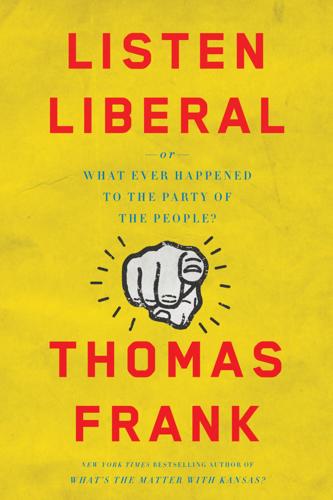
Listen, Liberal: Or, What Ever Happened to the Party of the People?
by
Thomas Frank
Published 15 Mar 2016
The wi-fi was free; the screens hung here and there displayed still more famous quotations about inventiveness; and of course the walls were writable; but otherwise it was not much different from an ordinary public library. Aside from not having anything to read, that is. This was my introduction to the innovation infrastructure of the city, much of it built up by entrepreneurs shrewdly angling to grab a piece of the entrepreneur craze. There are “co-working” spaces like “Workbar” and “WeWork,” shared offices for startups that can’t afford the real thing. There are startup “incubators” and startup “accelerators,” which aim to ease the innovator’s eternal struggle with an uncaring public: the Startup Institute, for example, and the famous MassChallenge, the “World’s Largest Startup Accelerator,” which runs an annual competition for new companies and hands out prizes at the end.
…
See also banks; financial crisis of 2008; stock market bailouts and Bill Clinton and blue states and compensation Democrats and deregulation and Dodd-Frank and financialization and fraud and Hillary Clinton and Obama and Social Security and Wall Street Journal Wal-Mart Wap, Fetty Warburg Pincus firm Warren, Elizabeth Washington Monthly Washington Post Watergate scandal Weisberg, Jacob Welfare Reform Act (1996) Wellesley College Wells Fargo WeWork White, Theodore White Collar (Mills) White House Conference on the New Economy (2000) White House Counsel White House Travel Office Whitewater scandal Who Owns the Future? (Lanier) Why doesn’t Microfinance Work? (Bateman) Wolfe, Tom Woman in Charge, A (Bernstein) Woodward, Bob Work of Nations, The (Reich) Works Progress Administration (WPA) WorldCom-MCI merger World War II Yale University Law Journal Yergin, Daniel YouTube Yunus, Muhammad yuppies Zuckerberg, Mark ACKNOWLEDGMENTS This book owes a tremendous debt to my two researchers, Alex Kelly and Zachary Davis, who did so much capable work on so many different subjects.
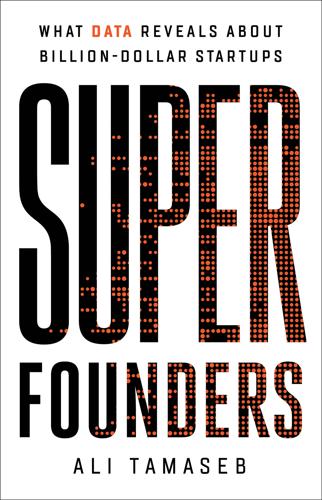
Super Founders: What Data Reveals About Billion-Dollar Startups
by
Ali Tamaseb
Published 14 Sep 2021
Tunguz’s analysis demonstrated that the ROIC initially increased for SaaS companies—but has been on a decline since 2014 (see the graph “Return on Invested Capital over the Years”). Even SaaS startups differ widely in terms of capital efficiency. Companies below the diagonal line were more capital efficient. Source: Shin Kim, “Most Tech Companies Aren’t WeWork,” TechCrunch, January 24, 2020, https://techcrunch.com/2020/01/24/most-tech-companies-arent-wework/. Capital efficiency for software companies has been in decline. Source: Tomasz Tunguz, “Do SaaS Startups Still Require Less Capital than 10 Years Ago?” (first graph), TomTunguz.com, April 2, 2019, https://tomtunguz.com/capital-efficiency-five-years-later/.
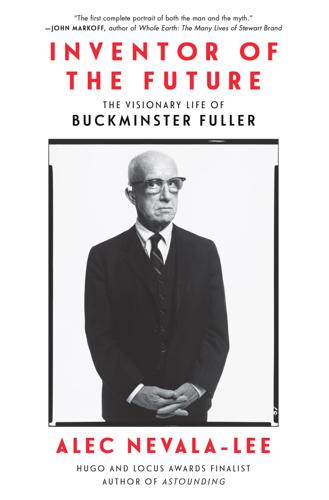
Inventor of the Future: The Visionary Life of Buckminster Fuller
by
Alec Nevala-Lee
Published 1 Aug 2022
“We want to be known”: Katrina Brooker, “WeFail,” Fast Company online, last modified November 15, 2019, https://www.fastcompany.com/90426446/wefail-how-the-doomed-masa-son-adam-neumann-relationship-set-wework-on-the-road-to-disaster. “future cities initiative”: Niall Patrick Walsh, “The We Company Launches Future Cities Initiative with Studio Dror,” ArchDaily, March 22, 2019, https://www.archdaily.com/913746/the-we-company-launches-future-cities-initiative-with-studio-dror (accessed January 2021). “The universe does not allow waste”: Reeves Wiedeman, Billion Dollar Loser: The Epic Rise and Spectacular Fall of Adam Neumann and WeWork (New York: Little, Brown, 2020), 136. “maybe in the way”: Lanier, author interview, March 12, 2019.
…
When a restaurant in San Francisco installed domes to allow patrons to dine outdoors during the pandemic without being troubled by the homeless, the food critic Soleil Ho observed, “We’re talking about domes because this country doesn’t take care of us.” Not surprisingly, Fuller’s example found its most lasting home in Silicon Valley. Adam Neumann, the founder of WeWork, pitched his coworking start-up using the language of ephemeralization: “We want to be known for being a company that does more with less.” It held staff meditation sessions in a dome and announced a “future cities initiative” by the Israeli designer and artist Dror Benshetrit, who consulted on redeveloping the Montreal Biosphere, but a fumbled public offering resulted in the ouster of Neumann, who had warned his employees, “The universe does not allow waste.”
…
New Haven, CT: Yale University Press, 1995. Whitehead, Alfred North. Science and the Modern World. Cambridge: Cambridge University Press, 1929. Wiebé, Edward. The Paradise of Childhood. Springfield, MA: Milton Bradley, 1869. Wiedeman, Reeves. Billion Dollar Loser: The Epic Rise and Spectacular Fall of Adam Neumann and WeWork. New York: Little, Brown, 2020. Wigley, Mark. Buckminster Fuller Inc.: Architecture in the Age of Radio. Zurich: Lars Müller, 2015. Williams, Jonathan. A Palpable Elysium. New York: Dim Gray Bar, 1997. Wolf, Amy. On Becoming an Artist: Isamu Noguchi and His Contemporaries, 1922–1960. Long Island City, NY: Isamu Noguchi Foundation and Garden Museum, 2010.
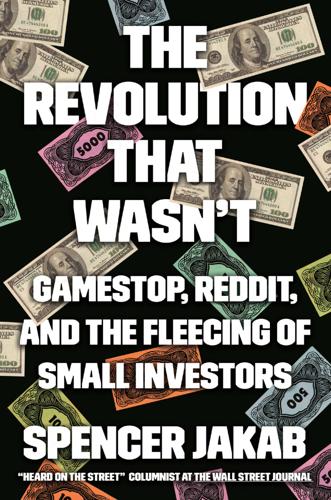
The Revolution That Wasn't: GameStop, Reddit, and the Fleecing of Small Investors
by
Spencer Jakab
Published 1 Feb 2022
At the same time, short sellers like Jim Chanos, who were watching stocks like Tesla rally on what looked like pure hype, had borrowed shares to sell them short. The sudden surge forced some of them to buy shares as well, to limit their own losses, exacerbating the upward pressure on stock prices. SoftBank needed a big score at the time because it had just lost $9 billion in the fiscal year that had ended in March. Its stake in the office company WeWork, which had been headed for an initial public offering in 2019 worth an estimated $47 billion, had crumbled by around 90 percent as of September 2020 after its eccentric founder, Adam Neumann, departed under a cloud. And the value of SoftBank’s stake in the ride-hailing app Uber, which already was on the market, sank as a result of the pandemic.
…
F., 31 Slate, 175 smartphone apps, 26 smartphone trading apps, x, xi, 1, 21–25, 36, 41, 53, 87, 102, 208, 236, 247, 251, 257–58 Doji, 47 social media and, 36 see also Robinhood Smith, Ben, 19 Snoop Dogg, 24 Social Capital, 152 Social Identity and Morality Lab, 20 Social Leverage, 24 social media, x, 1, 4, 6, 11, 12, 18–20, 21–25, 41, 57, 107, 135, 137, 141, 154–56, 159, 162, 163, 167, 176, 179–80, 182, 188, 189, 193, 194, 195, 199, 200, 243, 247, 253 advertisers and, 202 bots on, 163–66 Facebook, 37–38, 98, 162, 166, 202 harassment on, 39, 122, 125 peers and, 35–36, 142–44 Reddit, see Reddit smartphone trading apps and, 36 TikTok, 18, 37, 107, 131, 162–63 Twitter, see Twitter YouTube, see YouTube Social Network, The, 38 social proof, 142–44 social reality, 36 SoFi, 27, 56, 57, 158 SoftBank Corp., 105–7, 109 Sohn Investment Conference, 111, 253 Solomon, David, 220 Son, Masayoshi, 105, 106 Sony, 93 Soros, George, 183 SPACs (special purpose acquisition companies; blank check firms), 64–65, 155, 158, 164, 178, 194, 246, 247 sports betting, 26, 30–31, 57 sports team ownership, 8, 111, 158, 246 Stanford University, 25 Center on Longevity, 71 Stein, Jon, 193, 242, 261 Stern School of Business, 82 S3 Partners, 76, 81, 130, 133, 170, 217 stimulus checks, 56, 62, 71, 72, 255 Stocklemon, 118 stock market crash of 1929, 42, 150, 233 stock market crash of 1987, 10, 70 stock market prices and valuation, 173, 178–81, 185 Stocktwits, 24, 176 stonks, 173, 175–78, 181, 185, 209 Stratton Oakmont, Inc., 118 student loans, xi, 62 Summer, Donna, 9 Sundheim, Daniel, 8 Super Bowl, 19 Super Bowl ads Reddit, 12 Robinhood, 28, 30, 200 Supreme Court, 26 Survey of Consumer Finances, 252 Swedroe, Larry, 62, 66, 238, 247 Szymczak, Kayana, 171–72 T Tabb, Larry, 33–34 Taleb, Nassim Nicholas, 5 taxes, 66–67 TD Ameritrade, 25, 51, 139, 188 technologies, 155 defense of, 40–41 tech stocks, 59, 76, 84, 92, 104–5 Tenev, Vladimir, 30, 49, 67, 89, 161, 183, 187, 194, 197, 200, 201, 204–6, 210, 219, 234, 240 at congressional hearing, 3–6, 11, 14, 32, 40, 65, 206 Robinhood cofounded by, 3, 23–25, 90 Tesla, Nikola, 64 Tesla Motors, 15, 50, 52, 64, 81–82, 91, 92, 98, 103, 105–7, 120, 124, 149, 152, 164, 259 Thaler, Richard, 31 TheStreet, 128 3Com, 84 TikTok, 18, 37, 107, 131, 162–63 Tillinghast, Joel, 221–22 Tinder, 24, 122 Tongji Medical, 60, 161–62 TopStonks.com, 94 trading apps, see smartphone trading apps trading commissions, see commissions “Trading Is Hazardous to Your Wealth” (Barber and Odean), 235 Trading Places, xiv, xv “trading sardines” parable, 184–85 Treasury notes, 58 Trump, Donald, 13, 70 Trump, Donald, Jr., 197 Trust Index, 143 Twitter, 11, 19, 24, 37, 39, 57, 88, 135, 152–54, 157–58, 161–63, 166, 172, 177, 187, 202 Gill’s Forrest Gump post on, 212 Musk’s use of, x, 60, 82, 83, 124, 144, 152–54, 161, 170 SEC and, 167–68 two-day period to settle trades, 204 U Uber, 105 unemployment, 71, 151 Ursus, 85 utilitarian products, 51 V Valeant Pharmaceuticals, 116–17, 120, 125 Van Bavel, Jay, 20, 36 VandaTrack, 139 VanEck, 158–59 Vanguard Group, 8, 32, 254, 257, 259 venture capitalists, 24 Vergara, Salvador, 172–73 Verlaine, Julia-Ambra, 171 Versailles, 9 Virtu Financial, 49, 55, 178, 202, 207, 218 Vision Fund, 105 Volcker Rule, 42 Volkswagen, 77–78, 81 Vrabeck, Kathy, 114, 223 W WallStreetBets, ix–x, xii, xiv, 2, 4, 8, 11, 14, 15, 16, 19, 22–23, 36, 38–40, 43–47, 55, 57, 67, 69, 75–77, 88, 92–95, 97–99, 107, 111, 113, 115, 120, 122, 127–32, 135, 138, 145, 147–49, 152, 157, 159–61, 170–72, 181–82, 188, 190, 192, 193, 205, 213, 216–17, 220–22, 227, 229–31, 238, 243, 255, 259 AMC and, 225–26 “apes together strong” and, 135–36 bots on, 163–66 BTFD on, 69 DeepFuckingValue on, see Gill, Keith as hedge fund, 139 Jeffamazon on, 107–9 Kronos_415 on, 103, 107 Left and, 121–23, 126, 129, 130, 133, 136, 238 membership demographics of, 57 MoonYachts on, 97–98 number of members of, xi, 46, 136–38, 190, 199, 213, 229 Player896 on, 93, 109 proof of trade on, 47 racial slurs on, 190 Robinhood and, 22–23 Senior_Hedgehog on, 72, 73, 76, 79, 92 sharing of losses on, 144 Stonksflyingup on, 95, 109 taken off-line, 190 WeLikeTheStock and, 126, 242 see also GameStop, GameStop short squeeze Wall Street Journal, ix, 30, 50, 52, 61, 84, 118, 128–29, 132, 136, 152, 171, 179, 180, 210, 211, 223, 250, 253 Wall Street Week, 156 Walmart, 26 Wanda, Dalian, 225 Wang Jianlin, 225 warrants, 101 Washington Post, The, 161 Waters, Maxine, 3, 13, 64–65, 76 Wealthfront, 27, 257 wealthiest Americans, 234 wealth inequality, xi, 14, 71–72, 160, 182 Webull, 178, 200 Weissmann, Jordan, 175–76 WeLikeTheStock, 126, 242 West, Jack, 172 Western Digital, 46 WeWork, 105 When Genius Failed (Lowenstein), 260 Where Are the Customers’ Yachts? or A Good Hard Look at Wall Street (Schwed), 233–34 wholesalers, 33–35, 49, 104, 106, 203, 208–9 Whyte, Keith S., 31, 55 Williams, Serena, 64 Wirecard, 85 Wisdom Homes of America Inc., 167 Wolf, Kurt, 222–23 Wolfie Has Fallen (Comeau), 47 Wooten, Jadrian, 19 WorldCom, 42 World Wide Robin Hood Society, 197 Y Yahoo, x, 163 Yellen, Janet, 10, 231 YOLO traders, 16, 23, 33, 42, 200, 201, 231, 237, 249, 261 YouTube, 2, 18, 37, 92, 131, 162, 166, 214 Gill’s videos on, as Roaring Kitty, 2, 18, 45, 48–49, 92, 130, 133, 144, 171, 174–75, 191, 211, 213 Z Zappos, 89–90 zero commissions, 47, 48–51, 54, 59, 70, 101, 102, 139, 166, 218, 241, 247, 259 zero interest rates, 58, 72 zero-price effect, 51 Zuckerberg, Mark, 37–38 Zuckerman, Gregory, 237 Zulu Dawn, xiv, xv Zweig, Jason, 179, 181 A B C D E F G H I J K L M N O P Q R S T U V W X Y Z About the Author Spencer Jakab is an award-winning financial journalist and a former top-rated stock analyst at Credit Suisse.
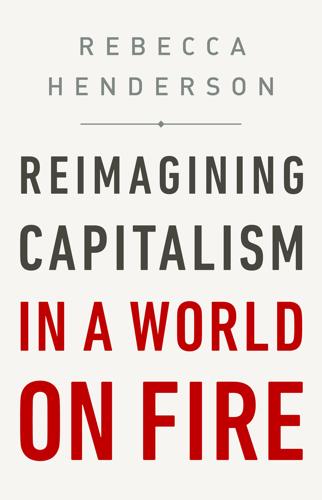
Reimagining Capitalism in a World on Fire
by
Rebecca Henderson
Published 27 Apr 2020
It took the dot-com bubble of 1994 to 2000, and the success of Facebook and Google to persuade mainstream investors of the power of platforms. But most now have a deep appreciation for the ways in which investing to build a large, sticky customer base committed to your platform can lead to massive profits. Indeed one of the causes of the recent failure of WeWork’s IPO was the fact that most investors could see that while the firm touted itself as a platform play, it was not at all clear this was the case. Viewed from this perspective, to the degree that there is genuinely money to be made in creating shared value and in building purpose-driven firms, investors’ reluctance to invest in purpose cannot be only a function of their inherent short-termism.
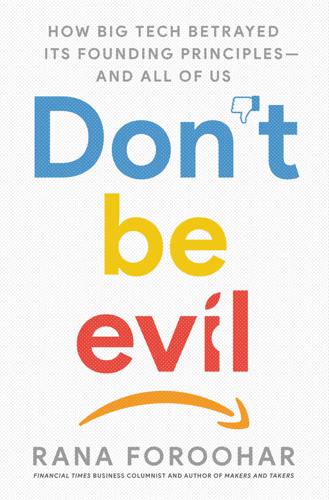
Don't Be Evil: How Big Tech Betrayed Its Founding Principles--And All of US
by
Rana Foroohar
Published 5 Nov 2019
I’m thinking in particular of Elon Musk’s SpaceX, but also Peter Thiel’s Palantir, which has been scaling back its thirteen-course lobster tail and sashimi lunches in anticipation of its public offering (probably a good idea, given that the company has yet to turn a profit in its fourteen-year history, despite having a valuation of $20 billion).22 Today’s darlings can so easily become tomorrow’s discards; as I finish this book, SoftBank, the bloated Japanese tech investment firm, has just scrapped its $16 billion plan to buy a stake in WeWork. Valley veterans smell the froth. “In some ways, Jawbone reminds me of Palm [the former personal digital assistant maker], in the sense that there was a real market there,” says investor Tim O’Reilly, the chief executive of O’Reilly Media and author of WTF? What’s the Future and Why It’s Up to Us, a book about the role of Silicon Valley in our bifurcated economy.
…
Those same technologies reduce operational costs to pretty close to zero, given that the price of a virtual assistant based in India is negligible for this new cadre of high-end freelance worker, and the fact that he or she can work from home, or cheaply rent work spaces via membership schemes in companies like WeWork. The digital gig economy, it turns out, is no less bifurcated than the analog one. This is concerning, given that a spate of new research by various organizations, from McKinsey to the Organization for Economic Co-operation and Development, points to the fact that in the next ten to twenty years, the number of people working as freelancers, independent contractors, or part-time for multiple employers will increase dramatically.
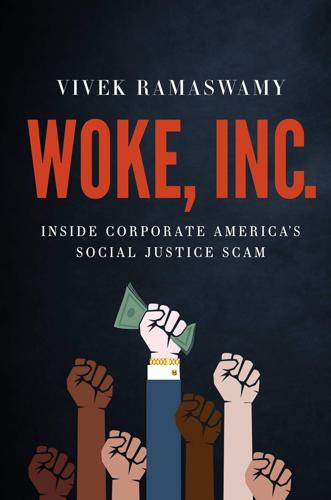
Woke, Inc: Inside Corporate America's Social Justice Scam
by
Vivek Ramaswamy
Published 16 Aug 2021
Today, progressive social values like “going green” and “being diverse” have become, counterintuitively, the modern equivalents of strippers and dwarf-tossing. They are patronized and tipped by the same corporate chieftains who indulge their fancies, all while those corporate chieftains accrete greater wealth and power for themselves along the way. Consider CEO Adam Neumann, the long-haired star CEO of the once-darling “decacorn” WeWork.24 Adam became the Dennis Kozlowski of the 2010s. He built a decent real estate leasing business, yet he described the mission of his company as “elevating global consciousness.” He trumpeted social values like diversity, all the while throwing multimillion-dollar parties featuring pop stars, purchasing a $60 million corporate jet for trips to the Maldives (burning the same carbon-based fuel as every other corporate jet), and appending an ice bath and sauna to his lavish office.
…
There’s Nikola, a supposed Tesla rival whose Executive Chairman Trevor Milton promised to save the planet with its hydrogen-powered vehicles, only to quickly unravel as he was, in a matter of days, accused of fraud and sexual abuse and investigated by the Department of Justice and the Securities and Exchange Commission. There’s WeWork, a trendy, socially conscious, VC-backed hero that imploded under the weight of CEO Adam Neumann’s voluminous self-dealing. The list goes on. I could write an entire chronicle on each of these nefarious episodes, but that’s not the point of this book. Just for fun, though, let’s go through one more example.
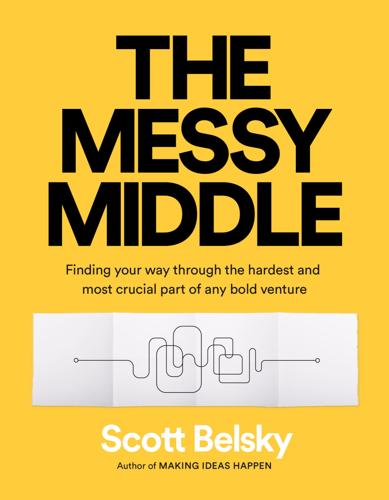
The Messy Middle: Finding Your Way Through the Hardest and Most Crucial Part of Any Bold Venture
by
Scott Belsky
Published 1 Oct 2018
It was organically making Meetup better for ourselves [as customers].” By proactively integrating fresh talent and empowering its newest people to make the company’s mission personal, Meetup escaped incrementalism and made bold changes. In 2018, Meetup was ultimately acquired by the global coworking conglomerate WeWork, in large part due to its renewed growth and relevance in the lives of millions of customers. Old assumptions don’t get questioned enough because we’re used to them, and new ideas get dismissed too quickly because they are foreign and challenge conventions. Engaging and empowering new talent is a reliable way to break old patterns.
…
(Marquet), 167 23andMe, 41–42, 127 Twitter, 28, 36, 64, 66, 70, 83, 210, 233–34, 235, 242–43, 299, 328, 335, 360 Periscope acquired by, 69, 264–65 Uber, 10, 57, 79, 88, 112, 159, 191, 204, 210, 233, 256–57, 259, 267 uncertainty and certainty, 32–34, 69, 224 understood, being, 79 unexpected, 324–25 unicorn companies, 190 Union Square Ventures, 347–48 Universal Exposition, 200–201 unplugging, 327–28 Unsubscribe (Glei), 181 UPS, 210 utility, and novelty, 240–41 validation, 28, 138 value, measuring, 291–92 values, 55, 135, 214–15, 322–23 Van Edwards, Vanessa, 172 Van Horn, Matt, 226–27 vanity, laziness, and selfishness, 235–37 Variety, 84 Vasconcellos, Julio, 298 Vaynerchuk, Gary, 310 velocity, 14, 95 venture capital firms, 275 Victore, James, 57–58 Visa, 303–4 Vishnu, 374 vision, 161–63, 281, 296 volatility, 1, 4, 6, 8, 12, 14–16, 21, 209 von Tobel, Alexa, 65–66 Wadhwani, David, 43–44, 347 Walk, Hunter, 294, 359 Walker, Tristan, 110 Walker & Company Brands, 110 Wall Street Journal, 306 Warby Parker, 10, 204, 310 Washington Post, 336 Washington Post Company, 359 Waymo, 83 weaknesses, 29, 54, 214 wealth, 363 Web Summit, 25 WeChat, 349 Weezer, 333–34 weirdness, 58 Welch, Jack, 125 Wenger, Albert, 347–48 WeWork, 244 WhatsApp, 350 Wikipedia, 138, 261 Wilkinson, Andrew, 294 Wilson, E. O., 38–39 Wilson, Fred, 26 wins, 25, 26, 27, 56 fake, 28–31 Wired, 272 Wix, 312 Wojcicki, Anne, 41–42, 127 Wonder Woman, 84 work: doing regardless of whose work it is, 91–92 DYFJ (do your fucking job), 49–51 work space, 140–41 Yahoo, 189 Y Combinator, 73, 101–2, 193 “Yes!
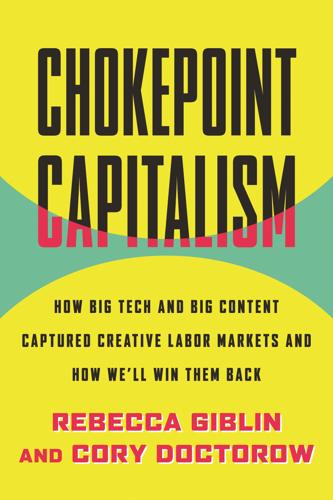
Chokepoint Capitalism
by
Rebecca Giblin
and
Cory Doctorow
Published 26 Sep 2022
No one epitomizes oligarchy like the Saudi royals, the oil trillionaires who openly kidnap and dismember journalists who criticize them. The House of Saud has embarked upon a project to shift its business interests out of oil and has been firehosing money into other sectors in bids to monopolize them. The Saudi royals are the major financiers of Softbank, the investors behind Uber, WeWork, and other notorious money-losing tech companies. Softbank’s strategy—that is, the Saudi strategy—is to lose money for as long as it takes to establish a monopoly, and if no monopoly is forthcoming, to unload those investments through IPOs, which are bought up by naive investors who assume that if, say, Uber was able to keep going for more than a decade, there must be some way it will eventually be profitable.
…
See also interoperability Universal Music Group (UMG), 56, 59–60, 72, 73, 75–76, 77, 188 Unreal Engine, 117 “Unstoppable” (song), 3 use-it-or-lose-it rights, 194–95 Vaheesan, Sandeep, 177–78 Vanacore, David, 215 venture capitalists, 144 Verizon, 133 Vernoff, Krista, 105, 176 vertical integration, 14, 36, 42, 69, 85–87, 88, 96, 97, 148 Vessel, 133 Viacom, 127–28 video, 48 video streaming, 198, 227–28 Vimeo, 134 virtual machines, 198 wages: about, 5–6; collecting and distribution system, 223–28; minimum, 213–14; residual remuneration rights, 214–16; statutory license reform, 217–23 wage theft, 248, 256 Wanamaker, John, 49 Warner Music Group, 56, 59, 72–73, 75 Washington Post, 231, 232 wealth equality, 5 Weaver, Jane, 195 web browsers, 43 Wells Fargo, 251 West, Kanye, 160 Wettlaufer, Brianna, 229 WeWork, 102 William Morris Endeavor, 104, 106–7, 176 Williams, Craig, 53 Williams, Pharrell, 63–64 Winant, Gabriel, 150 Windows, 201–2 WI PO Copyright Treaty, 25 Wojcicki, Susan, 128 works for hire, 185–86 wrestling, professional, 251 Writers Guild of America (WGA), 105–11, 173–77, 214 Wu, Tim, 147, 149 Wylie, Andrew, 27 Xalabarder, Raquel, 214 YouTube: about, 2, 18, 56; acquired by Google, 125–29; Content ID system, 129–35; and the EU GDPR, 136–39, 144; popularity and growth, 124–25 Zuckerberg, Mark, 45, 58, 136 BEACON PRESS Boston, Massachusetts www.beacon.org Beacon Press books are published under the auspices of the Unitarian Universalist Association of Congregations

Everyday Utopia: What 2,000 Years of Wild Experiments Can Teach Us About the Good Life
by
Kristen R. Ghodsee
Published 16 May 2023
The Guardian, September 3, 2019, https://www.theguardian.com/cities/2019/sep/03/co-living-the-end-of-urban-loneliness-or-cynical-corporate-dormitories. 50 “Coliving Spaces: The Ultimate Guide to Coliving,” Outsite, https://www.outsite.co/coliving-spaces. 51 Rob Warnock, “Apartment List’s 2021 Millennial Homeownership Report,” Apartment List, February 9, 2021, https://www.apartmentlist.com/research/millennial-homeownership-2021. 52 Bérénice Magistretti, “Starcity Raises $30 Million in a Post–WeWork, COVID Crisis to Scale Its Affordable Co-Living Spaces,” Forbes, April 27, 2020, https://www.forbes.com/sites/berenicemagistretti/2020/04/27/starcity-raises-30-million-in-a-post-wework-covid-crisis-to-scale-its-affordable-co-living-spaces/?sh=557e14ff48f7. 53 “Habyt Acquires Quarters and Becomes the Leading Co-Living Player in Europe,” Quarters press release, https://www.global.quarters.com/habyt-acquires-quarters/. 54 Kynala Phillips, “Did Shawnee really ban roommates?
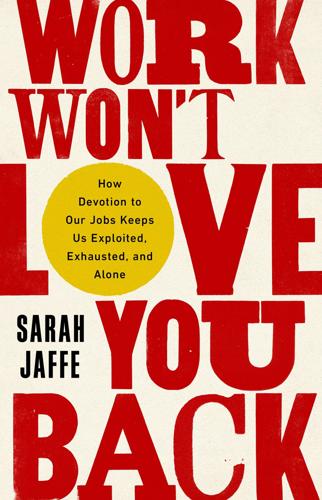
Work Won't Love You Back: How Devotion to Our Jobs Keeps Us Exploited, Exhausted, and Alone
by
Sarah Jaffe
Published 26 Jan 2021
As early as the 1990s, Andrew Ross found that tech companies routinely monitored their workers. It shouldn’t be a surprise that companies like Facebook, who make their profits off extracting data, might want to keep an eye on their employees, or that the fallen WeWork, a real estate company that leased coworking spaces yet sold itself to investors as the techiest of tech companies, harvested a wellspring of data from the people who worked—and might have lived—in its buildings. WeWork pitched itself as “creat[ing] a world where people work to make a life, not just a living,” selling a version of the dream tech-industry workplace to the masses of freelancers on their own in the neoliberal economy.
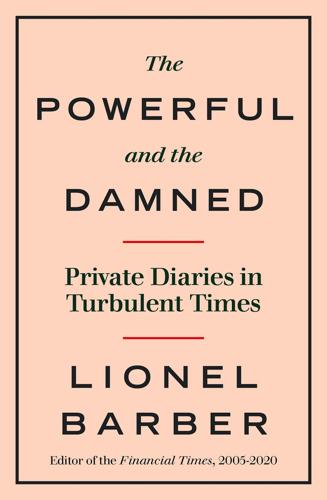
The Powerful and the Damned: Private Diaries in Turbulent Times
by
Lionel Barber
Published 5 Nov 2020
Misra is a former Deutsche Bank trader and top executive who would make P.T. Barnum blush. Among the Vision Fund’s top investments are WeWork, the office-space leasing company; Flipkart, India’s answer to Amazon; and a dog-walking start-up called Wag into which the Vision Fund has pumped an agreed $300m. SoftBank’s Vision Fund reportedly raised $100bn, thanks in part to Saudi money and the personal backing of MBS. They were the new power in the world’s venture capital market, able to amass and deploy funds so colossal that they ended up distorting the whole VC market. But investments like WeWork gradually turned sour and SoftBank itself was forced to dispose of assets – a trend exacerbated by the coronavirus pandemic.
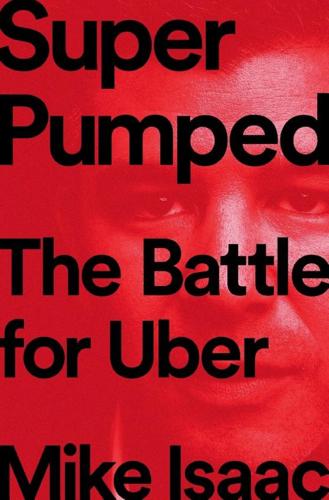
Super Pumped: The Battle for Uber
by
Mike Isaac
Published 2 Sep 2019
By the fall of 2015, Uber employed nearly five thousand people globally, the result of an endless talent poaching campaign across Silicon Valley. Engineers from Amazon, Facebook, Apple, Tesla, and especially Google, came flooding into the company as quickly as recruiters could pluck them from places like the Creamery, the Battery, WeWork—VC-funded startups themselves—that had become the usual haunts of coders in San Francisco. Engineers had seen the adjectives the press used to describe the company. Uber was “fast-growing,” “pugnacious,” a “juggernaut.” They heard the whispers of staggering revenue growth, and saw the company’s surging valuation, which was already well into the billions.
…
See also Uber becomes Uber, 63 rollout of, 59–63 Uber Cap Bill, 116, 116n Uber Eats, 338 Uberettos, 3, 3n, 7, 10 UberPeople.net, 248 “Uberpool,” 120 “Uber Super Duper,” 184 UberX, xv, 82–83, 87, 112, 114, 227, 244, 245, 250–51 UCLA, 20–22 University of California, Berkeley, 107 University of Florida at Gainesville, 66–67 University of Pennsylvania, 214–15 University of Texas at Austin, 67 Urmson, Chris, 110 US Department of Justice, 247 US Postal Service, 231n Utah, 246 VanderZanden, Travis, 188 Vanity Fair, 126, 163n, 230 VentureBeat, 55 Violation of Terms of Service (VTOS) playbook, 246 Virgin America, 93 Vishria, Eric, 283, 294 “Vision Fund,” 317–18 Von Furstenberg, Diane, 307–8 Voytek, Bradley, 136 Wahlberg, Mark, 286n Wall Street Journal, 55, 131, 199, 332 Walmart, 115 The Walt Disney Company, 23 Washington, DC, 84, 144 Waverly Inn, 126–28 Waymo, 233–35, 236, 255–56, 338–39 Webvan, 26 WeChat, 147–48 Weiner, Mark, 115 Weinstein, Harvey, 241 Wellington Capital Group, 300 Wells Fargo, 33 West, Tony, 332, 335–36 Westchester, New York, 93, 94 WeWork, 4 WhatsApp, 257, 295, 303 Whetstone, Rachel, 6, 224–25, 237, 239, 240, 252, 260, 262, 337 Whitman, Meg, 311–13, 311n, 314, 319, 320, 321, 322–25 W Hotel, 79 Wickr, 258 Wilson Sonsini Goodrich & Rosati, 100 Windows, 37 Winfrey, Oprah, 193–94, 227 WIRED, 9, 26, 333 Wolf, Charlie, 67 Wolff, Michael, 128, 129, 129n Woodside, California, 64 “Workation,” 187–88 World Economic Forum, 31 Wozniak, Steve “Woz,” 39 Wuhan, China, 142 Xchange leasing program, 218–19 Xi Jinping, 141 Xooglers, 182 XS, 7 “X to the x” celebration, 1–8, 242 Yadav, Shiv Kumar, 149–50 Yarnell, Arizona, 213 Yoo, Salle, 124, 244–45, 310 You, Angie, 32, 264 YouTube, 96, 199 Yucaipa Companies, 23 Zalanick, Travis, 129n Zappos, 92n Zillow, 65 Zimmer, John, 85, 86, 88–89, 120, 132, 186, 187, 188, 189, 211 Zimride, 85–86 Zuckerberg, Mark, 9, 21–22, 34, 45, 74, 121, 165, 171, 199 China and, 140, 202 influence of, 77, 77n purchases Instagram, 96–97 Sandberg and, 239n warns Kalanick to keep an eye on Sidecar, 86 Zynga, 77
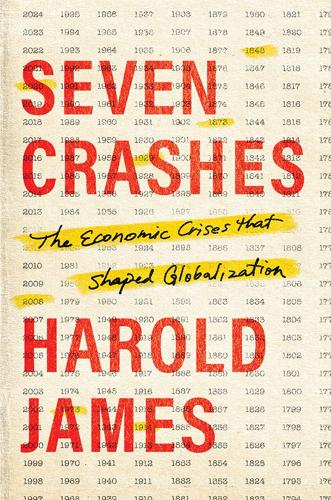
Seven Crashes: The Economic Crises That Shaped Globalization
by
Harold James
Published 15 Jan 2023
From 1996, SoftBank worked in a partnership with one of the earliest internet search engines, Yahoo, which survived the rapid eclipse of Yahoo in the 2000s. Some ventures were even less successful: in 2017, SoftBank invested over $1 billion in shared-office-space company WeWork; and its shares fell sharply after the IPO of WeWork failed in 2019. Son’s stated goal was to lay between ten and twenty “golden eggs” a year.64 The smallest deals were around $100 million, and the biggest in the billions, to be placed in the most successful tech startups in a given category. The vision is grand. SoftBank’s website predicts that humans will live to 200 and may coexist with “kind and intelligent robots” that would allow “more affluent lifestyles for all,” recognizing and analyzing nonstandard data.65 It is inevitable that many of the bold transformational projects failed: but those eclipses did not matter if there were spectacular cases of success.
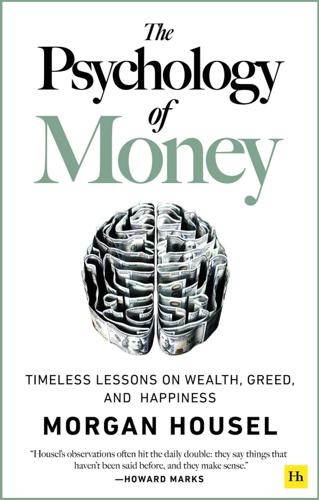
The Psychology of Money: Timeless Lessons on Wealth, Greed, and Happiness
by
Morgan Housel
Published 7 Sep 2020
Derek Thompson of The Atlantic once described it like this: If the operating equipment of the 21st century is a portable device, this means the modern factory is not a place at all. It is the day itself. The computer age has liberated the tools of productivity from the office. Most knowledge workers, whose laptops and smartphones are portable all-purpose media-making machines, can theoretically be as productive at 2 p.m. in the main office as at 2 a.m. in a Tokyo WeWork or at midnight on the couch.²⁹ Compared to generations prior, control over your time has diminished. And since controlling your time is such a key happiness influencer, we shouldn’t be surprised that people don’t feel much happier even though we are, on average, richer than ever. What do we do about that?
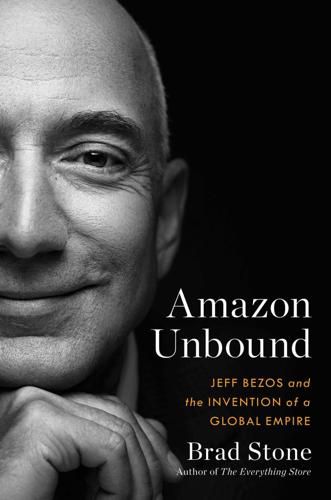
Amazon Unbound: Jeff Bezos and the Invention of a Global Empire
by
Brad Stone
Published 10 May 2021
Sebastian Gunningham, who had reported directly to Bezos for years, was moved underneath Jeff Wilke, a former peer, after Wilke and Andy Jassy were promoted to CEOs of the retail and AWS divisions in a 2016 company-wide reorganization. In 2018, Gunningham left Amazon and, ruining his streak of working for visionary tech leaders, headed to the ill-fated office-sharing startup WeWork. With the champion of third-party sellers gone, along with Gunningham’s direct access to Bezos and Wilke, Peter Faricy and his team were moved under Doug Herrington and the retail group—their intellectual foils in the perennial debate between the first- and third-party businesses, and between quality and quantity.
…
Postal Service (USPS), 227, 228, 235, 241, 242, 335, 351, 357–58 US Weekly, 335 US West, 26 Utzschneider, Lisa, 253 Valdez, Arthur, 215–18, 225, 230–32 Valentine, Brian, 55 Van Bramer, Jimmy, 308–9 Vedder, Eddie, 290 Vedmed, Erica, 162 Vedmed, Victor, 161–63 Verizon, 381 Vestager, Margrethe, 366, 380 Vice News, 395 Virgin, 6 Virginia, 16, 301, 302, 305, 307, 308, 313 virtual assistants, 26, 42 Alexa, see Amazon Alexa Siri, 26, 27, 30, 32, 34 vision, computer, 13, 54–55, 57–58, 62–64, 68 Vogue, 136, 323 voice recognition, 28, 36, 55 in Alexa, 28, 33, 36, 37 von Furstenberg, Diane, 346 Vonn, Lindsey, 136 Vons, 186 Vulcan Inc., 288, 289, 305 Wall Street Journal, 66, 68, 130, 154, 172, 177, 203, 242, 258, 294, 295, 345, 368 Walmart, 6, 8, 9, 13, 69, 92, 109, 158, 185, 190, 209, 215, 242, 263, 354, 363, 373, 378, 384 Flipkart and, 88–91, 287, 384 in Mexico, 80–82, 85 Walton, Sam, 263 Wandell, Morgan, 144 warehouses, see Amazon fulfillment centers Warren, Elizabeth, 14–15, 353–54, 365 Washington, D.C., Amazon offices in, 296–97 Washington Post, 17, 117–34, 135, 154, 206, 244, 264, 279, 288, 313, 323, 327, 343, 344, 358, 382, 387, 406 advertising and, 130 Amazon and, 117–21, 126, 130, 134, 357, 363 Apple and, 129–30 Arc Publishing and, 129 Bezos’s acquisition of, 16, 118, 121–25, 127, 129, 134, 363 Bezos-Sanchez scandal and, 337–38 Bezos’s management of, 121, 125–33, 150 financial difficulties of, 121–22 financial turnaround of, 130, 132 headquarters of, 132 India and, 384 Pancake Group at, 124, 125, 127, 129, 130, 133 partnership program of, 125–26 pension plans of, 127–28 Rainbow app of, 124, 129 Rezaian and, 131–32 Saudi Arabia and, 321, 340, 347 Trump and, 16, 117–21, 128, 133–34, 335, 336, 351, 357–58, 363 Zuckerberg and, 121–22 Washington Post Guild, 128 Wayfair, 373 Wazir, Maria Toorpakai, 324 Webvan, 187–88, 190, 192, 222 Weekend conference, 88 Weiner, Matthew, 152 Weinstein, Harvey, 152, 155–57, 328 Weinstein, Joshua, 124, 161, 263 Weinstein Company, 152, 153, 155 Welch, Jack, 111, 220 Weprin, Mark, 311 West Nile Virus, 385 Westheimer, Ruth, 323 WeWork, 182 Weymouth, Katharine, 123 whistleblowers, 397–99 Whitesell, Patrick, 136, 325–27 Who, 145 Whole Foods Market, 184–86, 208–10, 214, 242–43, 312, 320, 396 absence of rewards program at, 185 Albertsons Companies and, 186 Amazon Prime Now and, 197 Amazon’s acquisition of, 14, 15, 69, 186–87, 209–12, 213, 287, 353, 367 Covid-19 and, 390, 391, 397 Instacart and, 192, 197 Jana Partners and, 186 Neuberger Berman and, 185–86, 210 operating structure of, 185 regional chains acquired by, 185 365 Everyday Value brand of, 204, 211 Wilke, Jeff, 8, 48, 81–84, 106–7, 139, 180–83, 193–94, 196, 202, 208, 210, 211, 216, 218, 223, 231, 237–38, 244, 246–48, 251, 255, 260, 387, 390, 401–2 Wilkie, Jason, 164 Williams, Cynthia, 166–67 Williams, Michelle, 135 Wimbledon, 345 Winfrey, Oprah, 154 Wintour, Anna, 1, 2 Wired, 34, 50, 267 Wish.com, 171–72 Wooden, John, 24 Woodward, Bob, 133 World Health Organization, 387 World Resources Institute, 403 World Wide Web, 5, 405 Wright, Jimmy, 215 WS Retail, 77, 88 Wulff, Meghan, 105–9, 112 Wurman, Peter, 224 Xfinity, 139 Yahoo, 193, 250, 253 Yale Law Journal, 307, 351, 364–66 Yale, Matt, 208 Yang, Stephen, 176–77, 375 Yap, 27–28 Yegge, Steve, 261 YogaRat, 373–74 YouTube, 41 Zapolsky, David, 351, 363–66, 372, 395 Zappos, 9, 15, 193, 211, 220, 222, 353 Zara, 179 Zhang, Danny, 172 Zillow, 109 Zoox, 283 Zuckerberg, Mark, 121–22, 345, 368, 369 Zumwalt, Kurt, 379–80 Simon & Schuster 1230 Avenue of the Americas New York, NY 10020 www.SimonandSchuster.com Copyright © 2021 by Brad Stone All rights reserved, including the right to reproduce this book or portions thereof in any form whatsoever.
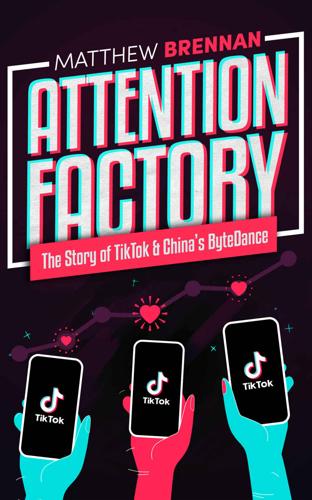
Attention Factory: The Story of TikTok and China's ByteDance
by
Matthew Brennan
Published 9 Oct 2020
After the breakthrough, they immediately worked on putting together a new round at a much larger valuation that injected 16.6 million dollars into the company. Expanding rapidly, a new office was set up in the U.S. hosting a handful of marketing, business development, and content licensing specialists. Working out of a San Francisco WeWork office, they raided Alex’s old company, SAP, for talent to form a small new team led by Alex Hofmann, under the title of president of north American operations. In addition to the founders, Hofmann would become the new face of Musical.ly at many media events and interviews. With funding secured, an expanded team, and a user base now measured in tens of millions, Musical.ly entered a new development stage.

Blockchain Chicken Farm: And Other Stories of Tech in China's Countryside
by
Xiaowei Wang
Published 12 Oct 2020
Other well-known surveillance companies such as Hikvision and SenseTime have a slew of foreign investment. SenseTime’s investors include Qualcomm, Fidelity International, Silver Lake Partners (based in Menlo Park, California), and Japan’s SoftBank Vision Fund. SoftBank’s Vision Fund has ties to Saudi wealth, and spans the globe in its international influence—investing in companies from Alibaba to WeWork and Slack. In one corner of the Megvii showroom is a display about Meitu, the beauty and cosmetics app with which you can quickly edit your selfies. The commercial is cheerful: a woman gives herself bunny ears, some blush, and lipstick. She makes herself a little paler, her eyes a little bigger, as is the fashion in East Asia—“Caucasian” features are seen as beautiful.

Survival of the Richest: Escape Fantasies of the Tech Billionaires
by
Douglas Rushkoff
Published 7 Sep 2022
“If they’re so good,” someone asked, “why haven’t I heard of them?” There’s The Mindset, again. Why support an initiative already in progress when you can cut the ribbon on a new enterprise? As any platform enthusiast following the Web 2.0 philosophy might ask, why just work on the world’s problems when you can build the WeWork for others to do it? One multimillionaire psychedelic convert did just that. I was summoned to meet Colombian real estate mogul Rodrigo Niño shortly after he opened the Assemblage, a novel co-working space in Manhattan for spiritually inclined, psychedelic entrepreneurs. As I arrived at the converted office building, I was almost invol untarily drawn in by the inviting scents of sandalwood, patchouli, and a home-made Ayurvedic buffet just being set out by a crew of attractive young culinary artists.
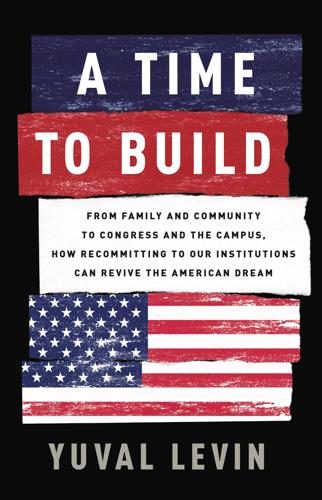
A Time to Build: From Family and Community to Congress and the Campus, How Recommitting to Our Institutions Can Revive the American Dream
by
Yuval Levin
Published 21 Jan 2020
E-commerce tends to offer us convenience and efficiency by eliminating the need for various kinds of human interaction and connection. It enables us to shop without seeing or speaking to anyone, and so to be left alone while getting what we want or need. Some of the most distinct innovators in the tech sector (like Uber, Airbnb, WeWork, and others) create opportunities for temporary, on-demand choices that enable us to avoid enduring commitments to standing institutions. We just use what we need when we need it and move on, and our interactions with service providers are very limited. Snapchat offers the epitome of this approach in the realm of social media—allowing users to send messages that quickly disappear once they are viewed.
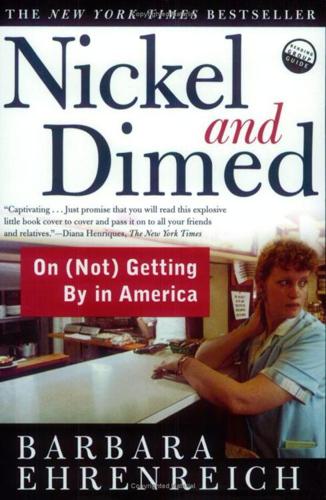
Nickel and Dimed: On (Not) Getting by in America
by
Barbara Ehrenreich
Published 2 Jan 2003
I like to read the labels to find out where the clothing we sell is made—Indonesia, Mexico, Turkey, the Philippines, South Korea, Sri Lanka, Brazil—but the labels serve only to remind me that none of these places is “exotic” anymore, that they've all been eaten by the great blind profit-making global machine. The only thing to do is ask: Why do you—why do we—work here? Why do you stay? So when Isabelle praises my work a second time (!), I take the opportunity to say I really appreciate her encouragement, but I can't afford to live on $7 an hour, and how does she do it? The answer is that she lives with her grown daughter, who also works, plus the fact that she's worked here two years, during which her pay has shot up to $7.75 an hour.
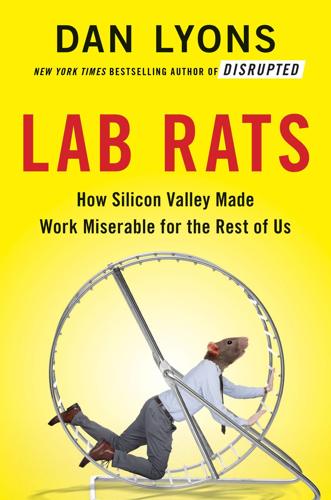
Lab Rats: How Silicon Valley Made Work Miserable for the Rest of Us
by
Dan Lyons
Published 22 Oct 2018
Tesla, Spotify, Dropbox, Box, Snap, Square, Workday, Cloudera, Okta, Blue Apron, Roku, MongoDB, Redfin, Yext, Forescout, Docusign, Smartsheet—they’re all publicly traded, and they all lose money, and in some cases a lot of it, sometimes for years and years, long after they go public. Other unicorns like Uber, Lyft, Airbnb, Slack, Pinterest, WeWork, Vice Media, Magic Leap, Bloom Energy, and Postmates remain privately held, but reportedly don’t turn a profit. As I write this, a tech start-up called Domo is attempting to offer shares to the public even though the company lost $360 million over the past two years, on sales of just $183 million, meaning Domo loses two dollars for every dollar it took in.
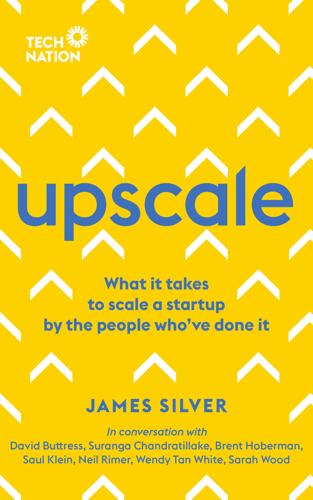
Upscale: What It Takes to Scale a Startup. By the People Who've Done It.
by
James Silver
Published 15 Nov 2018
Most people think they need a local office as soon as they decide to launch in a new market - they don’t Do not underestimate - as soon as you open an international office-how much more complex your life is going to be. ‘It’s back to the “standardisation versus localisation/adaptation” question - do you really need an office or can you hold back for just a little bit?’ When Graze first launched in the US and was carrying out its groundwork, the team used a WeWork office in Manhattan, although it had already leased its own fulfilment centre in New Jersey, says Fletcher. ‘It kept coming back to how much complexity do you want? Do you get an office that’s this big or this big?’ he asks, demonstrating office size much like a fisherman would a prize catch. ‘We hadn’t quite worked out how big the team was going to be.
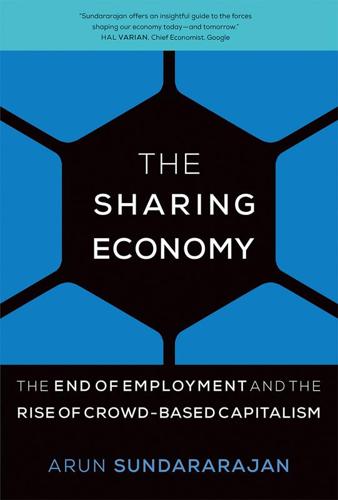
The Sharing Economy: The End of Employment and the Rise of Crowd-Based Capitalism
by
Arun Sundararajan
Published 12 May 2016
UrbanFetch, 52 Value creation and capture in decentralized exchange, 95–99 Value of spare capacity, 80–81 Van Alstyne, Marshall W., 119 Varian, Hal, 118 Vayable, 77 Venture capital, 25–26, 42–43 Visible Hand, The (Chandler), 4, 69, 71 VizEat, 3, 45, 77, 149 Von Hippel, Eric, 76 Wag, 12 Walk, Hunter, 187 Walmart, 98–99 Warner, Mark, 161, 187, 190 Warner, Sam Bass, 4 Washio, 12 Waskow, Debbie, 3 Way, Niobe, 44 WeChat, 54 Weingast, Barry, 144–145 Wenger, Albert, 90, 189, 190 Werbacah, Adam, 198–199 Westly Group, 199 West Seattle Tool Library, 15 WeWork, 6 Whang, Seungjin, 74–75 What’s Mine Is Yours: The Rise of Collaborative Consumption (Botsman and Rogers), 28 Whole Foods, 71, 213n3 Wikipedia, 199 Wilson, Fred, 17, 85 With Liberty and Dividends for All (Barnes), 189 Wong, Jamie, 77 Woolard, Caroline, 43 World Bank, 111 World Economic Forum, 162, 205 Woskow, Debbie, 121 Yahoo, 96 Yates, Joanne, 69, 72–74 YCombinator, 23 Yelp, 147, 200–201 Yerdle, 44 Yourdrive, 3 YouTube, 55, 57 Zagat, 147 Zervas, Georgios, 121 Zimmer, John, 10, 11, 12, 187 Zimride, 12 Zipcar, 30, 107 Zluf, Shay, 94 Table of Contents Title page Copyright page Dedication Author’s Note and Acknowledgments Introduction I Cause 1 The Sharing Economy, Market Economies, and Gift Economies 2 Laying the Tracks: Digital and Socioeconomic Foundations 3 Platforms: Under the Hood 4 Blockchain Economies: The Crowd as the Market Maker II Effect 5 The Economic Impacts of Crowd-Based Capitalism 6 The Shifting Landscape of Regulation and Consumer Protection 7 The Future of Work: Challenges and Controversies 8 The Future of Work: What Needs to Be Done 9 Concluding Thoughts Index Table 3.1 Platforms: hierarchies, markets, or hybrids?
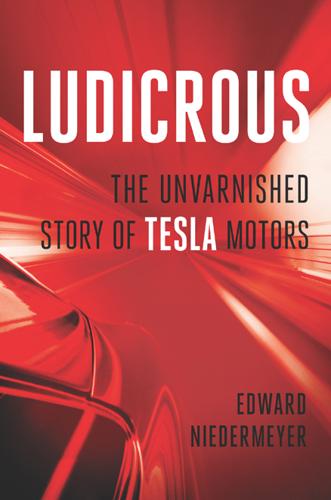
Ludicrous: The Unvarnished Story of Tesla Motors
by
Edward Niedermeyer
Published 14 Sep 2019
“The fact that Musk has been able to access billions and billions of dollars to finance his vision is as much the market environment as it is him. If you look at some of the unicorns with business models that I just cannot make work, investors are throwing money at these companies,” he said, naming the commercial real estate company WeWork as another example. Because of this environment, in which it’s easy to raise money without a lot of scrutiny of the fundamentals of your business, “there’s this general sense that if you believe you’re changing the world, you can lie to investors,” he argued. “That’s a bull market phenomenon . . .
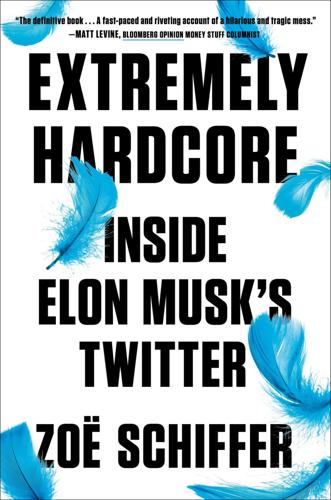
Extremely Hardcore: Inside Elon Musk's Twitter
by
Zoë Schiffer
Published 13 Feb 2024
“But I think the real question everyone’s thinking is: Are you going to fire 75 percent of us?” Musk looked up at the ceiling, puzzled. “You know, I’m not actually sure where that number came from, because . . . no,” he said finally. “It didn’t come from me.” * * * — Emmanuel Cornet, known to friends as Manu, was working at a WeWork in downtown San Francisco when he saw Musk’s tweet about the sink. I should be there, he thought. He liked being around people, but found he could focus better when those people weren’t his colleagues. Musk’s arrival was a worthy exception. The French engineer had worked at Google for fourteen years before taking a job at Twitter in 2021.
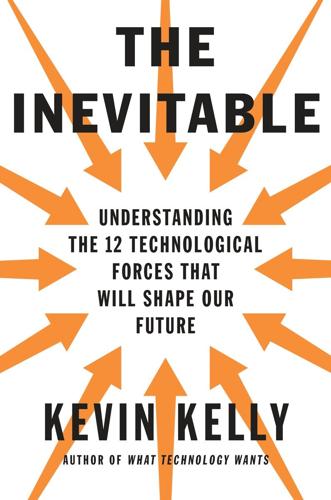
The Inevitable: Understanding the 12 Technological Forces That Will Shape Our Future
by
Kevin Kelly
Published 6 Jun 2016
Delivery: Let a network of freelancers deliver packages to homes (Uber for FedEx). Design: Let a crowd of designers submit designs, just pay the winner (CrowdSpring). Health care: Coordinate sharing insulin pumps. Real estate: Rent your garage as storage space, or an unused cubicle as office space for a startup (WeWork). Most of these companies won’t make it, even though the idea will thrive. Decentralized businesses are very easy to start, with low cost of entry. If these innovative business models are proven to work, established companies are ready to adapt. There is no reason a rental car company like Hertz can’t rent freelancers cars, and no reason why taxi companies can’t implement aspects of Uber.
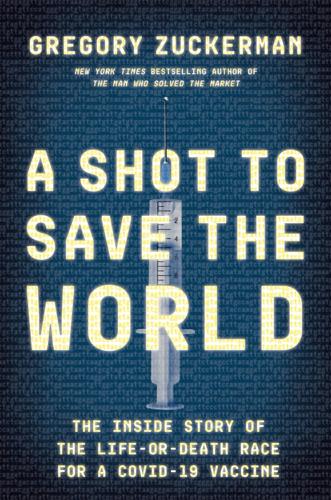
A Shot to Save the World: The Inside Story of the Life-Or-Death Race for a COVID-19 Vaccine
by
Gregory Zuckerman
Published 25 Oct 2021
BioNTech was working on more than twenty-five different vaccines and drugs in total and it was using three different approaches in addition to mRNA molecules, including so-called CAR-T treatments, which are ways to enable the body’s immune system to attack cancer. It was all too much for some investors. “There was skepticism about our vision,” Şahin says. As the date of their early October share sale approached, Şahin and his colleagues experienced bad luck. Office-rental company WeWork was collapsing, a trade dispute between the United States and China was heating up, and other biotech shares were falling, including those of Moderna. On October 2, days before BioNTech’s market debut, ADC Therapeutics, a Switzerland-based cancer drug start-up, decided to postpone its own IPO, startling Şahin and his team.

Drunk: How We Sipped, Danced, and Stumbled Our Way to Civilization
by
Edward Slingerland
Published 31 May 2021
“Modernity, Tradition, and Intoxication: Comparative Lessons from South Africa and West Africa.” In Phil Withington and Angela McShane (Eds.), Cultures of Intoxication, Past and Present (Vol. 222, pp. 126–145). Oxford: Oxford University Press. O’Brien, Sara Ashley. (2016, February 26). “Zenefits Lays Off 250 Employees.” CNN. O’Brien, Sara Ashley. (2018, October 31). “WeWork to Limit Free Beer All-Day Perk to Four Glasses.” CNN. O’Connor, Anahad. (2020, July 10). “Should We Be Drinking Less? Scientists Helping to Update the Latest Edition of the Dietary Guidelines for Americans Are Taking a Harder Stance on Alcohol.” New York Times. Olive, M. Foster, Heather N. Koenig, Michelle A.

Quit Like a Woman: The Radical Choice to Not Drink in a Culture Obsessed With Alcohol
by
Holly Glenn Whitaker
Published 9 Jan 2020
I wanted the fat-jean-skinny-person scenario. We all want this scenario, with everything. We love a good “before” story, we love a good “after” story. Don’t show us incremental or barely visible change. Don’t show us the part where we can’t really tell the difference between who you were then and where you are now. Not long ago, at a WeWork in Brooklyn, I walked up to the counter to meet the community team. A woman behind the front desk asked me what I did, and I explained that I ran a company that helps people stop drinking. I was waiting for the typical response, which is usually something like Oh, I thought something like that already existed and it was free, or a really intense conversation about the inquiring party’s Uncle Fred and his liver, but hers was different.
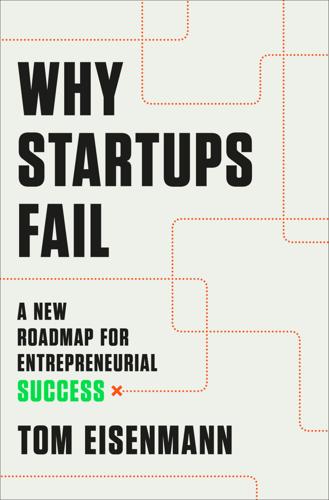
Why Startups Fail: A New Roadmap for Entrepreneurial Success
by
Tom Eisenmann
Published 29 Mar 2021
For nearly three-quarters of those CEOs, the venture’s board initiated the change; the rest realized on their own that they needed a replacement. Among those who were replaced as CEO (voluntarily or not), about a third left; otherwise, the founder moved into a different executive role. As we’ve seen in the highly publicized cases of Uber and WeWork, the board-initiated replacement of a founder/CEO can be a contentious and divisive affair, with battle lines drawn and invective hurled. The ensuing drama distracts senior management and can paralyze decision-making, putting the venture at risk of losing ground to rivals. However, when assessing the performance of startups that have replaced a founder/CEO, drawing conclusions about cause and effect is tricky.
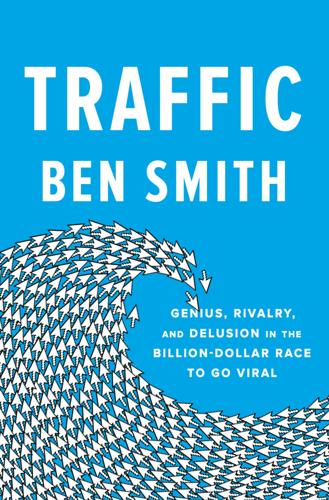
Traffic: Genius, Rivalry, and Delusion in the Billion-Dollar Race to Go Viral
by
Ben Smith
Published 2 May 2023
But when Jonah left The Huffington Post, Google was still BuzzFeed’s main source of traffic, and Jon Steinberg was still struggling to see how he’d build BuzzFeed into a business. In Steinberg’s first full year, 2011, the company was on track for just $4 million in revenue—nice to have, but not something that would get attention amid a new generation of hot startups like the eyeglasses company Warby Parker or the office-space company WeWork. The BuzzFeed office was quiet; nobody was working late. And the board meetings were pretty weird too. Kenny, Will Porteous, and Hearst Ventures executive Scott English would sit around the table on Spring Street and Jonah would talk for a while, and then Kenny would say, “I have no idea what you’re doing,” and they’d all leave cheerfully.

Filterworld: How Algorithms Flattened Culture
by
Kyle Chayka
Published 15 Jan 2024
The association with Brooklyn gradually faded out (after the 2020 pandemic, Brooklyn itself was seen as less desirable than downtown Manhattan), and the generic style became less associated with a place than with digital platforms, like Instagram and the insurgent TikTok. In a 2020 essay, the writer Molly Fischer labeled it “the millennial aesthetic”; it was also embraced by start-up companies like the mattress seller Casper and the coworking space chains WeWork and The Wing. Fischer asked, “Will the millennial aesthetic ever end?” The elements of style—Edison bulbs versus neon signs—turned out to be less important than the fundamental homogeneity, which became more and more entrenched. The signs changed, evolving one step at a time over the years, but the sameness stayed the same.
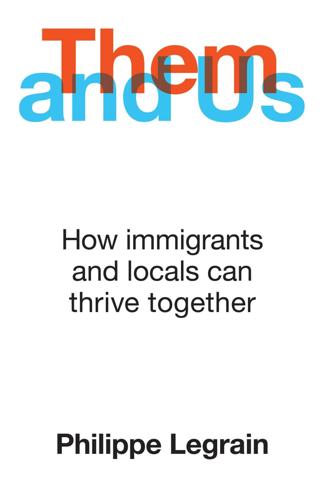
Them and Us: How Immigrants and Locals Can Thrive Together
by
Philippe Legrain
Published 14 Oct 2020
International Airlines Group, British Airways’ parent company, is piloted by an Irish executive; easyJet by a Swedish one. Dara Khosrowshahi, who leads Uber, arrived in the US as a refugee from Iran. French carmaker Peugeot has a Portuguese chief executive. German sportswear firm Adidas is run by a Danish boss. Migrants from India are particularly successful: they lead Google, Microsoft, Adobe, IBM, WeWork and many other US technology companies, as well as Mastercard, a card payments firm.9 Prominent politicians Migrants are succeeding even in that most parochial of professions: politics. With their different backgrounds and perspectives, they bring something extra to the mix. Austrian-born Arnold Schwarzenegger muscled his way to being governor of California.
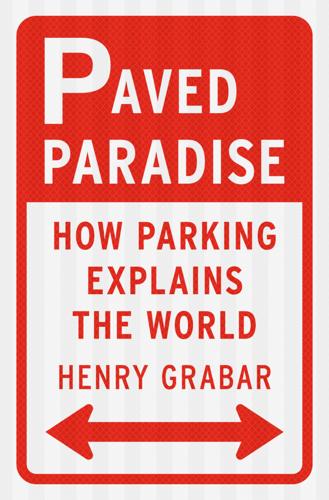
Paved Paradise: How Parking Explains the World
by
Henry Grabar
Published 8 May 2023
“We’d never admit this,” admitted Jim Huger, the impresario of Premium Parking who claimed to run about half the commercial parking supply in New Orleans, “but we like monopolies.”[*] Huger’s strategy is clever: premium rents and management of the lots . . . by a separate LLC run by Huger himself. “Doesn’t that create a conflict of interest?” I asked. “It’s good to play both sides,” he responded. “Like Adam Neumann,” I said, referring to the self-dealing WeWork founder. “Yeah, but I don’t have a board of directors.” * * * — To some extent, a guy like Jim Huger has it easy compared with Duke’s Carl DePinto. When you manage parking for a hospital or a university, your obligations are not only to the almighty dollar but also to institutional demands and social hierarchies.
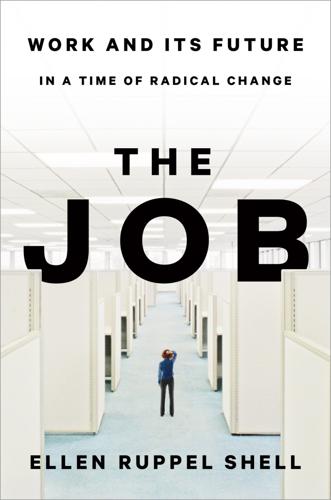
The Job: The Future of Work in the Modern Era
by
Ellen Ruppel Shell
Published 22 Oct 2018
he’s not technically a free agent Bigelow is a member of the National Association of Realtors (NAR)—with more than 1.2 million members, America’s largest trade organization and an extraordinarily powerful lobbying group. formal coworking establishments have since caught on At this writing, a single coworking franchise, WeWork, has 212 locations and 200,000 members. very large institutions See Justin Fox, “Big Companies Still Employ Lots of People,” Bloomberg.com, April 20, 2016, https://www.bloomberg.com/view/articles/2016-04-20/big-companies-still-employ-lots-of-people. derelict in their duty to provide investors with income See Milton Friedman, “The Social Responsibility of Business Is to Increase Profits,” New York Times Magazine, September 13, 1970.
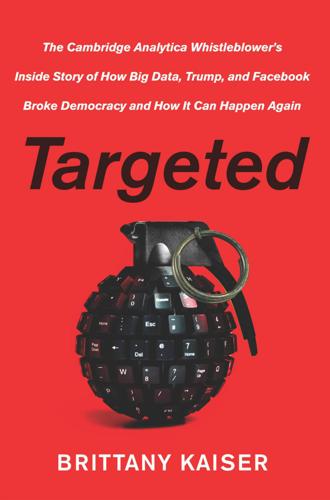
Targeted: The Cambridge Analytica Whistleblower's Inside Story of How Big Data, Trump, and Facebook Broke Democracy and How It Can Happen Again
by
Brittany Kaiser
Published 21 Oct 2019
It was a place packed with small companies and independent tech consultancies, somewhere we could be anonymous and go about our business undisturbed for as long as we wanted. Eerily enough, I had recently been invited to Facebook HQ by Morgan Beller, the woman who was building Facebook’s blockchain now known as Libra. That I ended up in a WeWork nearby instead, about to change their narrative forever, is an irony in itself. Once we got into a room of our own and shut the door, we both took a seat at a table. The room resembled the old Sweat Box at SCL in Mayfair. Lewis took out his laptop; I did the same. For more than a year, Alexander had forbidden me from speaking with reporters, and now there was more to say than ever.
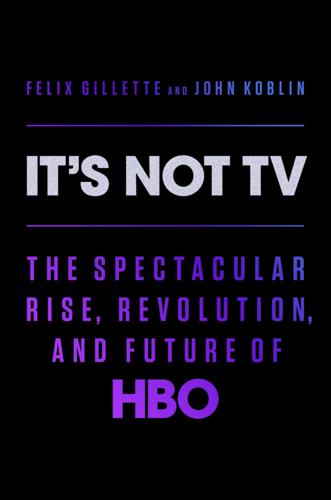
It's Not TV: The Spectacular Rise, Revolution, and Future of HBO
by
Felix Gillette
and
John Koblin
Published 1 Nov 2022
Watching Amazon and Facebook put up huge returns, investors had grown deliriously hungry for superfast-growing tech companies. In search of the next big thing, both public and private investors were more than happy to pump money into unprofitable tech ventures like the ride-hailing service Uber, or the office subleasing company WeWork, or the home-sharing app Airbnb, so long as they were expanding wildly and gobbling up market share. The most important thing, according to the new paradigm of tech investing, was to crush the incumbents. Wooing new customers with ludicrous prices that made no long-term economic sense beyond undermining competitors was not only tolerated, it was expected and rewarded.
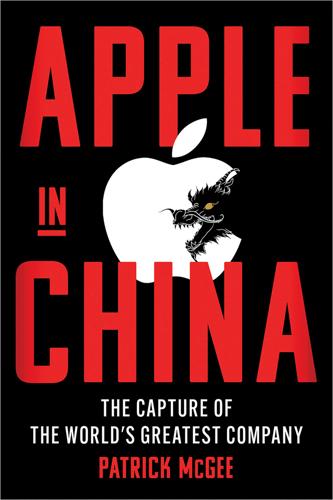
Apple in China: The Capture of the World's Greatest Company
by
Patrick McGee
Published 13 May 2025
Thank you both for raising us in a household of questions, ideas, books, and—through my dad—gadgets. To my wife: you’re marvelous. Your edits were over-the-top helpful, but were nothing next to your strengths as a spouse, best friend, and mom. Here’s to a lifetime of making up for missed dates and too many late nights when I lived a nocturnal existence at WeWork. Finally, to my daughters, who write several “books” per week and can’t understand what took me so long—watching you grow up is the best thing in my life. Patrick McGee January 2025, San Francisco ABOUT THE AUTHOR © CAYCE CLIFFORD PATRICK McGEE was the Financial Times’ principal Apple reporter from 2019 to 2023.
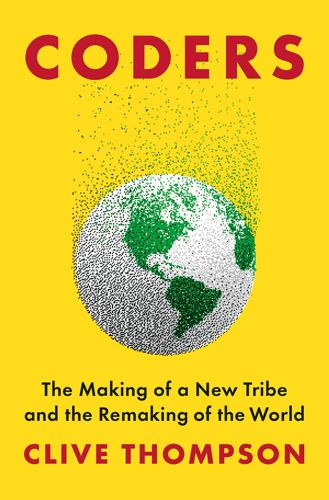
Coders: The Making of a New Tribe and the Remaking of the World
by
Clive Thompson
Published 26 Mar 2019
On the far wall is a mural of nerdly dimensions: a huge looming head of Grace Hopper, an ’80s-era PC, the phrase “LEARN LOVE CODE” in a spray of curved graffiti. Flombaum is a 34-year-old who wears his hair swept in a thick mop back across his head; on his right shoulder is a tattoo of the logo of the Flatiron School, and on his chest is one for WeWork, the firm that bought his company. “I’m like a race car,” he jokes. Flombaum is a self-taught coder who, after working for a hedge fund and running his own start-up for four years, started teaching five-week programming classes “for fun.” He wound up getting a bunch of his students jobs, and thought, hmm, maybe he could scale this up.
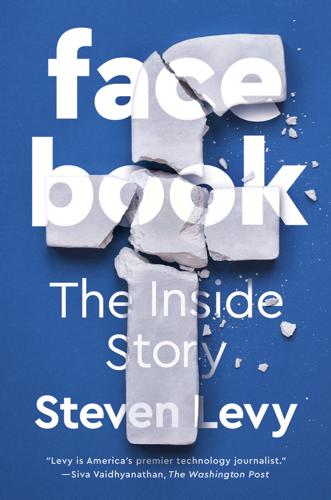
Facebook: The Inside Story
by
Steven Levy
Published 25 Feb 2020
I wonder what it would have been like if Weinreich, and not Zuckerberg, had fulfilled that vision. Certainly my talk with the founder of the defunct sixdegrees would have been conducted in a vast headquarters building. As it was, I’d met with Weinreich in a small conference room he’d reserved in a noisy WeWork office. As he described how sixdegrees was ahead of its time, through glass walls we could see a bustling pageant of Millennials and Gen Zs striving to be the next Mark Zuckerberg. Weinreich, fit at fifty, had a quick answer for my question as to whether he’s haunted by what someone else accomplished with his idea: No.
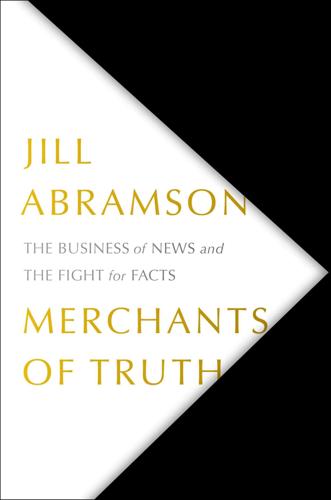
Merchants of Truth: The Business of News and the Fight for Facts
by
Jill Abramson
Published 5 Feb 2019
He then became a star at Politico, where he landed with another blog of his own. Politico’s posture as “a running conversation about politics” was reminiscent of the one he’d left behind, but national instead of local. He worked remotely, at a desk he rented for $350 a month in a Victorian mansion that had been converted into a communal office for freelancers, a precursor to WeWork. Operating as a one-man news bureau, Smith broke stories that got people talking, such as the $400 haircuts John Edwards’s campaign footed, and the fact that Mayor Rudy Giuliani had tapped taxpayer funds to cover visits to his mistress. He thrived on the speedy, digital-first pace at Politico and he took pride in winning the daily sprint races.